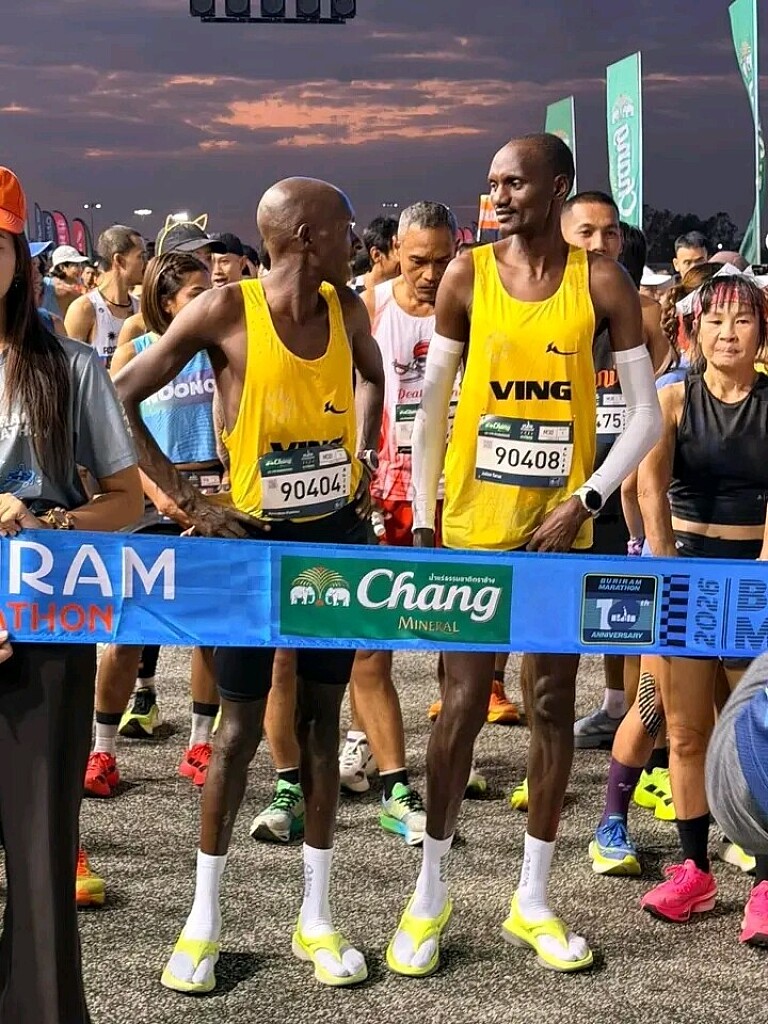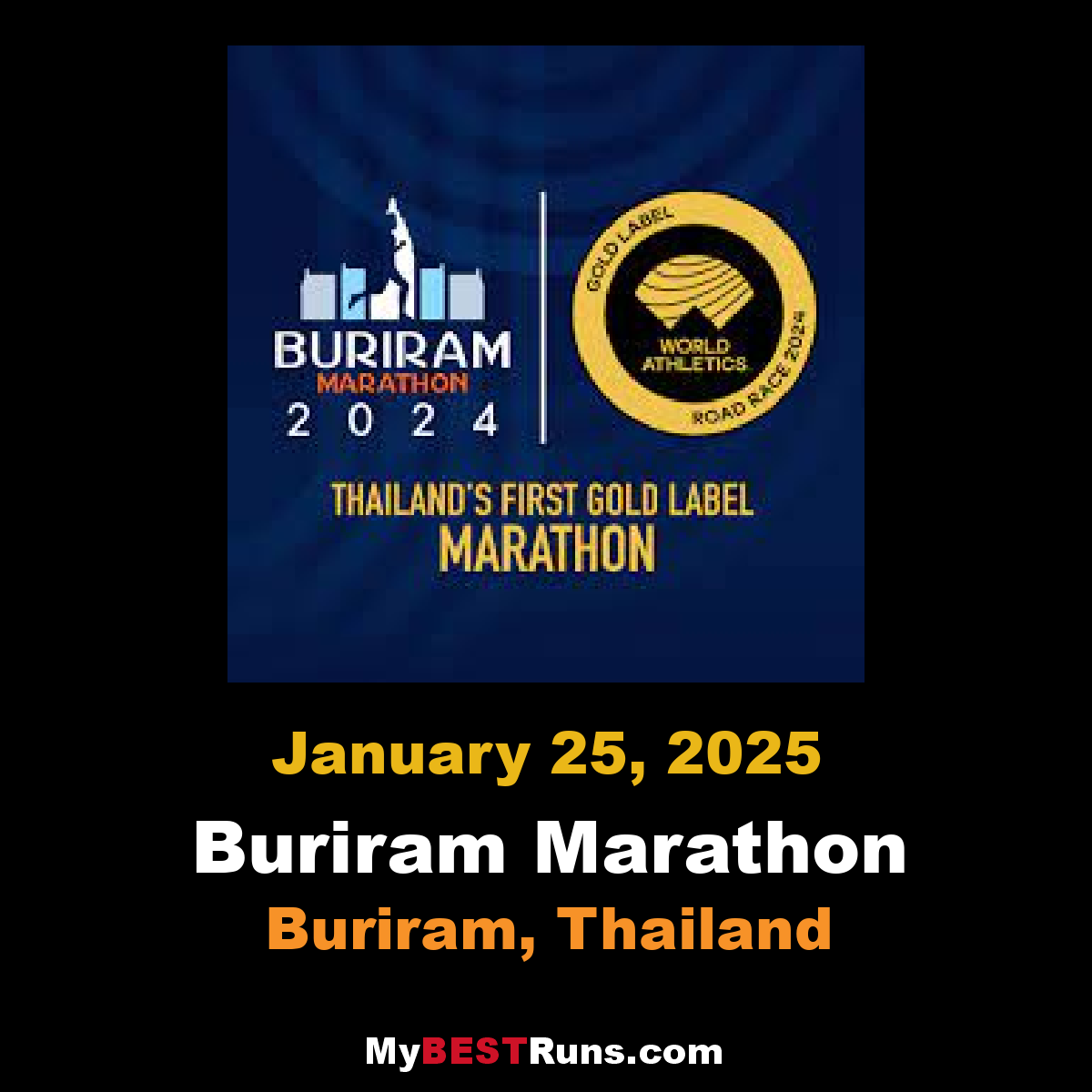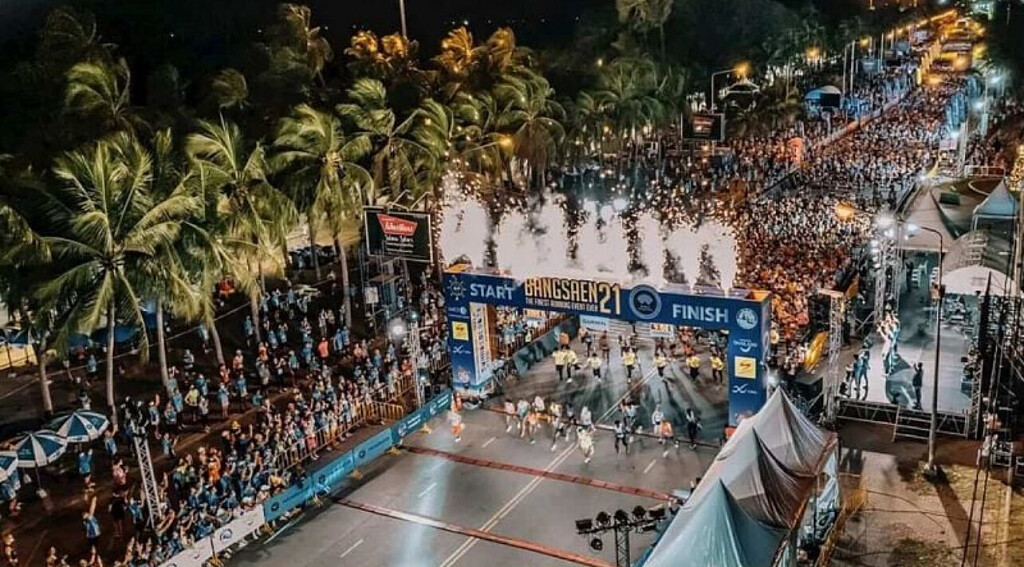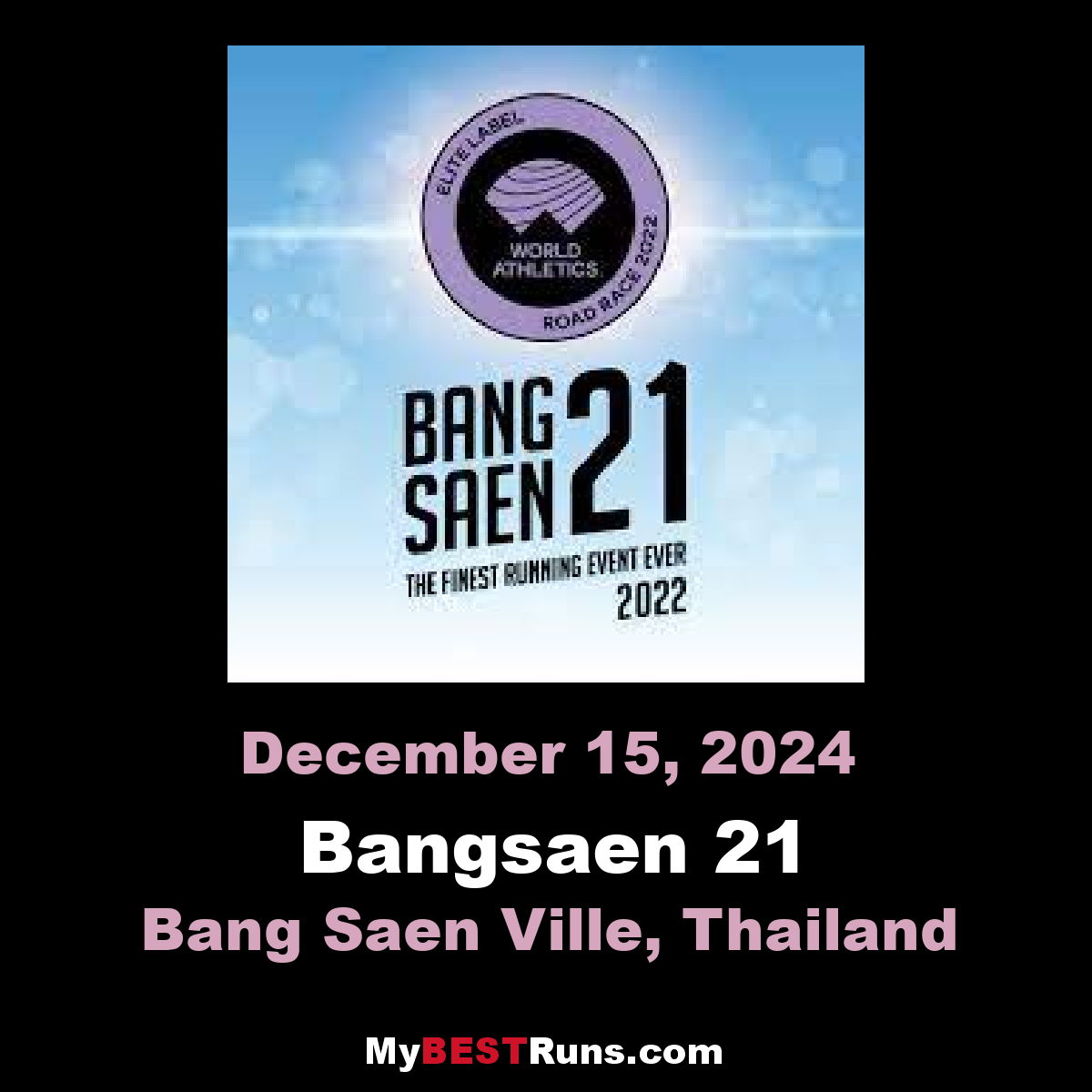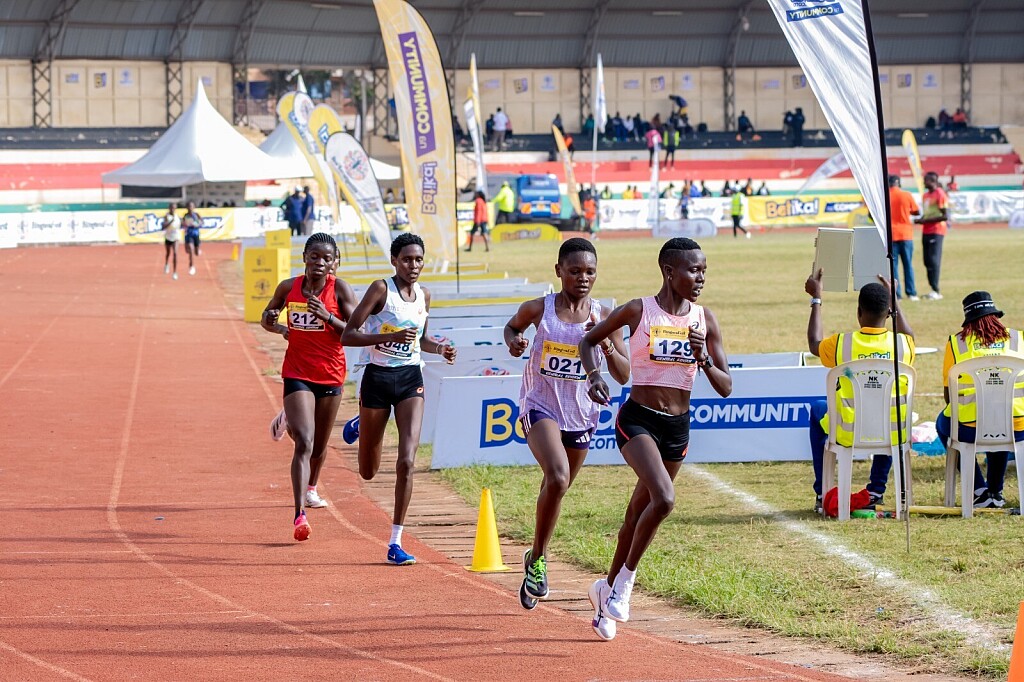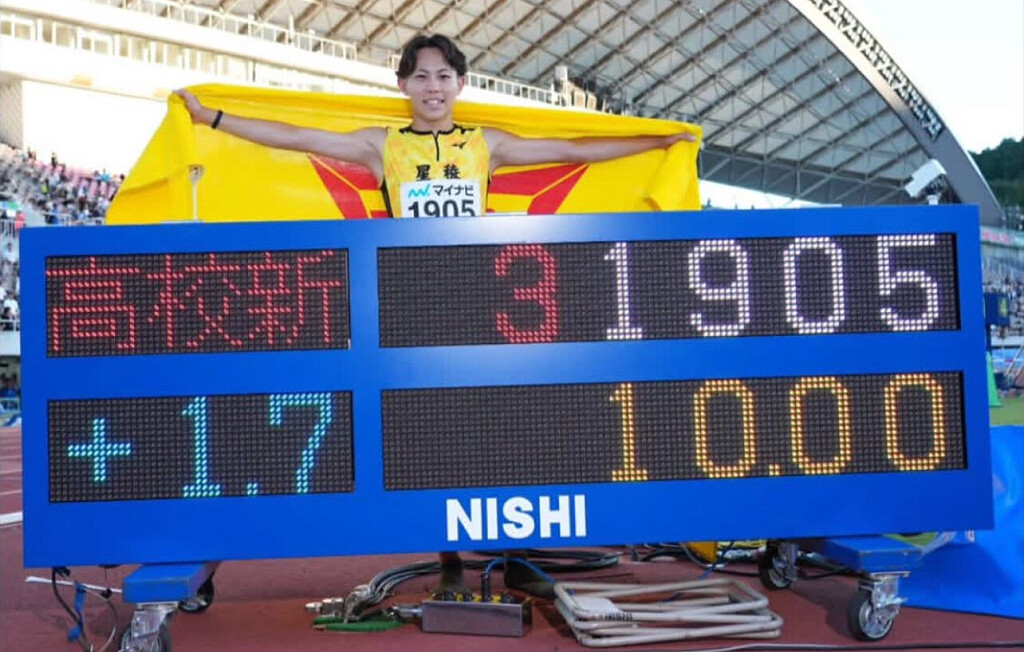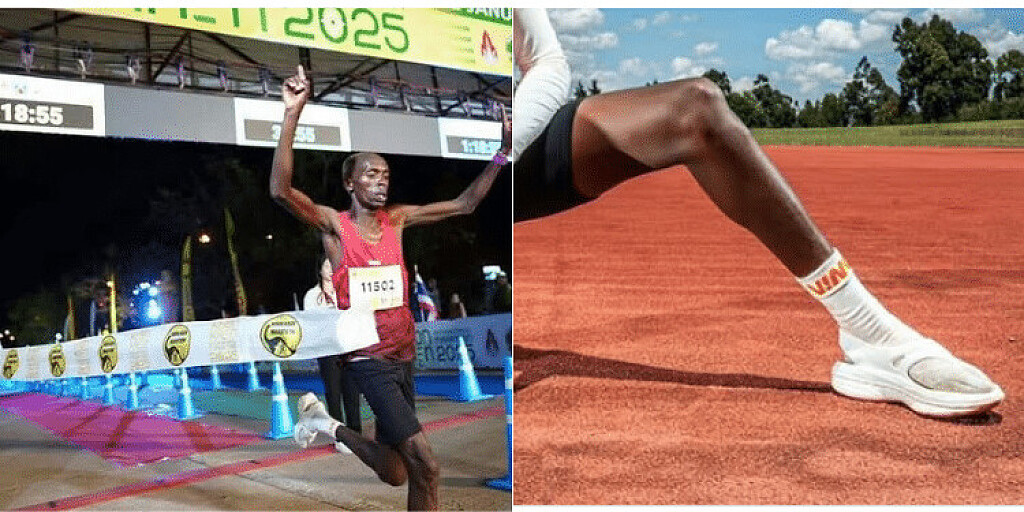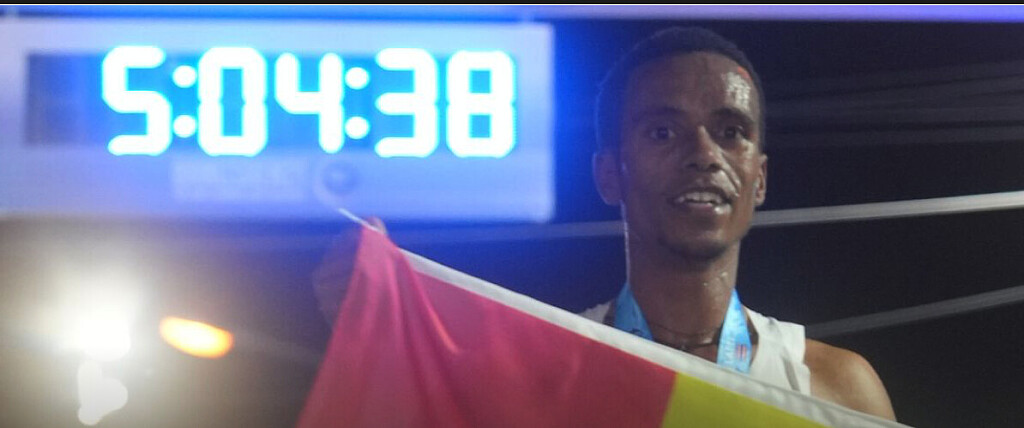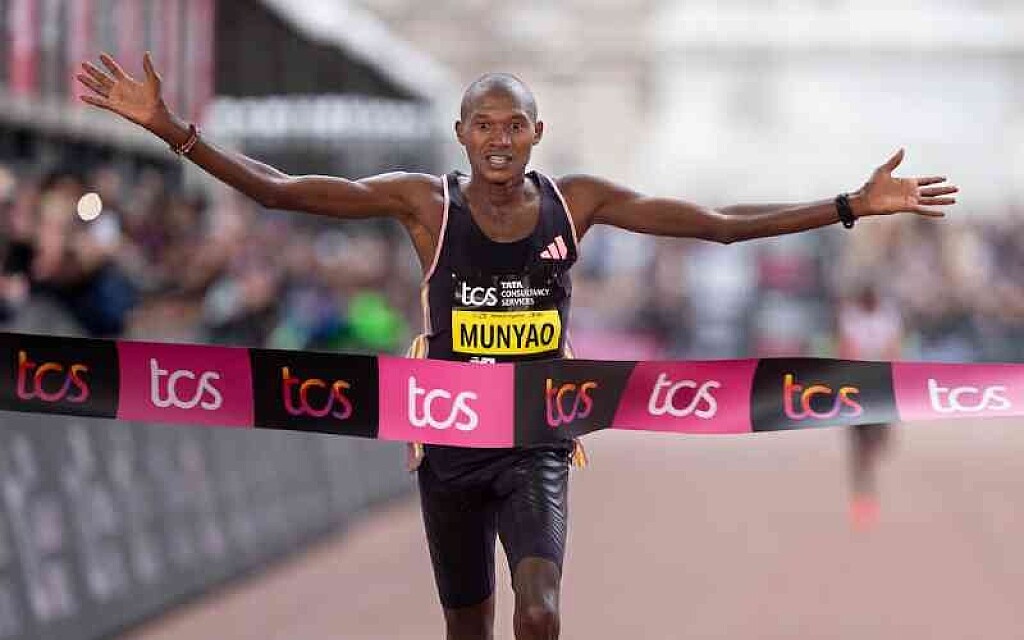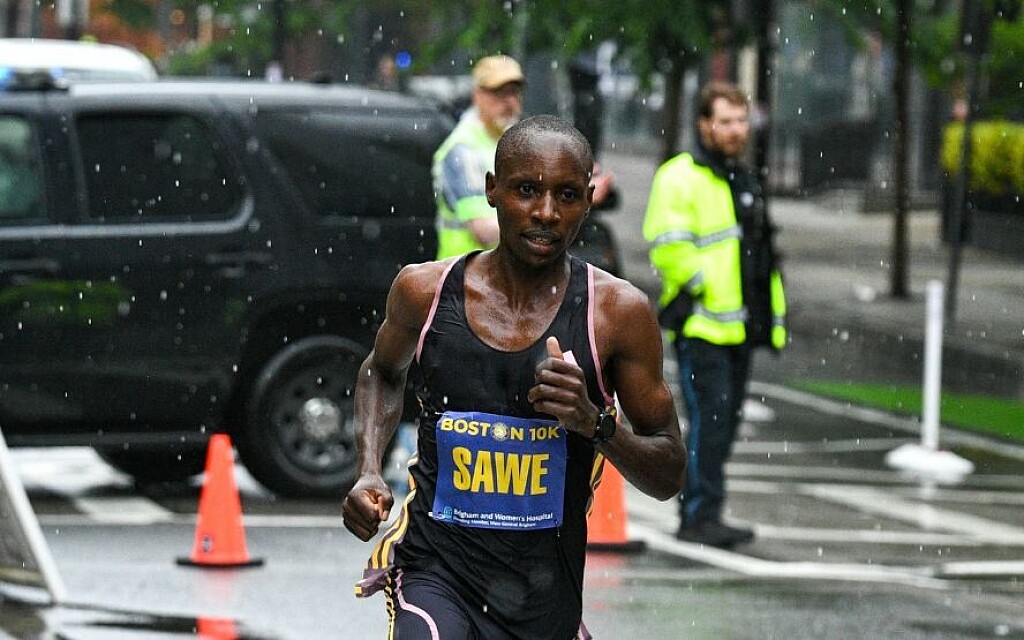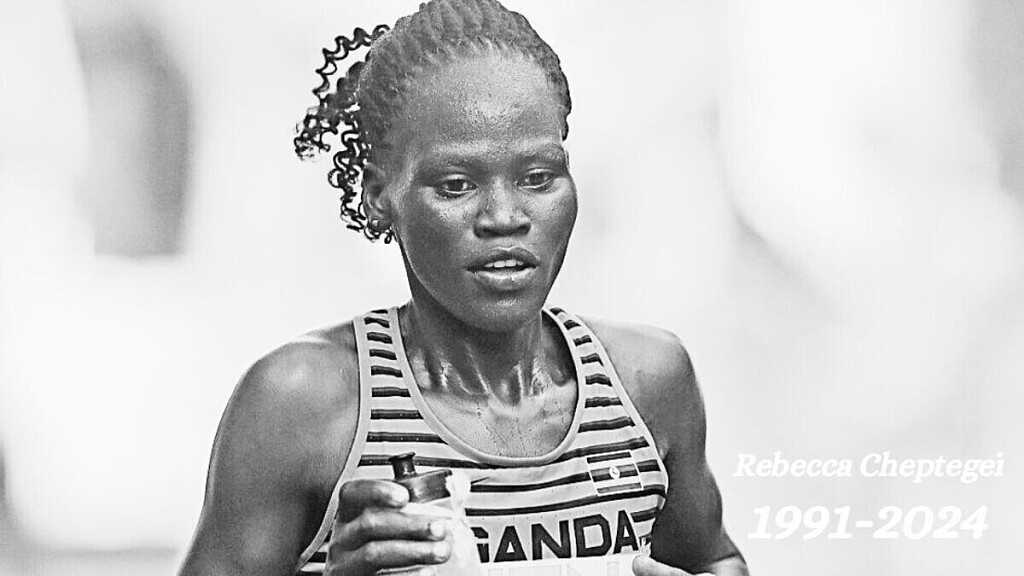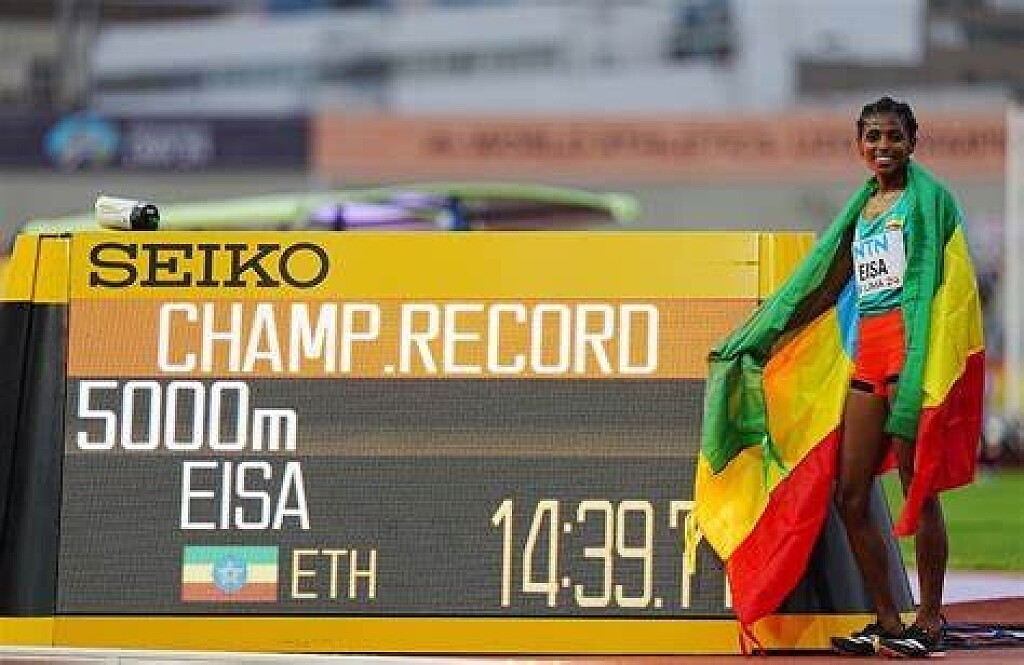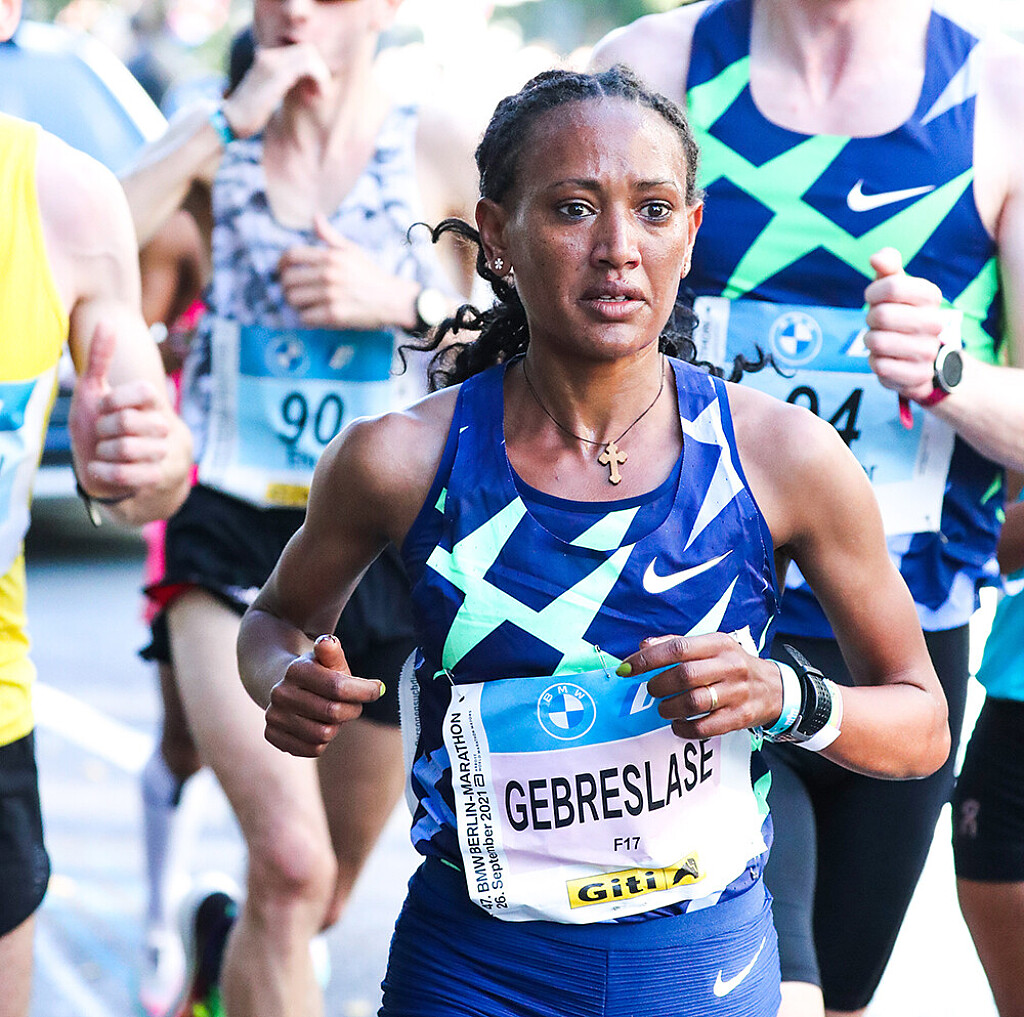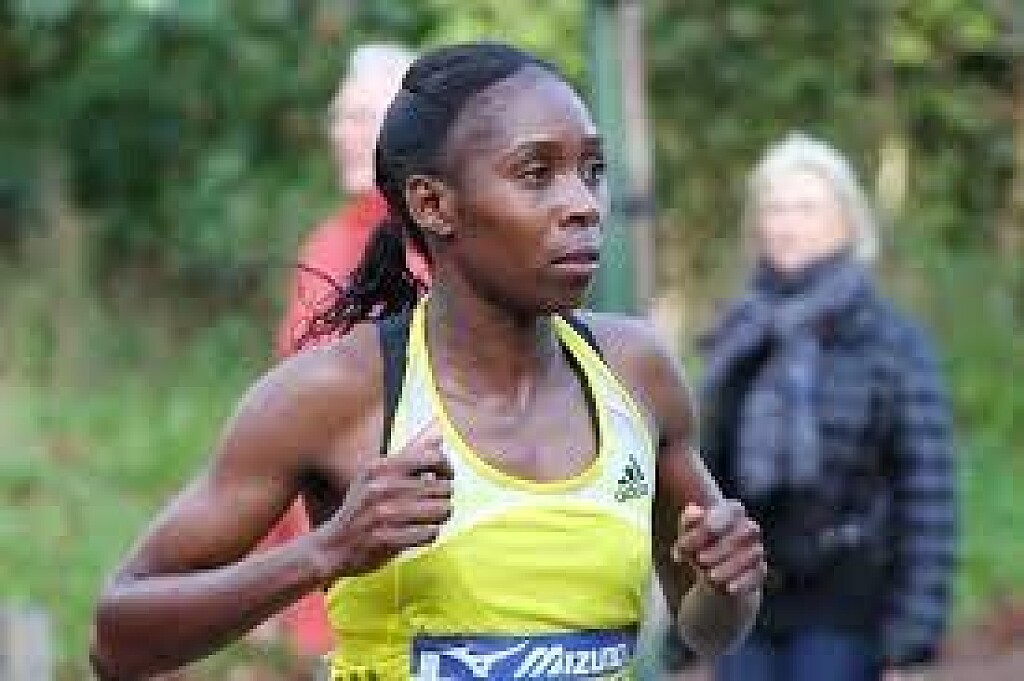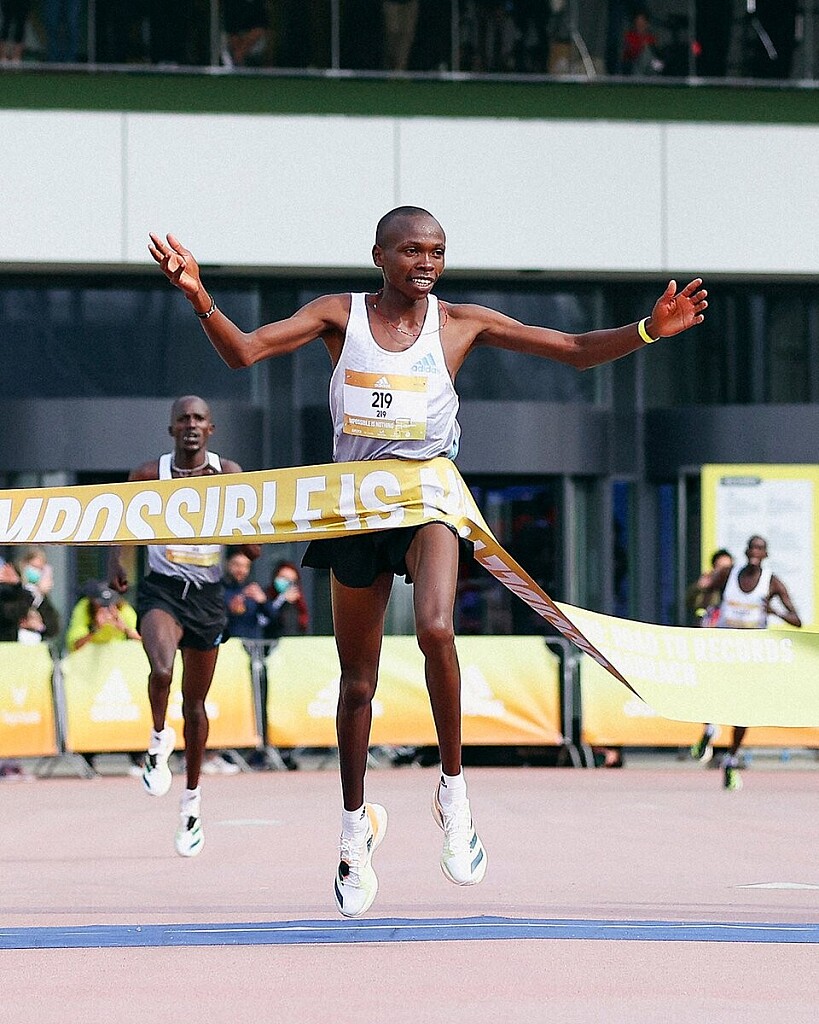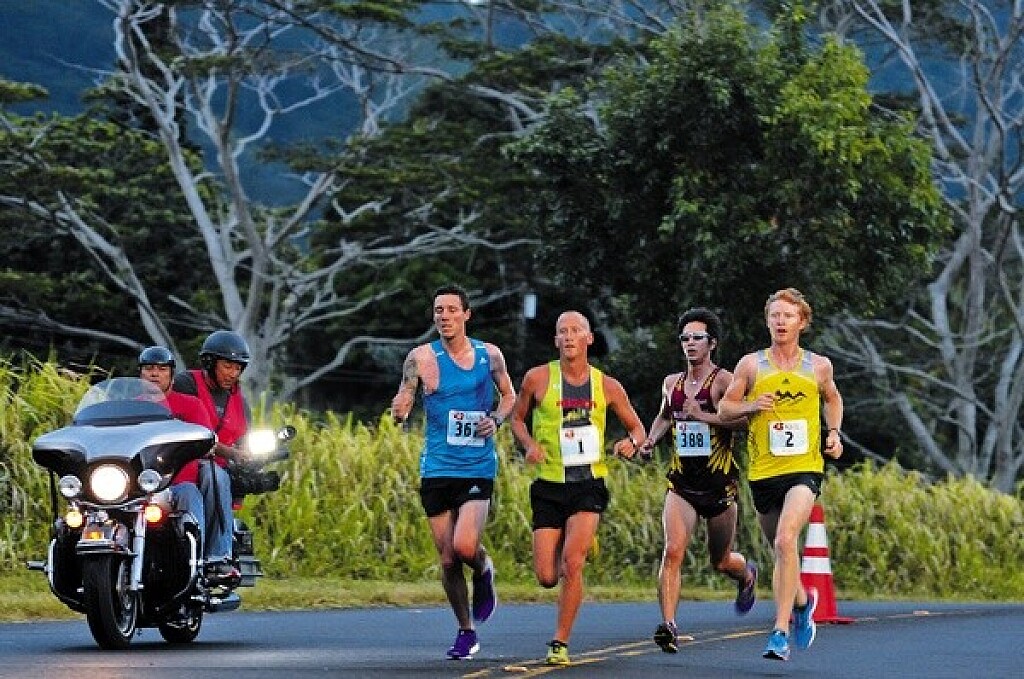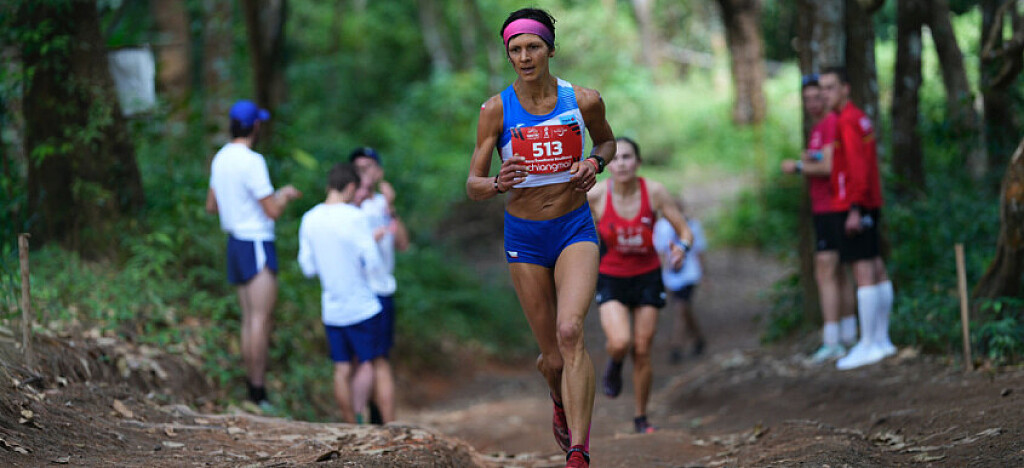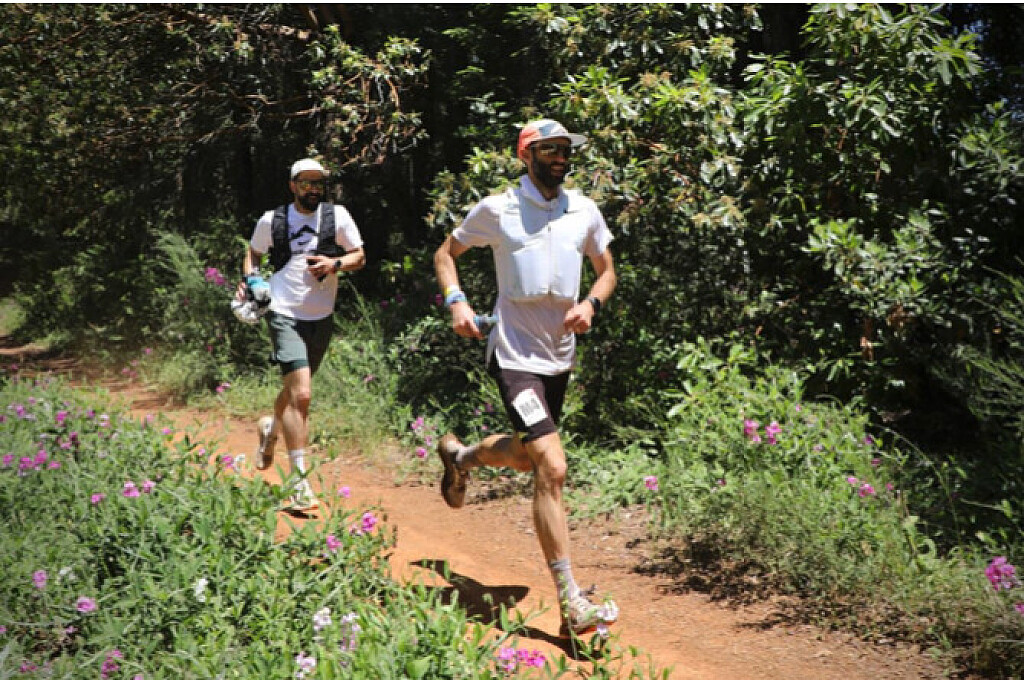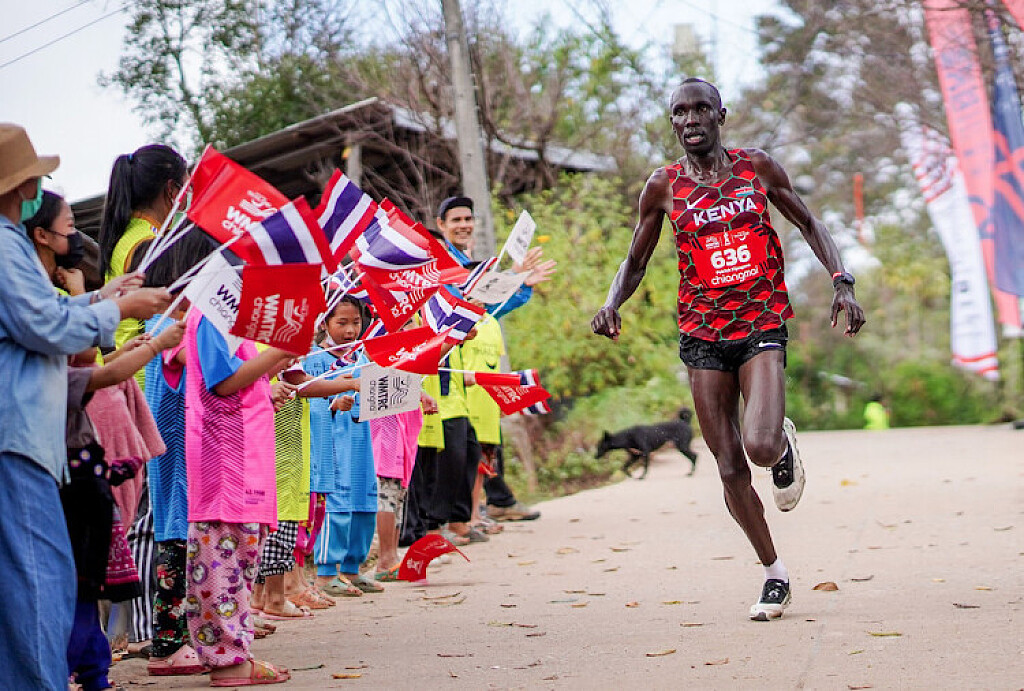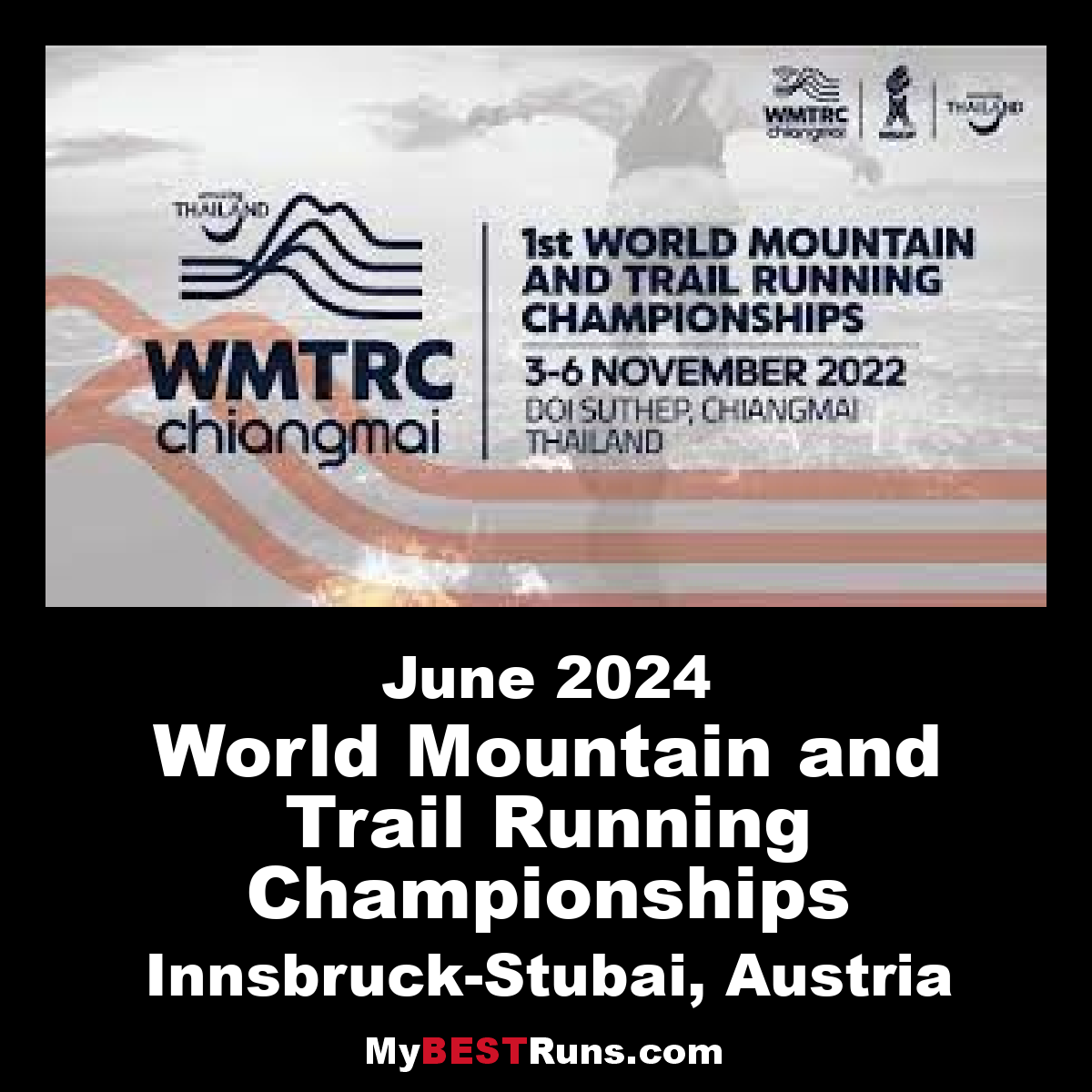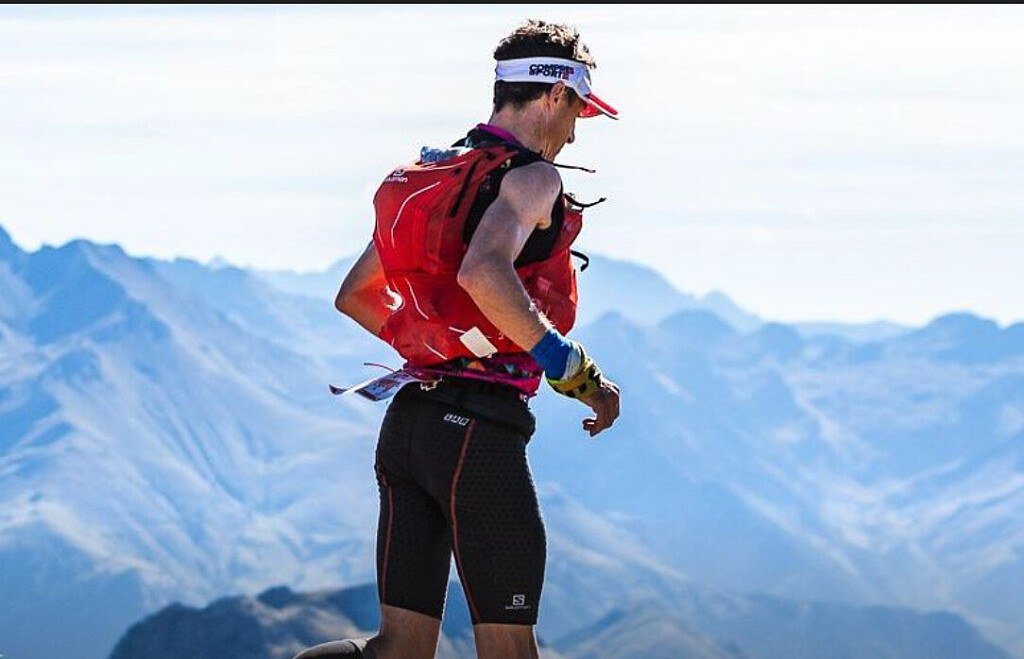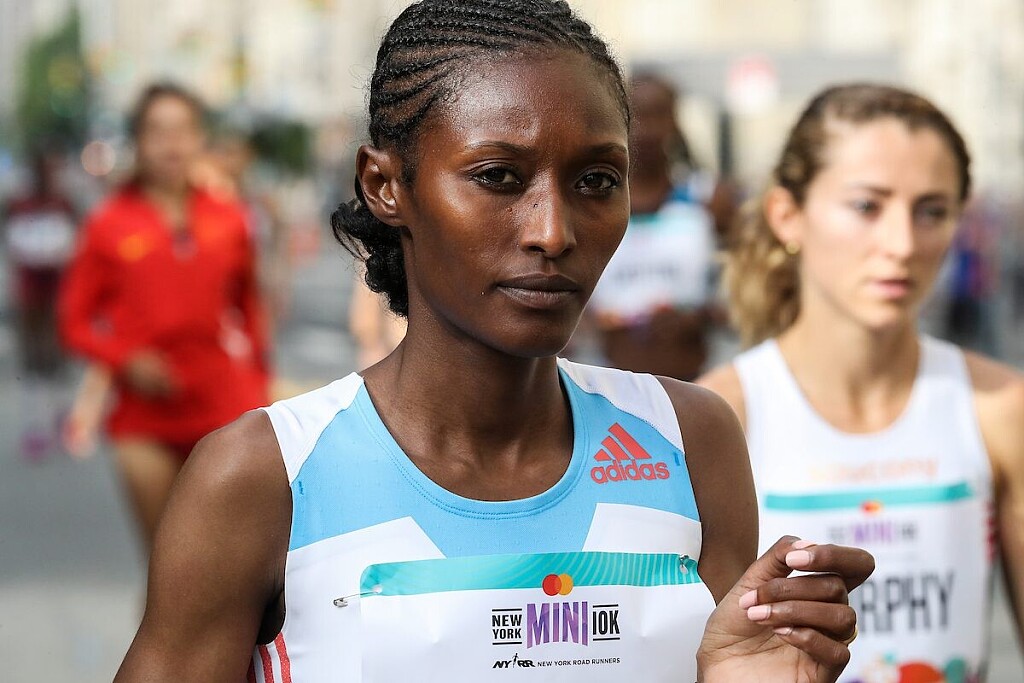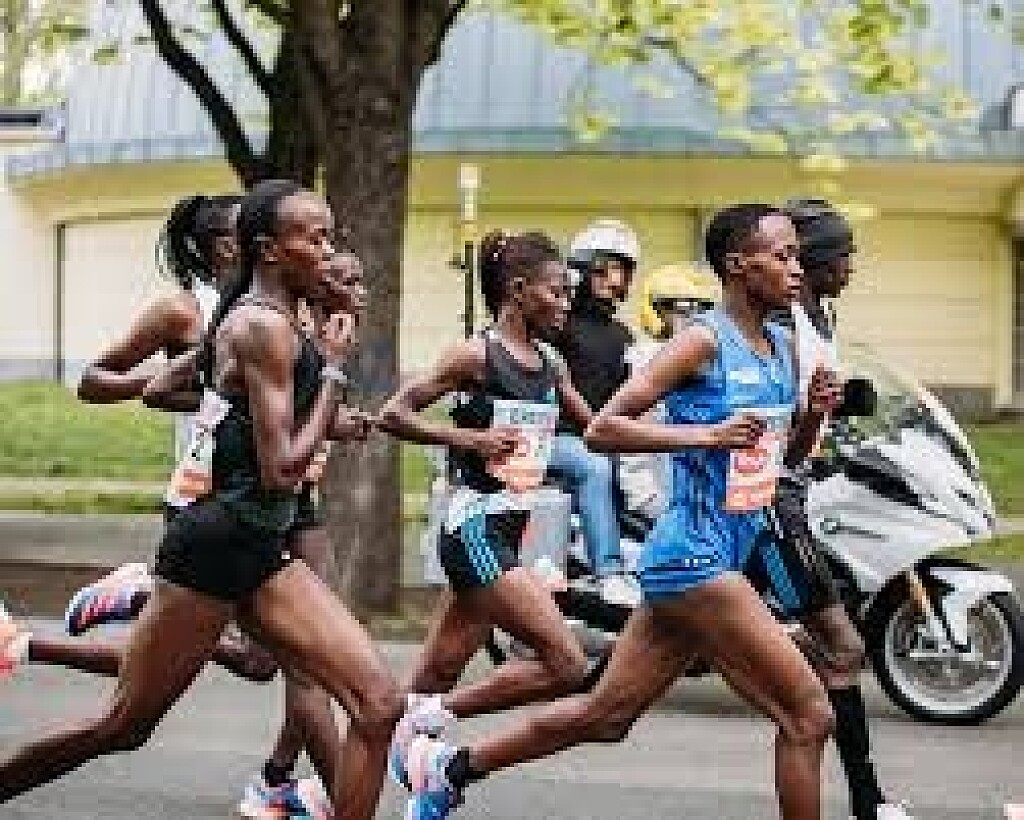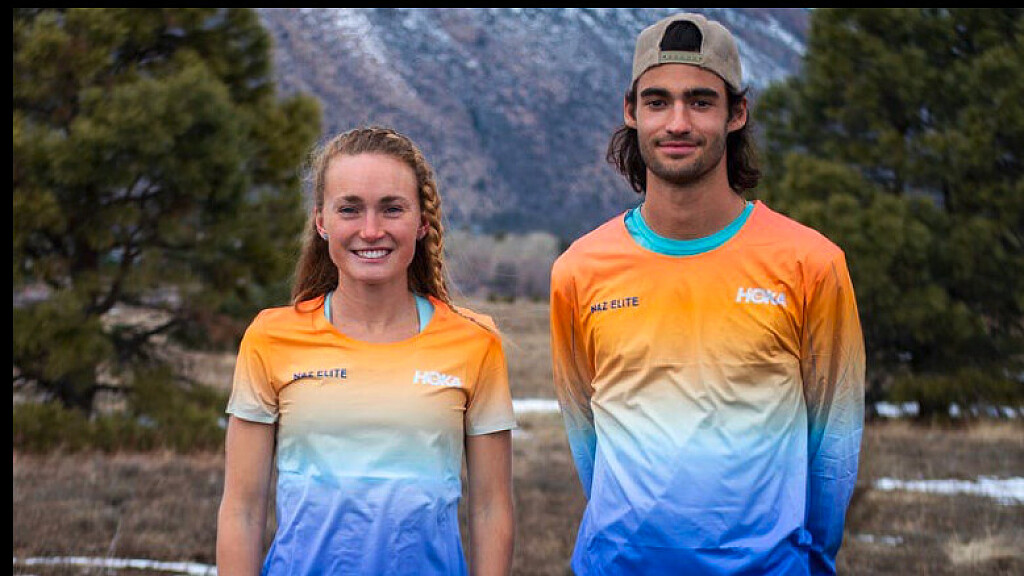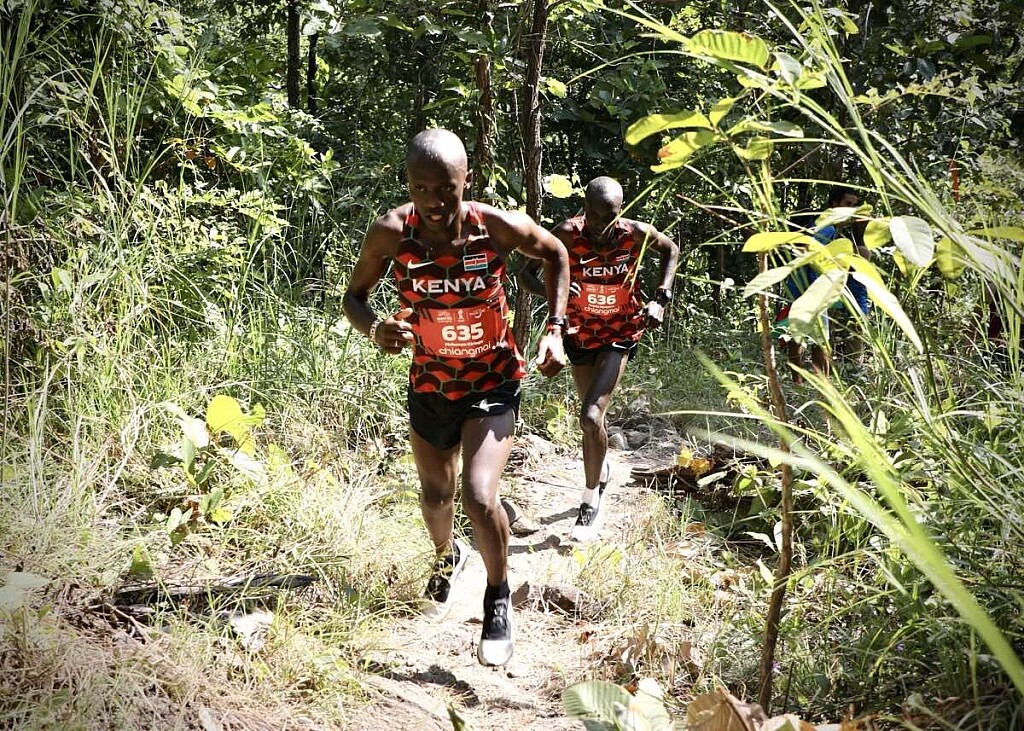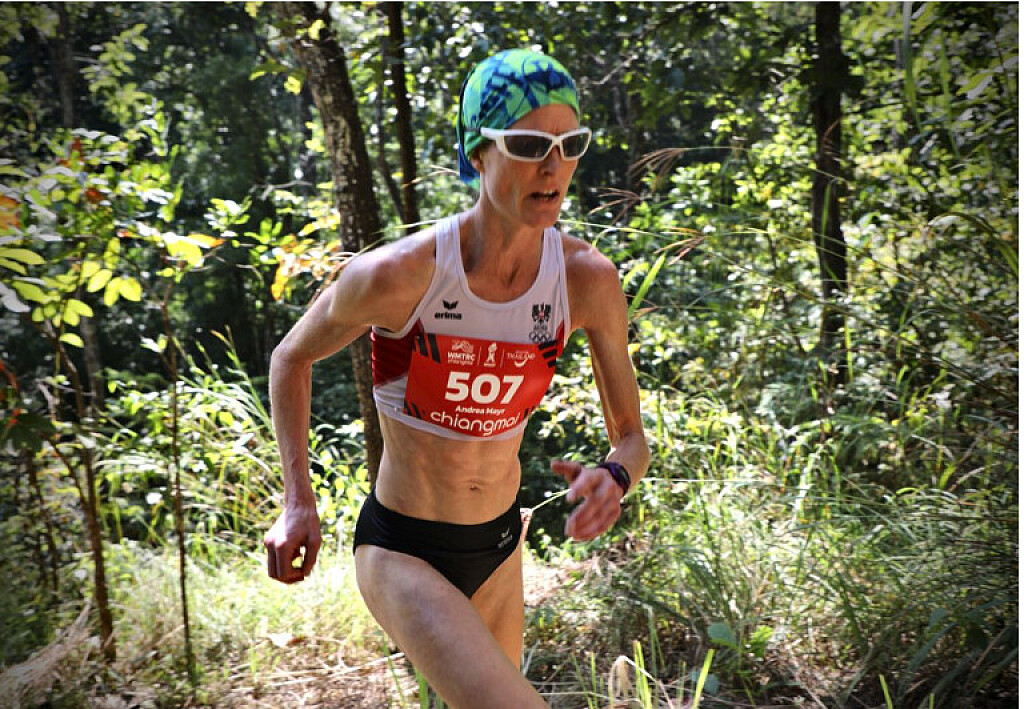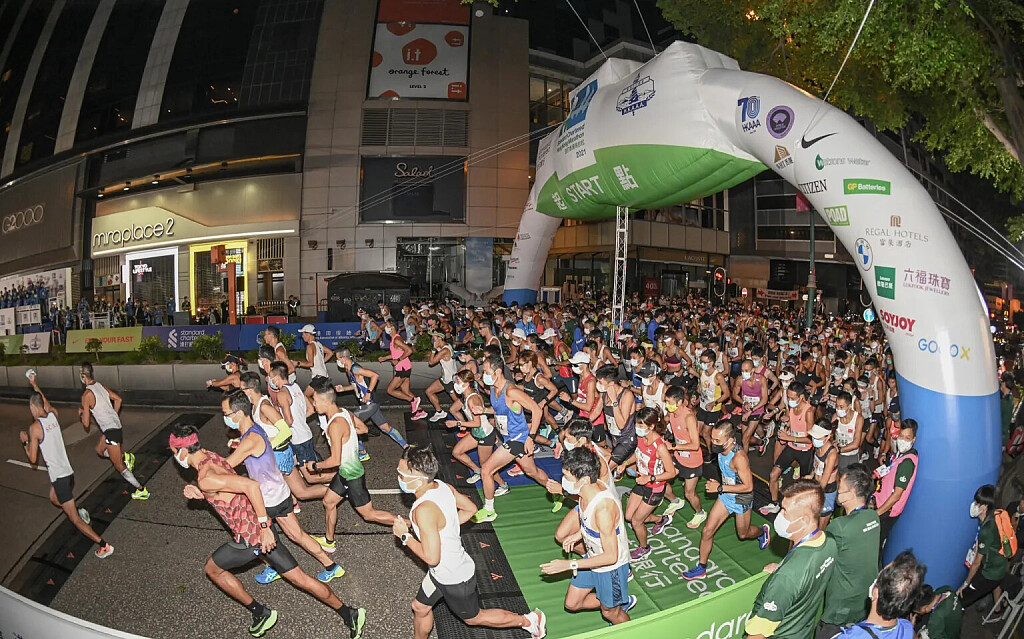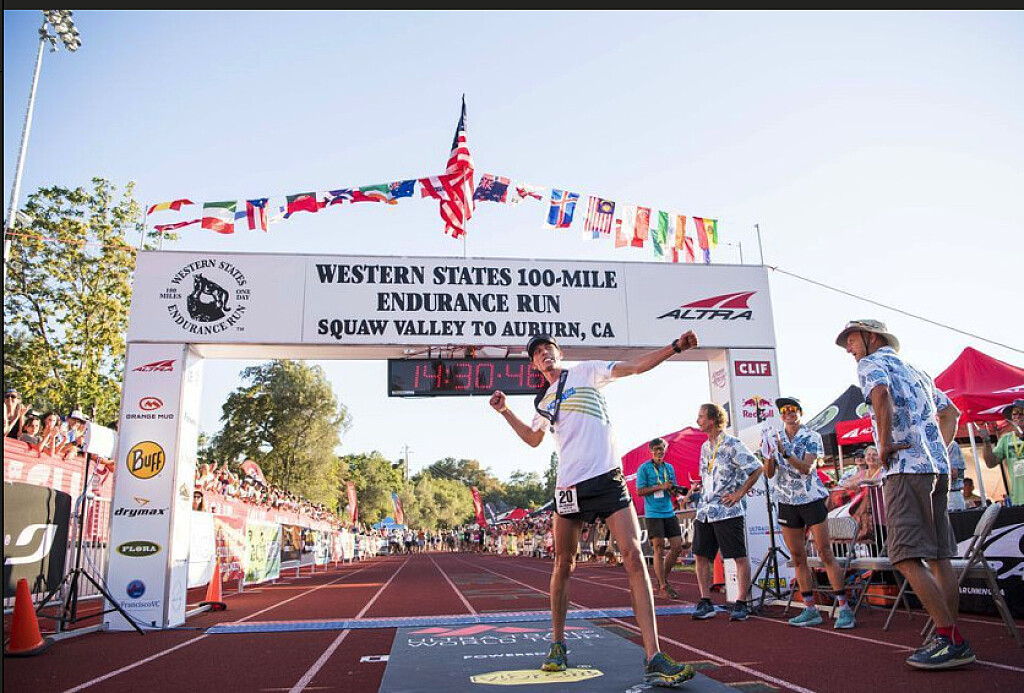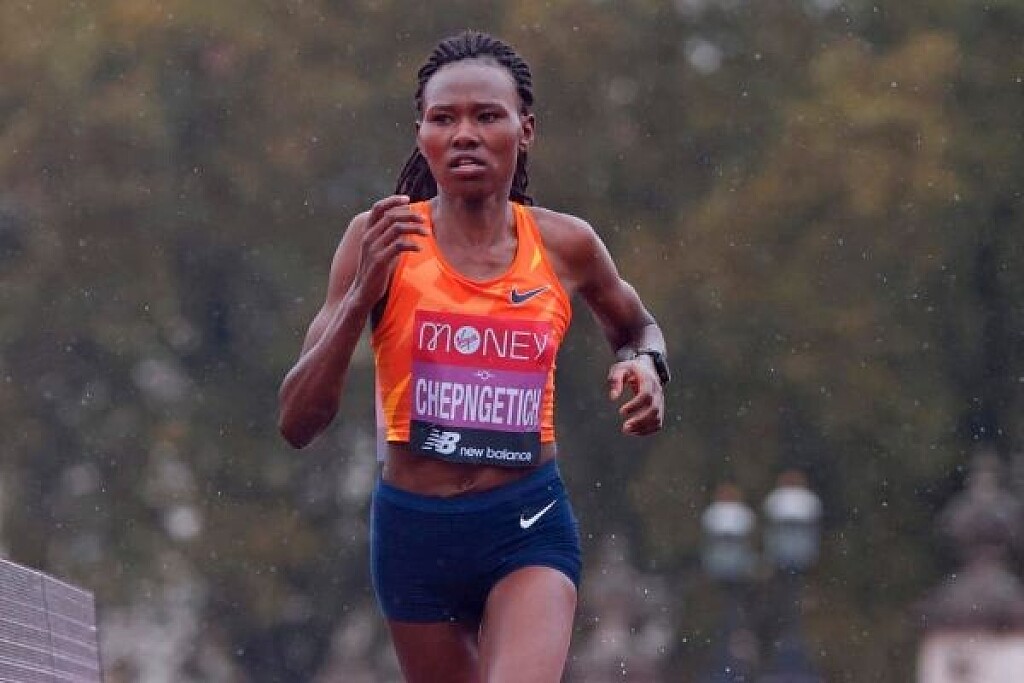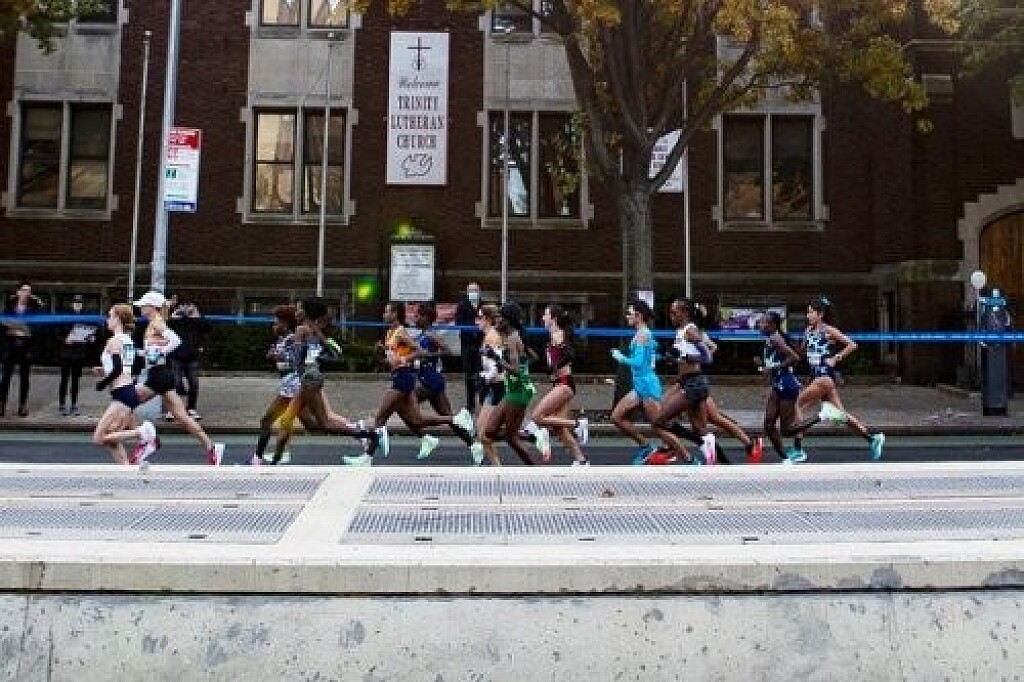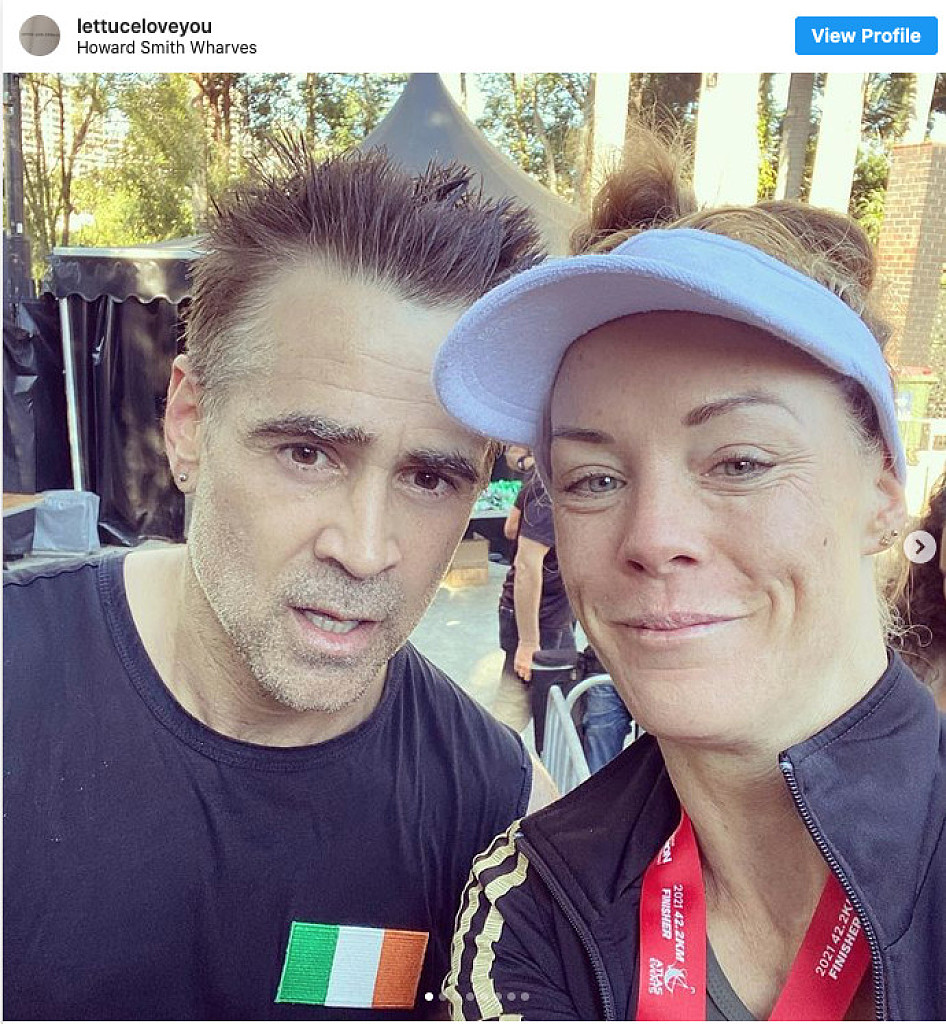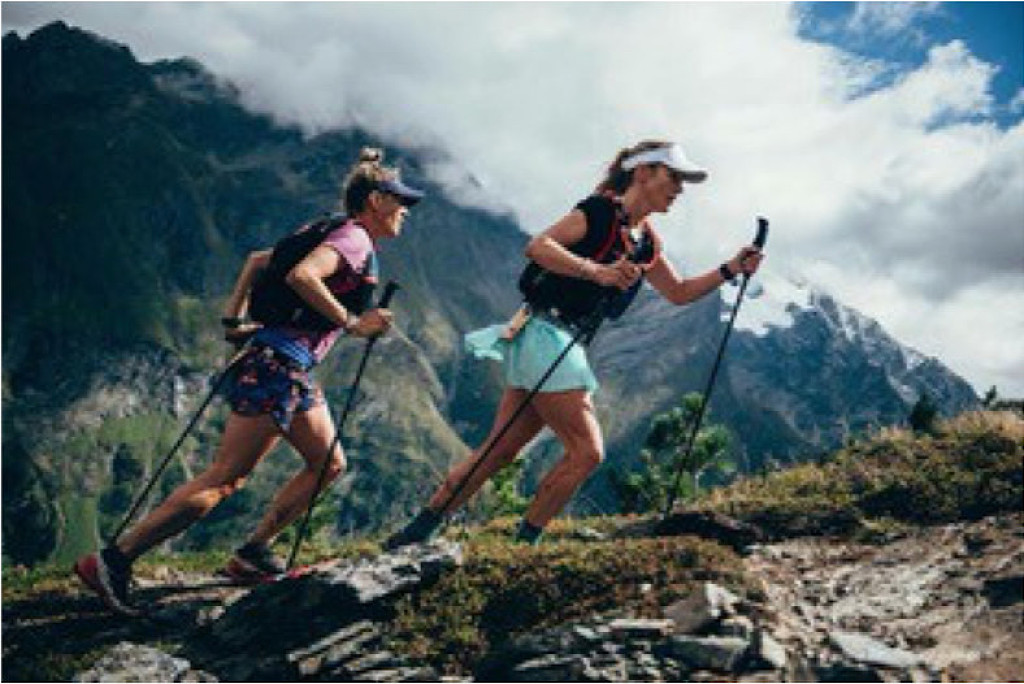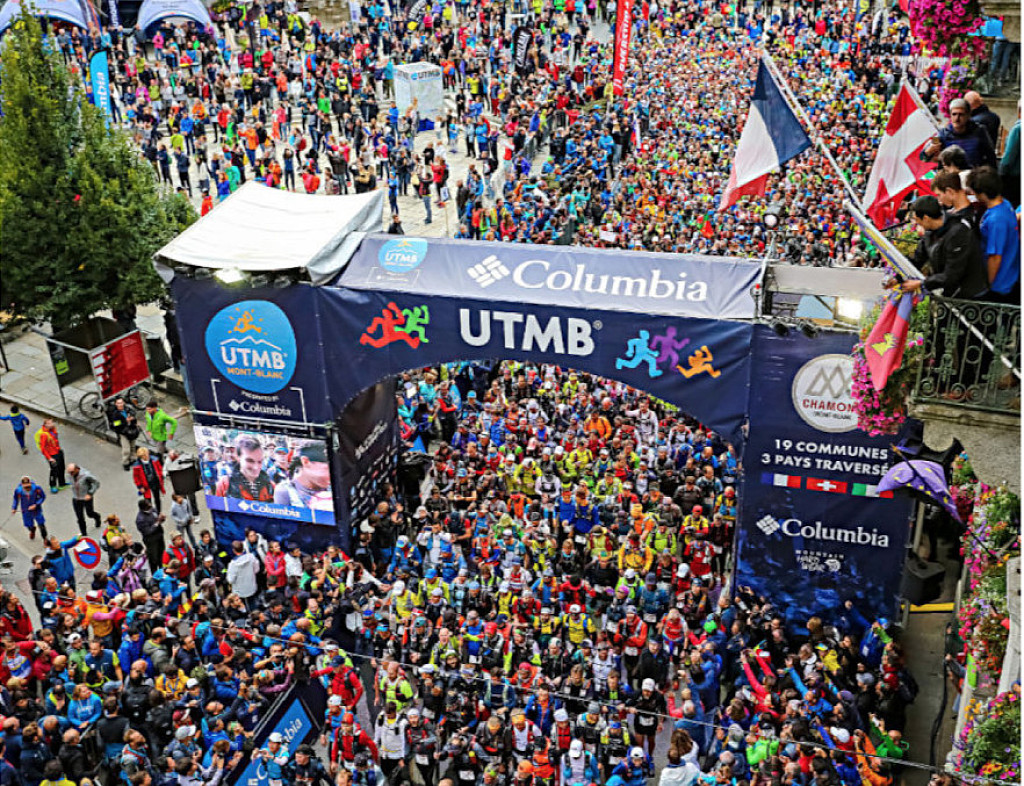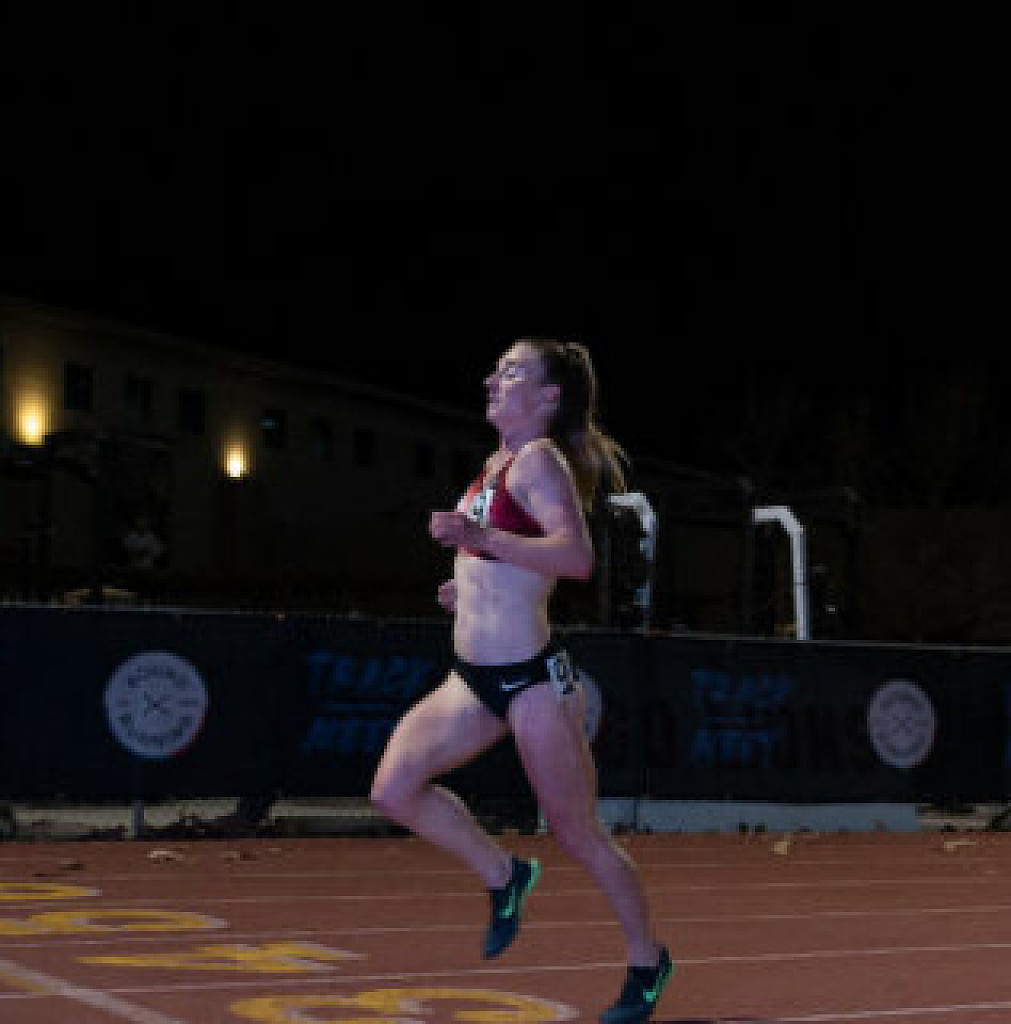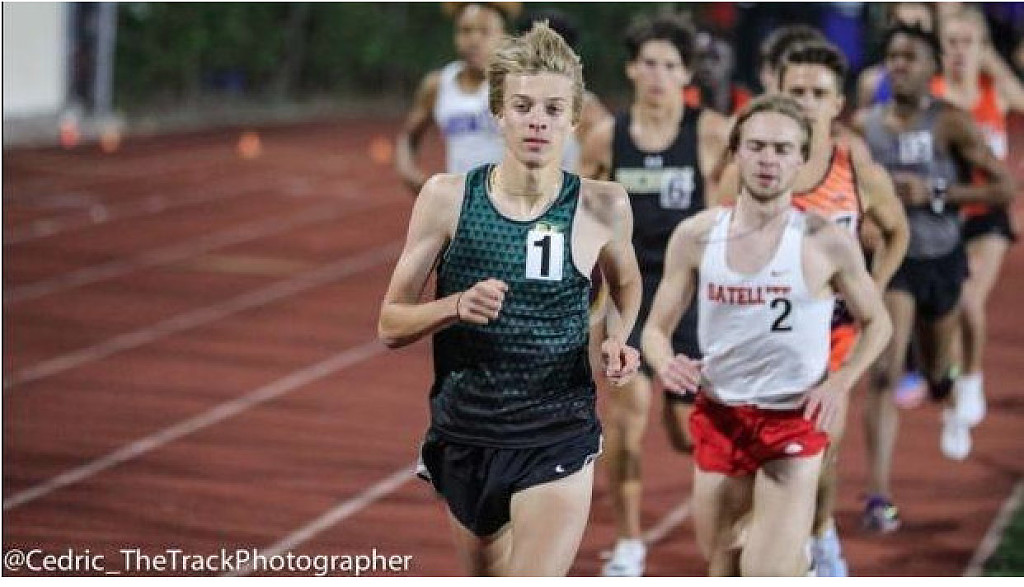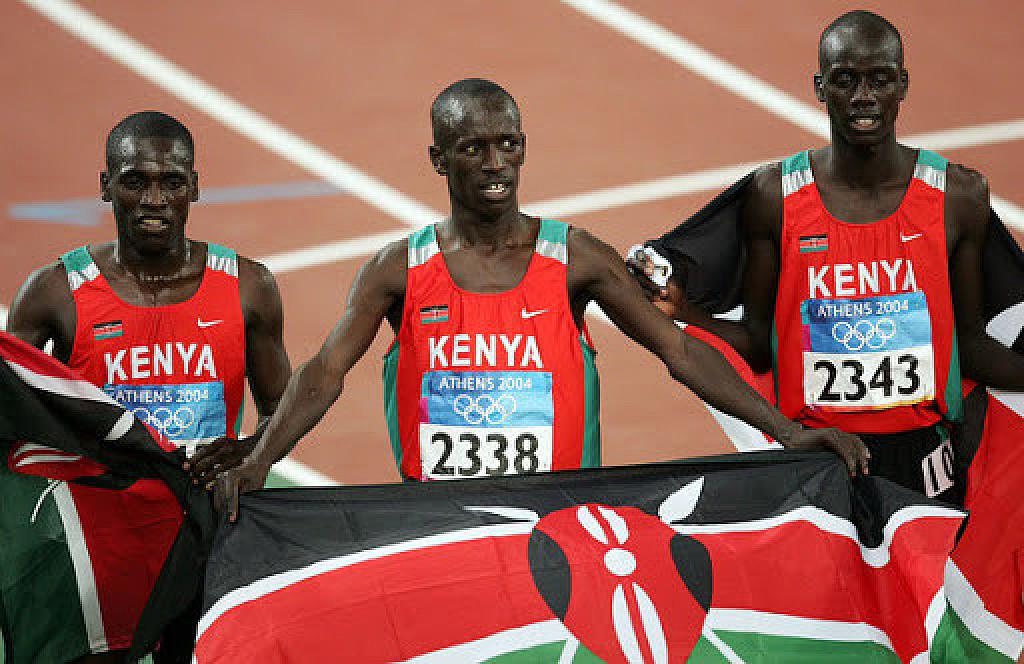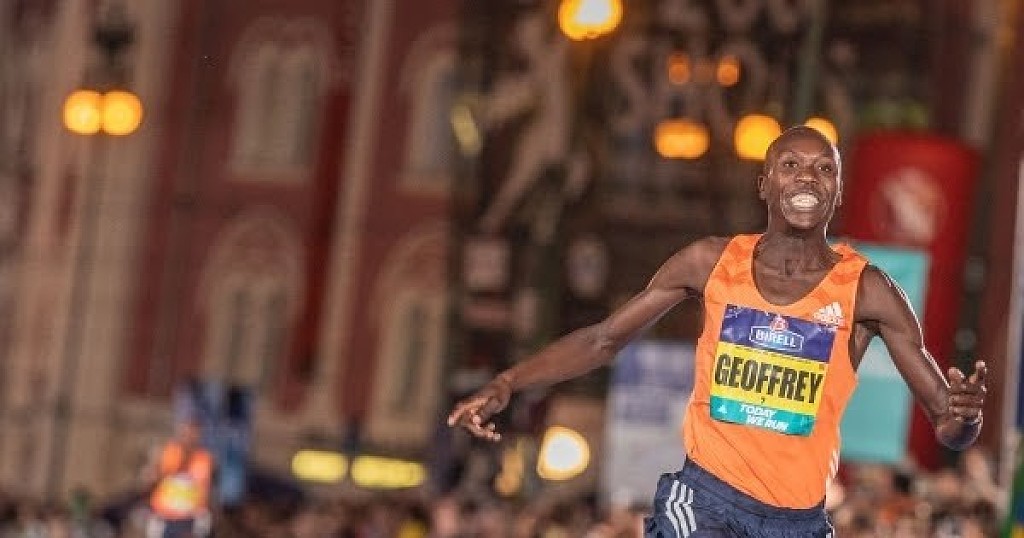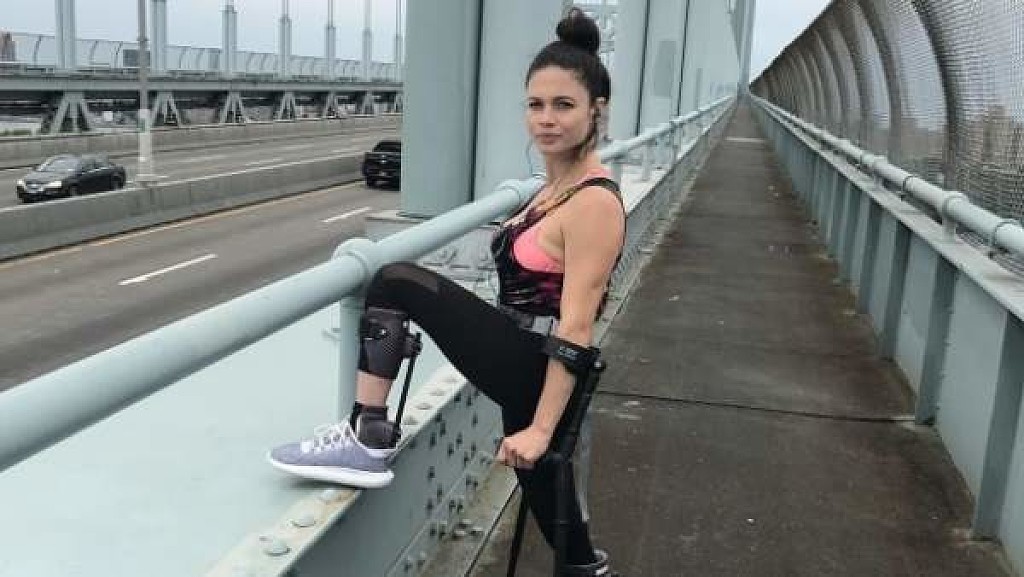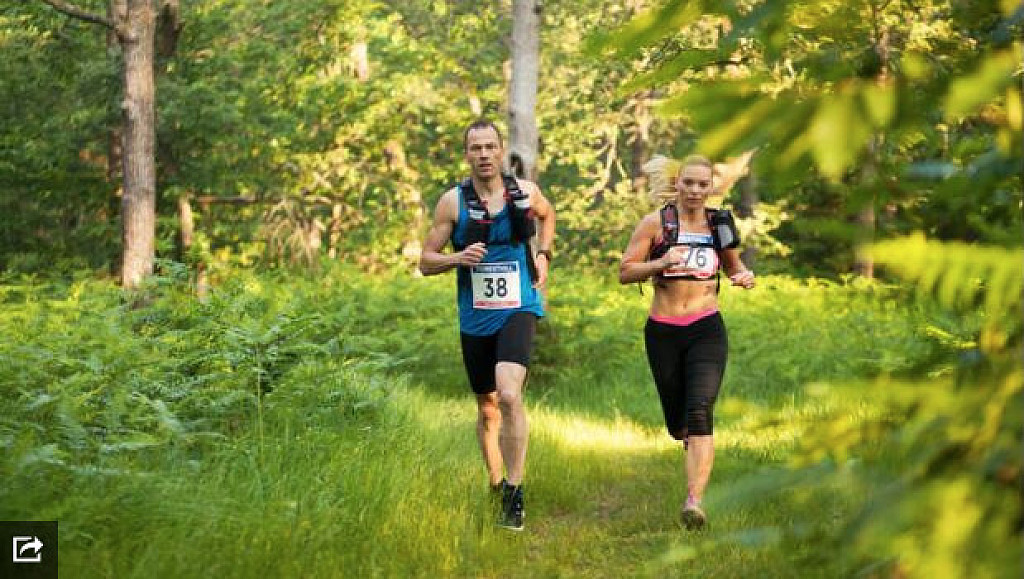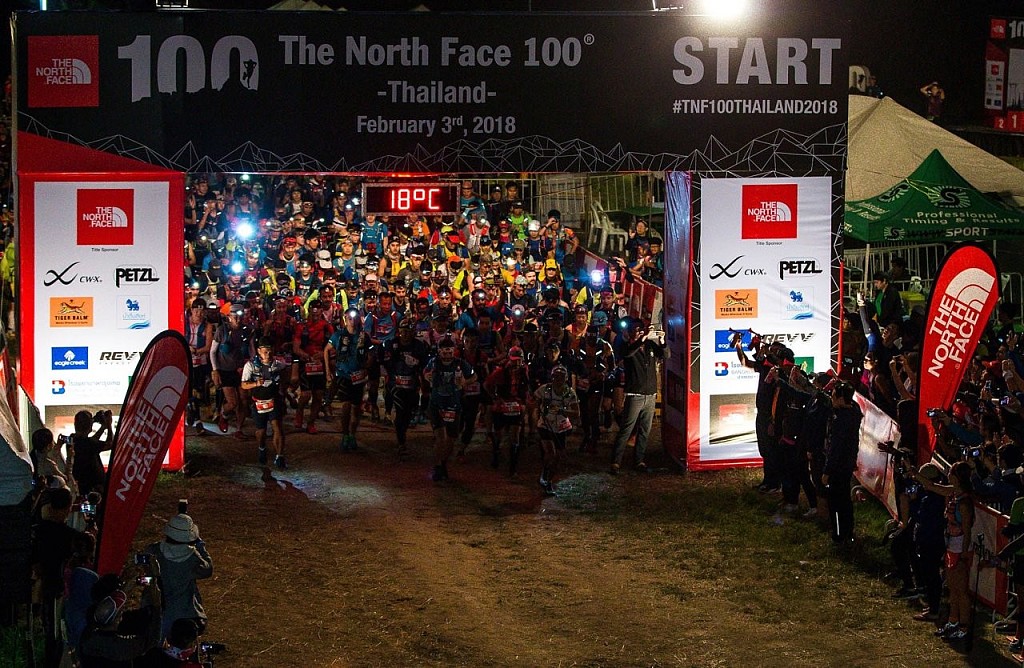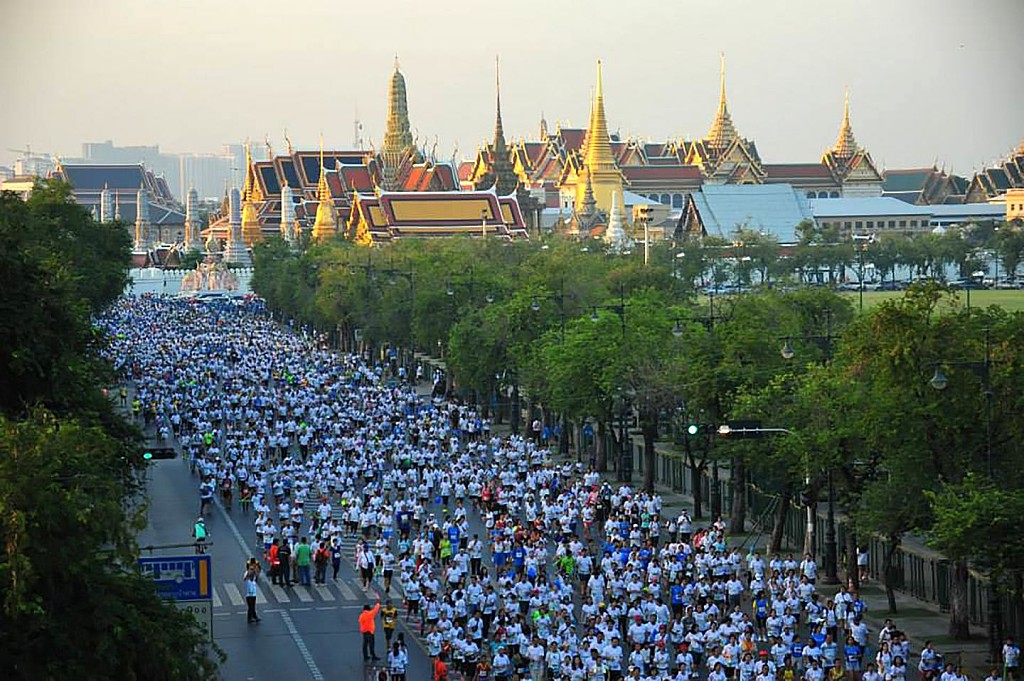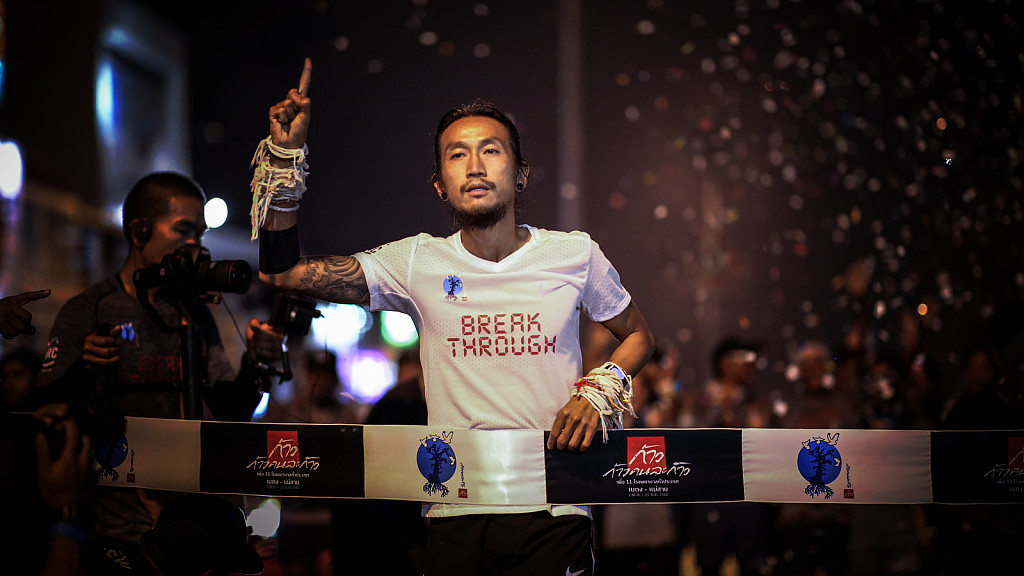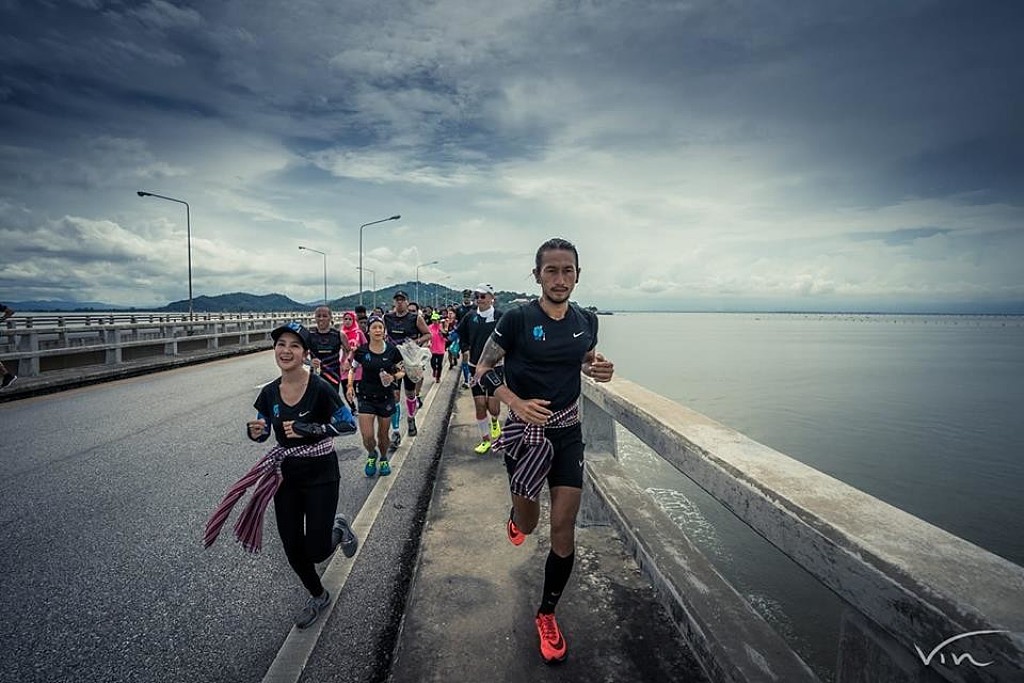Running News Daily
Running News Daily is edited by Bob Anderson. Send your news items to bob@mybestruns.com Advertising opportunities available. Train the Kenyan Way at KATA Kenya and Portugal owned and operated by Bob Anderson. Be sure to catch our movie A Long Run the movie KATA Running Camps and KATA Potato Farms - 31 now open in Kenya! https://kata.ke/
Index to Daily Posts · Sign Up For Updates · Run The World Feed
Articles tagged #Thailand
Today's Running News
Sandals, Speed, and History: Barnabas Kiplimo Shines at the 2026 Buriram Marathon
On Saturday, January 24, 2026, the streets of Buriram, Thailand hosted one of the most eye-catching marathon performances of the season. It wasn’t just about the winning time or the podium finish—it was about how the race was won.
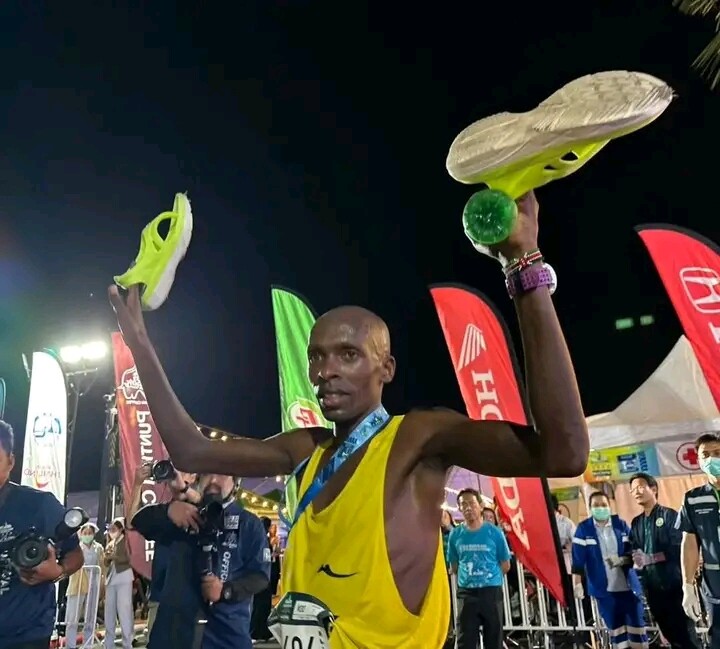
Kenyan runner Barnabas Kiplimo once again rewrote the script, storming to victory at the Buriram Marathon in a remarkable time of 2:21:16. What made the performance truly unforgettable was not only the speed, but the footwear—or rather, the lack of conventional shoes. Kiplimo crossed the finish line wearing carbon-fiber plated racing sandals, produced by Thai brand Ving Thailand, the same model that carried him to victory the previous year.
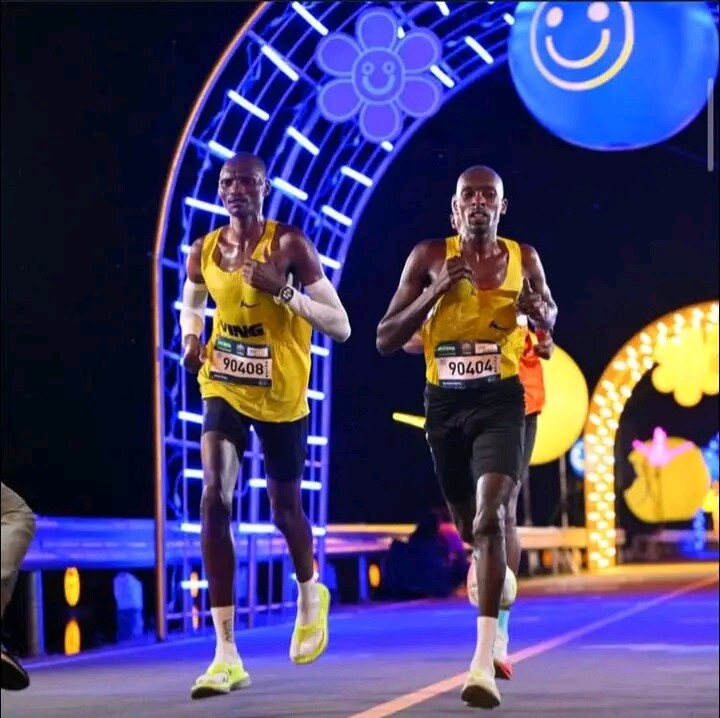
This win marked yet another milestone in Kiplimo’s unconventional rise. In 2025, he had already turned heads by winning the Khon Kaen Marathon in Thailand with an even faster time of 2:18:55, becoming the first elite marathon winner to achieve such a feat using the brand’s original sandal model. That breakthrough sparked global curiosity—and now, history has repeated itself.
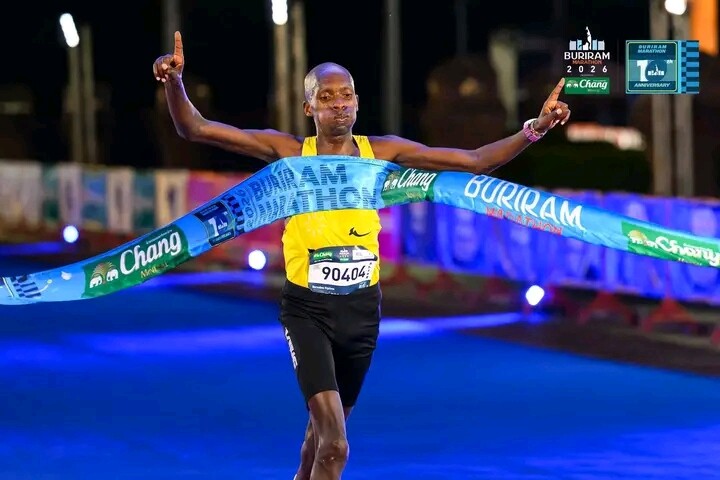
This time, Kiplimo raced in the Nirun model, Ving Thailand’s latest innovation. According to the brand, the philosophy behind Nirun is to “simplify the footwear industry” by creating what they describe as the world’s first super sandal—a minimalist design fused with modern performance technology, including a carbon-fiber plate usually reserved for elite racing shoes.
What made the Buriram Marathon even more compelling was the fact that Kiplimo was not alone in proving the concept. The third-place finisher, fellow Kenyan Julius Tarus, also competed in the performance sandals, reinforcing that this was no gimmick—it was a genuine shift in how marathon racing can be approached.
2026 Buriram Marathon – Men’s Podium
1. Barnabas Kiplimo (Kenya) – 2:21:16
2. Wendwesen Dante (Ethiopia) – 2:22:52
3. Julius Tarus (Kenya) – 2:27:34
As marathon running continues to evolve through innovation and bold experimentation, Barnabas Kiplimo’s success challenges long-held assumptions about performance footwear. In Buriram, tradition met innovation—and innovation prevailed.
From Kenya to Thailand, and from shoes to sandals, one thing is now clear: the future of marathon running may look very different from what we once imagined.
by Erick Cheruiyot for My Bestruns.
Login to leave a comment
Buriram Marathon
Thailand's First Gold label Marathon! Buriram Marathon is created by Mr.Newin Chidchob, the President of Buriram United and the Executive of Chang International Circuit, aiming to promote Buriram as a “Thailand’s Sport City Center.” The purposes of Buriram Marathon are to make Buriram one of the best marathon stadiums in the world, and to be a destination that the every...
more...Mailu and Omare Win Bangsaen21 Half Marathon in Thailand
The coastline of Bangsaen, Thailand, provided a fitting stage for season-ending statements as the Bangsaen21 Half Marathon unfolded in the cool pre-dawn hours. On a course that rewards discipline as much as speed, Kenya’s Samwel Nyamai Mailu and Dolphine Nyaboke Omare delivered controlled, authoritative victories—closing their 2025 campaigns with confidence and setting a clear tone for the road season ahead.
From the opening kilometres, the race signaled its intent. The pace was honest but restrained, shaped by exposed coastal stretches and rising humidity along the Gulf of Thailand. Rather than early fireworks, both elite fields settled into rhythm, waiting for the moment when patience would turn into purpose.
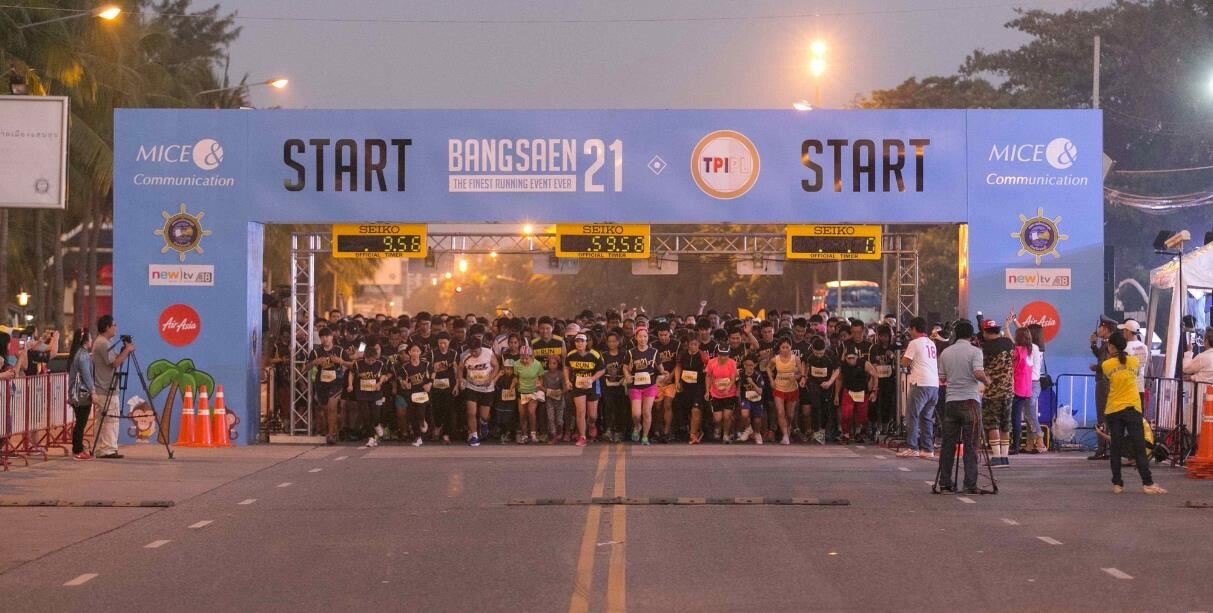
Mailu Times It Perfectly
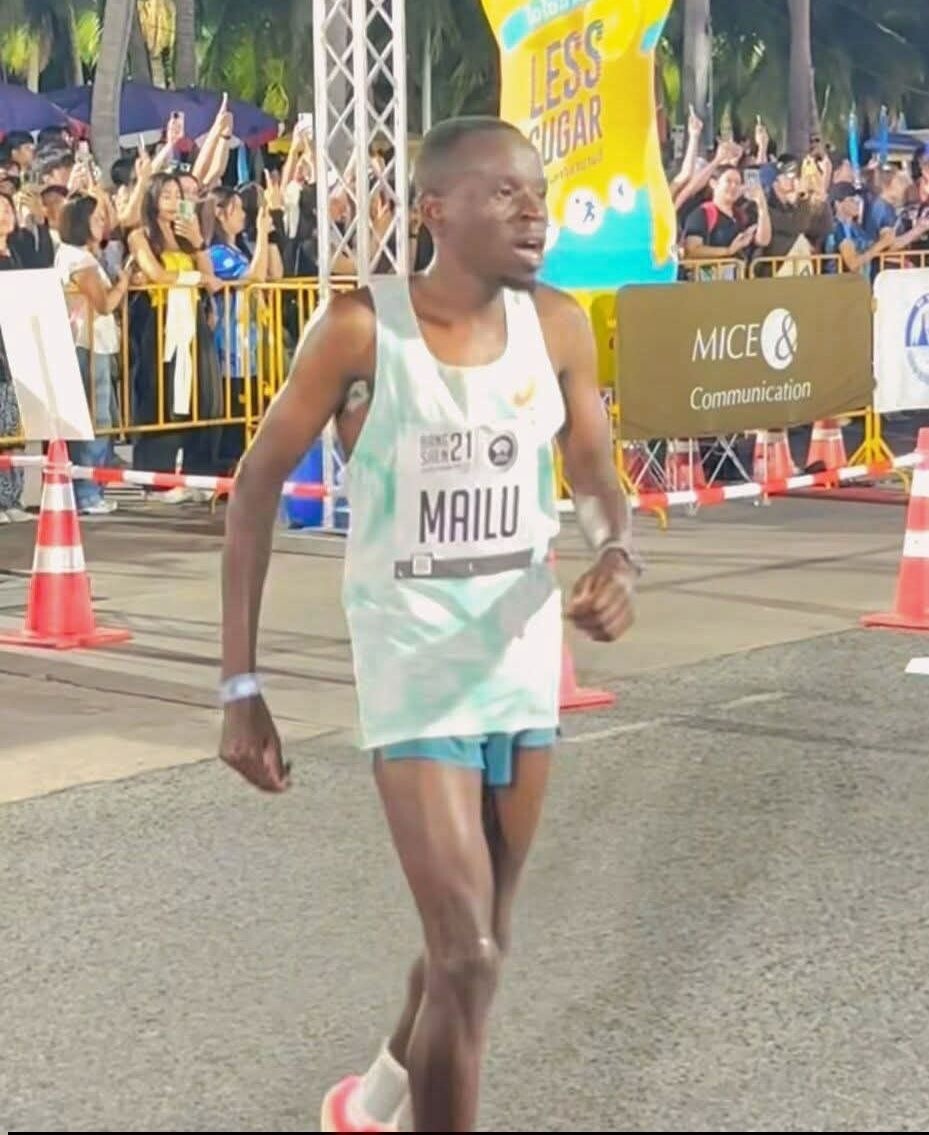
In the men’s race, a compact lead pack flowed smoothly through the early stages, with Kenyan and Ethiopian runners sharing the workload. Mailu ran economically and composed—never forcing the pace, never drifting from contention.
As the field passed halfway, the tempo tightened. Between 15 and 18 kilometres, Mailu applied sustained pressure, lifting the pace without a sharp surge. The move was subtle but decisive. Ethiopia’s Teresa Nyakola and Regasa Seyoum Beharu responded gamely, but the Kenyan’s rhythm proved relentless. By the closing kilometres, the gap had opened, and Mailu crossed the line in 1:02:59, a victory built on control and timing.
“This race was important for me to close the year well,” Mailu said. “I ran with patience and trusted my training. Now I’ll return to training and start preparing for next year’s road races.”
Nyakola secured second in 1:03:22, with Seyoum third in 1:03:36, completing a podium defined by tactical intelligence rather than early aggression.
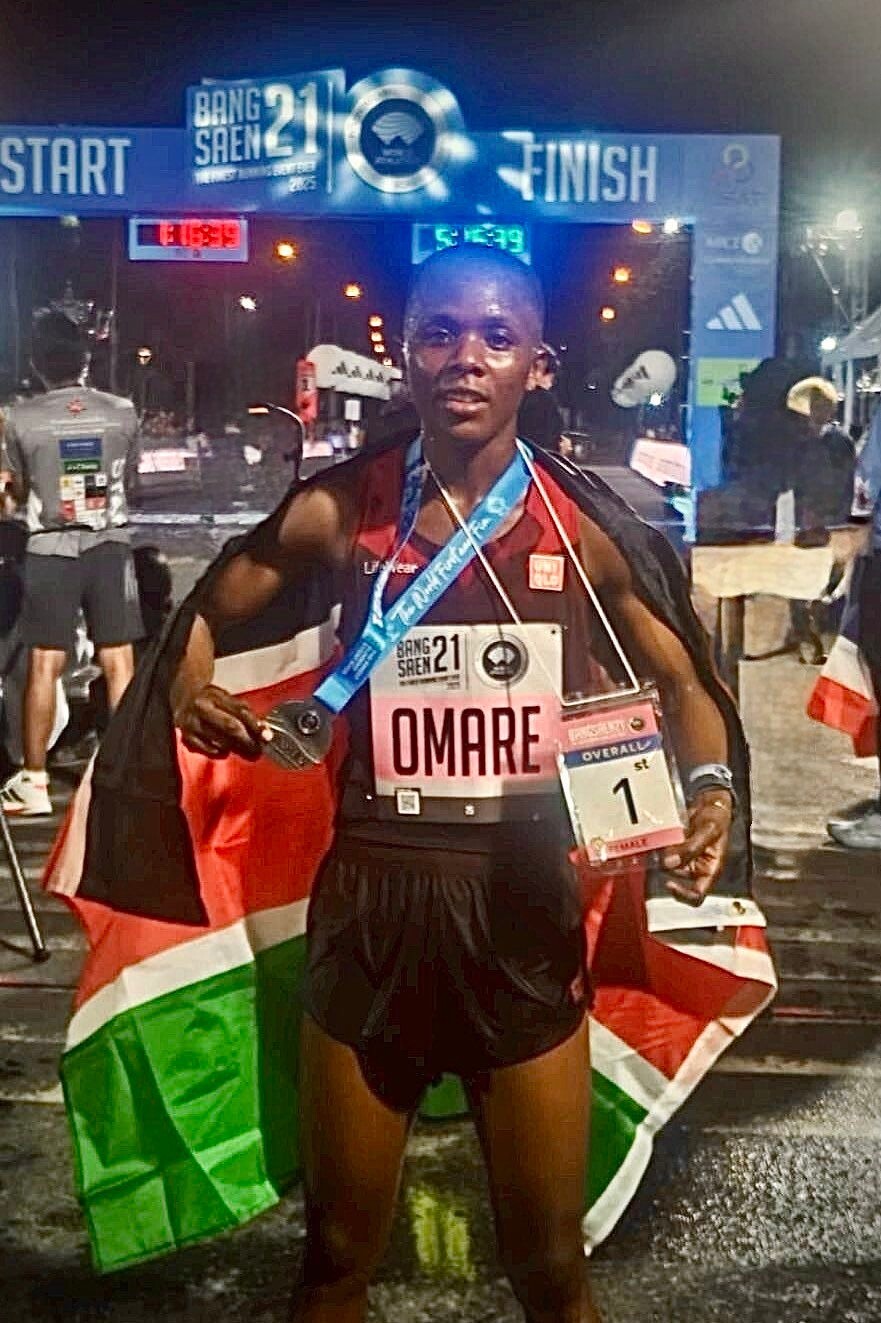
Omare’s Authority in the Women’s Race
If the men’s contest was about timing, the women’s race was about command.
From the outset, Omare took responsibility at the front, dictating a steady, uncompromising tempo. Ethiopia’s Beriha Gebreslasie and Mehret Gemeda stayed close, forming a compact trio through the middle stages as the course flattened along the coast.
The separation came quietly. Between 12 and 16 kilometres, Omare increased the pace gradually, stretching the elastic until it finally snapped. Without drama, she edged clear, maintaining form and cadence as the humidity deepened. Omare crossed the line in 1:10:14—a performance marked by calm authority and fatigue resistance.
“I’m happy to finish the year with a win,” Omare said. “This race gives me confidence. I’ll focus on next year’s road season, building step by step for the big races ahead.”
Gebreslasie finished second in 1:11:12, while Gemeda claimed third in 1:12:30, both producing resilient runs that kept the contest honest deep into the second half.
Discipline Rewarded on the Coast
Bangsaen21 once again proved to be a race that rewards restraint. The flat profile invites ambition, but the conditions punish excess. Those who conserved early and committed late emerged strongest.
For Mailu and Omare, the victories were about more than the clock—closing a demanding year with clarity, validating months of preparation, and turning the page with purpose. As the sun rose over the Gulf of Thailand and applause filled the finish area, the message was clear: the champions leave Bangsaen with momentum, eyes already fixed on 2026 and the global road calendar ahead.
Bangsaen21 2025 Results
Men
Samwel Nyamai Mailu (KEN) — 1:02:59
Teresa Nyakola (ETH) — 1:03:22
Regasa Seyoum Beharu (ETH) — 1:03:36
Gelana Teshome (ETH) — 1:04:20
Eyob Faniel (ITA) — 1:05:54
Abdi Kebede (ETH) — 1:05:55
Nattawut Innum (THA) — 1:10:10
Arthit Soda (THA) — 1:10:50
Pongsakorn Suksawat (THA) — 1:11:32
Women
Dolphine Nyaboke Omare (KEN) — 1:10:14
Beriha Gebreslasie (ETH) — 1:11:12
Mehret Gemeda (ETH) — 1:12:30
Lelise Bekele (ETH) — 1:13:49
Kalkidan Debeb (ETH) — 1:17:59
Pareeya Sonsem (THA) — 1:22:05
Ornanong Wongsorn (THA) — 1:22:14
Linda Chantachit (THA) — 1:24:13
Kawinthida Thadased (THA) — 1:25:35
Thanaporn Phatthanothai (THA) — 1:25:37
by Robert Kibet for My Best Runs
Login to leave a comment
Bangsaen 21
We woud like to invite all kind of runners from all over the world to join us in the firts an only half marathon "World Athletics Elite Label" Award in Thailand. Bangsaen 21 Half Marathon, ASIA´S best Half Marathon. A single race of Half Marathon distance, experience the most beautiful and challege course along the unique Bangsaen Beach....
more...On the Road to Osaka, Barcelona, and Boston, Chemnung Doubles Up at Bingwafest in Meru
With her eyes fixed on pacing duties at the Osaka Women’s Marathon, racing the Barcelona Marathon, and building toward the Boston Marathon, Kenya’s Loice Chemnung turned Bingwafest 2025’s Central Edition into a statement performance—completing a commanding women’s 10,000m–5,000m double Dec 20 at Kinoru Stadium In Maru, Kenya.
Barely hours apart, Chemnung treated the track not as a destination but as a finely tuned instrument—honing speed and strength for the roads ahead. The West Pokot-born runner swept both distance titles, reinforcing a season that has reshaped her career trajectory and announced her as a serious marathon contender.
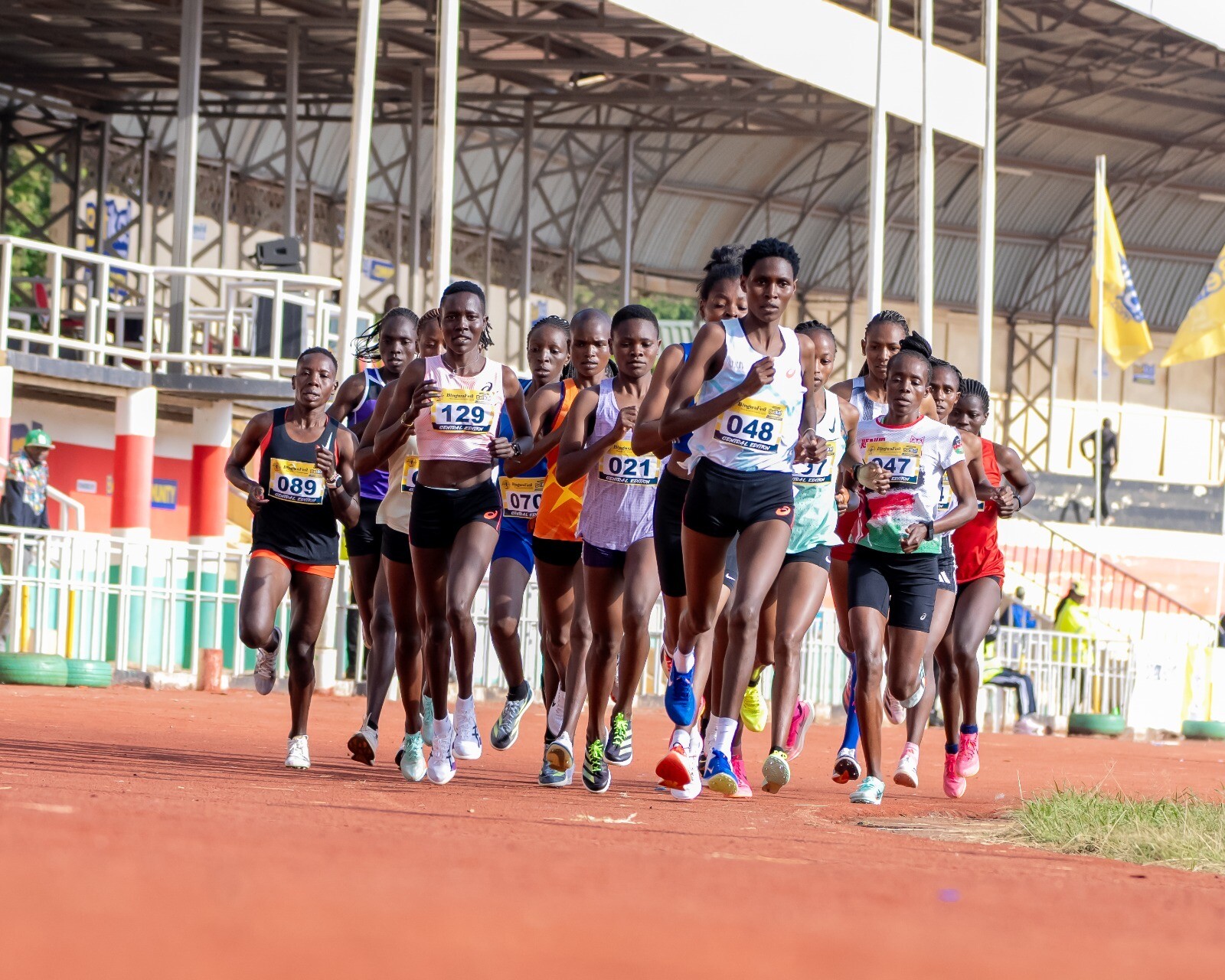
10,000m: Control, Pressure, and a Decisive Move
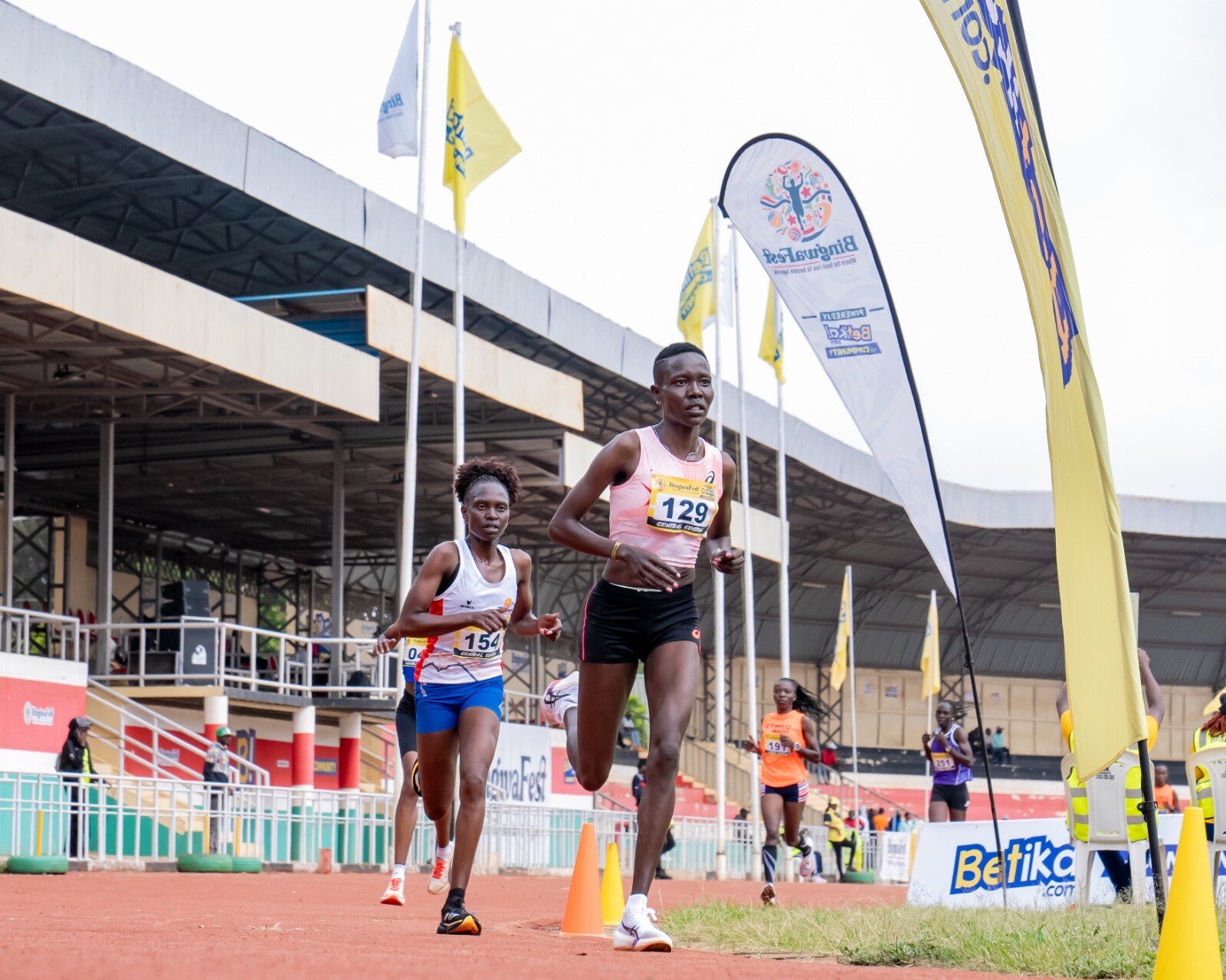
The women’s 10,000m opened the meeting with a tactical, high-quality contest. Chemnung asserted early control but faced sustained pressure from Maryam Lufti Njoki (formerly Christine Njoki). The pair exchanged the lead through the opening and middle stages, steadily stretching the field as the tempo rose.
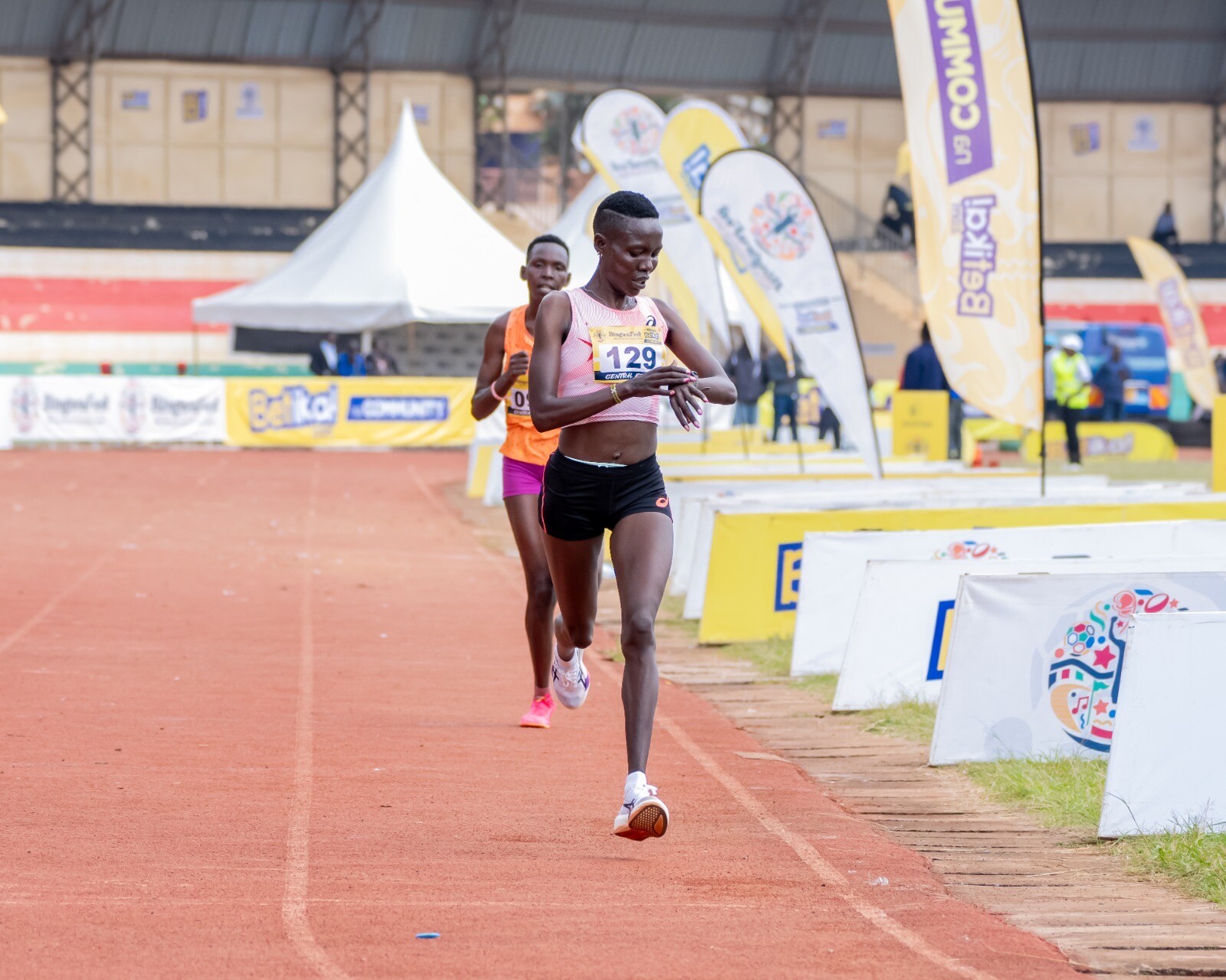
With just under three kilometres remaining, Chemnung injected a measured, relentless surge that finally broke Njoki’s resistance. She powered home unchallenged in 32:07.7, with Njoki second in 32:56.9 and Cintia Chepngeno third in 33:01.1.
Depth followed the medals. Deborah Chemutai placed fourth (33:05.1), ahead of Esther Chemtai Kipkech (33:24.3) and Jackline Rotich (34:12.9), underscoring the opener’s competitive density.
5,000m: The Encore
Hours later, Chemnung returned for the 5,000m—and the script repeated. Calm and economical, she waited before asserting herself late to claim victory again, completing a rare double at the meet. Njoki finished second once more, confirming her range, while Chepngeno secured another third—two podiums in a single day.
The double was deliberate. Bingwafest was built into Chemnung’s training, not circled for trophies.
“I had planned to run only the 10,000m, but my coach encouraged me to also try the 5,000m,” she said. “I used these races as tempo and speed training.”
After visa delays forced her to miss a planned race in Thailand, Chemnung chose to stay sharp at home.
“I chose Bingwafest as part of my speed workouts,” she explained. “Seeing my coach running around the track and pushing me to the limits really helped.”
From Track Authority to Road Ambition
That pragmatic approach mirrors a season defined by a successful transition to the roads. In October, Chemnung debuted at the Chicago Marathon—a World Athletics Platinum Label race—finishing an impressive fourth in 2:18:24, immediately elevating her profile.
Her endurance credentials are clear: a 30:44.86 track PB for 10,000m (May 2024) and a 29:57 road 10km best—numbers that explain both her closing authority at Kinoru and her confidence stepping up to the marathon.
Looking ahead, the roadmap is set: pace Osaka in January 2026, race Barcelona in February, then focus fully on Boston.
“Next season, I may not focus much on track races because my main focus will be on the marathon,” she said. “I thank God because since 2024, I feel I have been running my best.”
Roots and Motivation
Chemnung hails from Ortum village in West Pokot—the third-born in a family of nine raised by farming parents. The only runner in her family, she shares origins with Doris Lemngole, the 2025 Bowerman Award winner and University of Alabama standout. Two elite runners from the same village have become a powerful source of motivation.
“I come from West Pokot, and I am proud of Tecla Lorupe and running for a cause—to help others in my community,” Chemnung said. “Seeing what Doris has achieved also inspires me.”
At Kinoru Stadium, that inspiration translated into action: two races, two wins, and a clear message. The track is now a means, not the destination. As Chemnung sets her sights on Osaka, Barcelona, and Boston, her Bingwafest double serves as a timely reminder—Kenya’s next marathon force is sharpening her edge, one lap at a time.
Bingwafest 2025 – Women’s Results
10,000m Final
1. Lucy (Loice) Chemnung – 32:07.7
2. Maryam Lufti Njoki – 32:56.9
3. Cintia Chepngeno – 33:01.1
4. Deborah Chemutai – 33:05.1
5. Esther Chemtai Kipkech – 33:24.3
6. Jackline Rotich – 34:12.9
7. Veronica Wakuraya – 34:14.8
8. Miriam Jelagat Tamu – 34:28.1
9. Jacinta Kamau – 34:28.7
10. Melan Chepleting Misikhu – 34:29.4
5,000m Final
1. Loice Chemnung (129) – 15:22.42
2. Miriam Lutfi (021) – 15:32.73
3. Cynthia Chepngeno (144) – 15:45.34
4. Nancy Cherop (032) – 15:50.75
5. Deborah Chemutai (048) – 15:55.76
6. Esther Chemutai (212) – 16:01.87
7. Fancy Cherop (032*) – 16:05.78
8. Jackline Rotich (296) – 16:20.59
by Robert Kibet for My Best Runs
Login to leave a comment
Sorato Shimizu Sprints Into History: 16-Year-Old Clocks 10.00s to Set World Age-16 Record
Japanese sprinting phenom Sorato Shimizu has etched his name into the history books with a jaw-dropping performance at the Japanese Inter-School Championships—blazing to a 10.00-secondfinish in the 100 meters. At just 16 years old, Shimizu now owns the fastest time ever recorded by a 16-year-old, breaking the previous world best of 10.09 held by Thailand’s Puripol Boonson.
The time, achieved with a legal wind assistance of +1.7 m/s, marks a stunning personal best for the young star and sets a new World Age-16 Record. The stadium erupted as Shimizu crossed the line and confirmed the time on the scoreboard, with fans and fellow athletes celebrating what could be the beginning of a generational sprinting career.
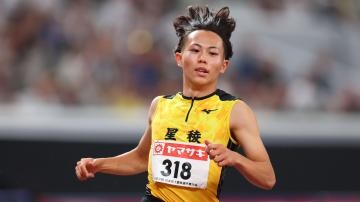
A Historic Milestone in Sprinting
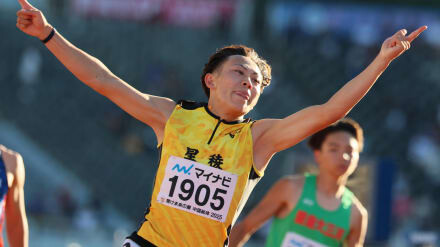
Running 10.00 seconds in the 100m is a feat few athletes achieve—even at the elite senior level. That a 16-year-old high school student has accomplished it underscores Shimizu’s immense talent and the growing strength of sprinting development in Japan.
Shimizu’s run wasn’t just about raw speed—it showcased poise, explosive acceleration, and flawless execution from start to finish. His reaction time, drive phase, and transition into top-end speed were that of a seasoned pro. It was a performance that stunned not only spectators in Japan but sprint fans across the globe.
Breaking Boonson’s Mark
Before Shimizu’s 10.00, the world age-16 best was 10.09, set by Thailand’s Puripol Boonson in 2022. Boonson has since gone on to become one of Asia’s fastest men—and Shimizu is now poised to follow a similar path, if not exceed it.
With this performance, Shimizu moves into a rarefied tier of sprinting prospects, joining a list that includes the likes of Trayvon Bromell, Erriyon Knighton, and Usain Bolt—who all produced world-class times as teenagers.
The New Face of Japanese Sprinting
Japan has long produced disciplined and technically sound sprinters, with athletes like Abdul Hakim Sani Brown, Yoshihide Kiryu, and Ryota Yamagata helping bring Japanese sprinting into the global spotlight. Sorato Shimizu now emerges as the new face of that legacy—and possibly, its next global champion.
With the Paris Olympics behind us and eyes already shifting to Los Angeles 2028, Shimizu’s name will surely be one to watch on the international scene.
What’s Next for Sorato Shimizu?
While this 10.00 clocking will take some time to fully digest, one thing is clear: Sorato Shimizu is just getting started. Still in high school, his future includes national championships, international junior meets, and, if his progression continues, a spot on Japan’s senior relay and individual sprint squads.
His breakthrough opens new possibilities for Japanese sprinting, showcasing that sub-10 is not a dream for the future—it’s a reality for the present.
Final Word
In an era where sprinting records are harder than ever to break, Sorato Shimizu just redefined what’s possible at age 16. His 10.00-second dash not only resets the record books—it ignites excitement for the future of global sprinting.
This isn’t just a time. It’s a statement.
Sorato Shimizu has arrived.
by Boris Baron
Login to leave a comment
Kenyan Runner Barnabas Kiplimo Wins Khon Kaen Marathon in 2:18:55 Wearing Carbon-Plated Sandal
Kenyan athlete Barnabas Kiplimo achieved a remarkable victory at the Khon Kaen Marathon in Thailand, completing the race in 2:18:55 while wearing innovative carbon-plated sandals.
Kiplimo's choice of footwear was the Nirun sandal, developed by Thai running brand VING. This sandal features a full-length carbon plate embedded within a proprietary foam midsole, designed to enhance cadence and provide responsiveness. The upper and midsole are both made of foam, and the sandal incorporates a foam heel strap for added security, resembling a traditional thong-style flip-flop.
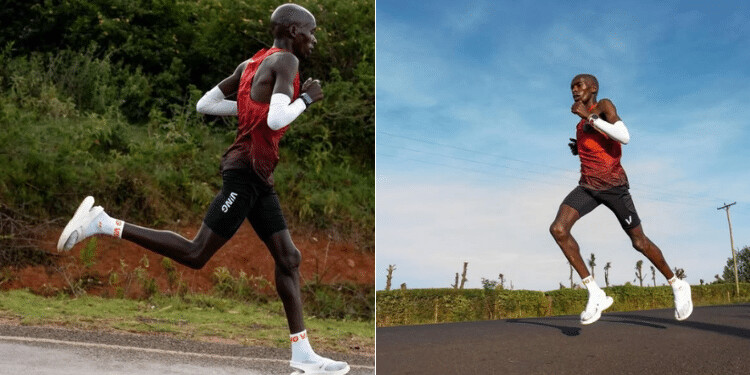
Performance and Potential
Despite initial skepticism, Kiplimo's performance in the Nirun sandals lends credibility to their design. At the Khon Kaen Marathon, he improved his previous marathon best by eight minutes, demonstrating the potential of these high-tech sandals in competitive racing.
Future Prospects
VING has initiated a product testing camp in Iten, Kenya, a renowned training hub for long-distance runners, to evaluate the durability and performance of the Nirun sandals under elite conditions. The brand plans to launch a Kickstarter project in February to bring an updated version of the sandals to market and aims to showcase the product at the 2025 Los Angeles Marathon in March.
Barnabas Kiplimo's victory in carbon-plated sandals not only highlights his personal achievement but also signals a potential shift in running footwear technology, challenging traditional perceptions and opening new avenues for innovation in the sport.
by Boris Baron
Login to leave a comment
Melak and Moseti win Bangsaen 21 Half Marathon
Ethiopia’s Nibret Melak and Kenya’s Winfridah Moraa Moseti were victorious at the Bangsaen21 Half Marathon, a World Athletics Platinum Label road race, in Chon Buri in Thailand on Sunday (15).
Racing in humid conditions, Melak outkicked Alexander Mutiso Munyao and Geoffrey Toroitich in the closing stages to win in 1:02:32, while Moseti made her break earlier in the race to triumph in 1:10:01.
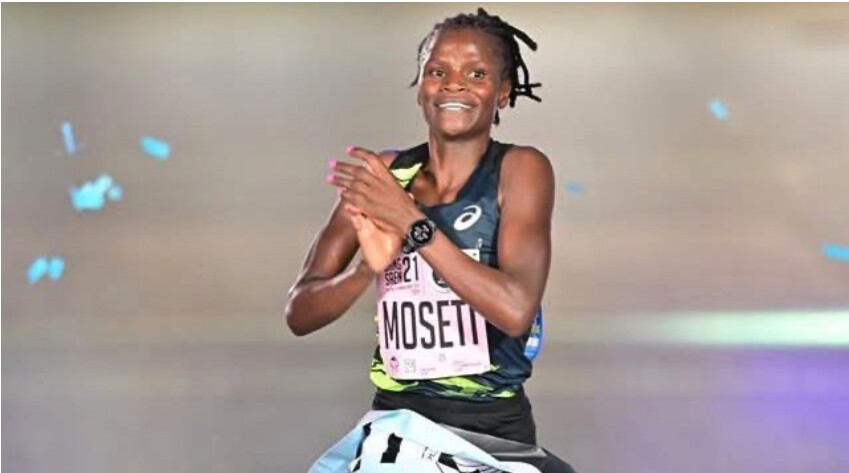
In the men’s race, eight athletes remained together as 10km was reached in 30:41, with Melak – who finished seventh in the half marathon at the World Road Running Championships last year – running towards the back of the pack. The pace picked up and the lead group was down to four by 15km, with Melak, Munyao and Toroitich joined by Leul Gebresilase as they passed that point in 45:07.
Toroitich, Melak and Munyao then made a break, with Toroitich leading the attack. The trio ran side-by-side with the finish line in sight, before Melak kicked again and created a clear gap to win by two seconds.
Kenya’s Munyao was second in 1:02:34, while his compatriot Toroitich was third in 1:02:36 and Ethiopia’s Gebresilase finished another three seconds back.
Hamburg Marathon runner-up Moseti was always among the leaders in the women’s race and was part of the group that reached 10km in 34:36, led by Kenya’s Gladys Chepkurui.Chepkurui and Moseti had Uganda’s Rebecca Chelangat and Kenya’s Rosemary Wanjiru for company at the 15km mark, reached in 50:44, but Chepkurui couldn’t maintain the pace as Moseti, Chelangat and Wanjiru made a break.
Moseti was clearly waiting for her moment to strike and she made a winning move, creating a gap on her rivals that would grow to 33 seconds by the finish line. She won in 1:10:01 ahead of Chelangat in 1:10:34, Wanjiru in 1:10:53 and Chepkurui in 1:11:11.
by World Athletics
Login to leave a comment
Bangsaen 21
We woud like to invite all kind of runners from all over the world to join us in the firts an only half marathon "World Athletics Elite Label" Award in Thailand. Bangsaen 21 Half Marathon, ASIA´S best Half Marathon. A single race of Half Marathon distance, experience the most beautiful and challege course along the unique Bangsaen Beach....
more...London marathon champion eyes season-ending glory in Thailand
The 2024 London Marathon champion Alexander Munyao is hoping to cap off his season with an emphatic victory as he takes on the Bangsaen Half Marathon in Thai- land this Sunday.
After a mixed year on the global stage, Munyao is determined to secure victory and build momentum for a demanding 2025 season.
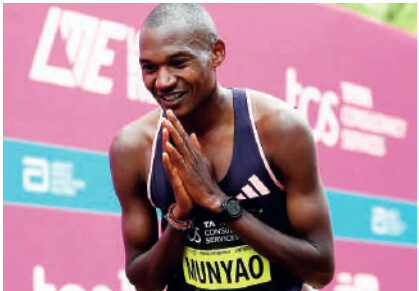
“I am targeting a win in Thailand to close my season on a high note. This will motivate me for the busy 2025 calendar,” Munyao said.
For the 28-year-old, success in Thailand would provide a much-needed confidence boost, especially after finishing a disappointing 21st at the Paris Olympics with a time of 2:10:31.
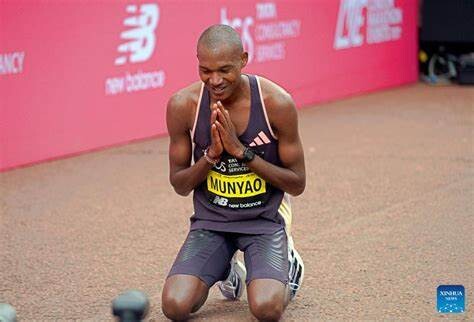
However, Munyao remains wary of the tropical heat that awaits in Thailand, acknowledging it as a critical factor in his race strategy.
“The heat will be a big challenge on race day, with temperatures ranging from 23 to 30 degrees. I am not focused on clocking a fast time, as my goal is purely to win,” he emphasized.
Munyao admits his preparations for the race have been less than ideal, citing limited training time after competing in Japan’s 12 NIT- TAIDAI Challenge Games, where he clocked a 27:42.04 for a runner-up finish in the 10,000m in October.
“My training has been average since I competed in Japan. But I believe the work I have put in will suffice. I will do some light training before Sunday’s race,” he said.
Despite his confidence, he is mindful of the formidable competition.
“I expect tough opposition—it won’t be an easy race. But I’m confident I can pull off a win,” he said.
Munyao carries an impressive half-marathon record into the race, including victories at the 2020 Santa Pola Half Marathon ( 59:09 ) and the 2023 Kagawa Half Marathon ( 59:17 ).
He holds runners-up finishes at the 2020 Ras Al Khaimah ( 59:16 ) and 2021 Adizero Road to Records ( 59:20 ) Half Marathons.
In the women’s race, a titanic battle looms as 2023 Tokyo Marathon champion Rosemary Wanjiru faces off against Ethiopia’s Tigst Assefa, the 2024 Olympic marathon silver medalist.
The two are no strangers to each other’s tactics having clashed at the 2022 Berlin Marathon, where Assefa stormed to victory in a course record of 2:15:37, leaving Wanjiru in second with 2:18:00.
Wanjiru’s road credentials are stellar, highlighted by her 2023 Tokyo Marathon triumph in 2:16:28 and a runner-up finish in 2024, clocking 2:16:14 behind Ethiopia’s Sutume Kebede ( 2:15:55 ).
Meanwhile, Assefa holds back-to-back victories in the Berlin Marathon 2022 ( 2:15:37 ) and 2023 ( 2:11:53 ), as well as runners-up finish at the 2024 London Marathon ( 2:16:23 ).
Joining the fray, is the 2023 Tokyo Legacy Half Marathon champion Gladys Chepkurui, add- ing depth to a star-studded field.
by Teddy Mulei
Login to leave a comment
Bangsaen 21
We woud like to invite all kind of runners from all over the world to join us in the firts an only half marathon "World Athletics Elite Label" Award in Thailand. Bangsaen 21 Half Marathon, ASIA´S best Half Marathon. A single race of Half Marathon distance, experience the most beautiful and challege course along the unique Bangsaen Beach....
more...World half marathon champion Sabastian Sawe to lead Kenyan quartet against star-studded Ethiopian lineup at Valencia Marathon
The debuting quartet of Sebastian Sawe, Daniel Mateiko, Mathew Kimeli, and Hillary Kipkoech will attempt to challenge the Ethiopian dominance at the Valencia Marathon
The Kenyan athletics scene will once again be in the spotlight as four formidable runners Sebastian Sawe, Daniel Mateiko, Mathew Kimeli, and Hillary Kipkoech gear up to challenge Ethiopia's dominance at the Valencia Marathon on December 1.
Each member of this Kenyan quartet has established themselves as a powerhouse in road running and half marathons, promising an electrifying race against a star-studded Ethiopian lineup.
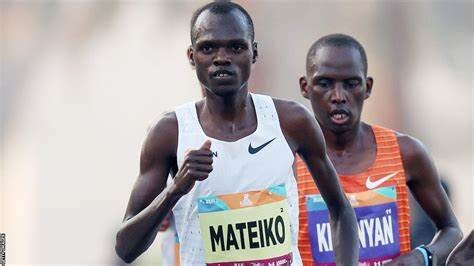
Leading the charge for the Kenyan team is Sebastian Sawe, the reigning World Road Running champion.
Sawe has completed all nine of his half marathons under the coveted 60-minute mark, boasting a personal best (PB) of 58:02.
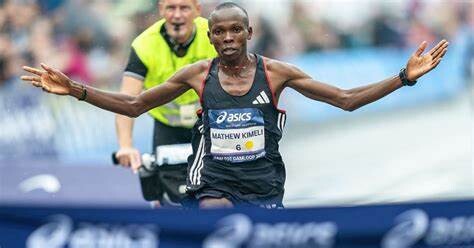
Close on his heels is Mateiko, another consistent performer who has clocked sub-59-minute times on seven occasions, making him one of the most reliable half-marathoners in the world.
Kipkoech, who holds a PB of 59:22, enters the marathon as a serious contender after previously pacing Ethiopian course record holder Sisay Lemma in 2023.
Kimeli who triumphed at the 2023 Bangsaen21 Half Marathon in Thailand with a time of 1:03:39, adds another layer of depth to Kenya’s challenge.
The Kenyan quartet will face stiff competition from a stellar Ethiopian team led by Sisay Lemma, the Valencia Marathon course record holder.
Lemma’s breathtaking 2:01:48, set last year, ranks as the sixth-fastest marathon time in history.
Following his Valencia triumph, Lemma claimed the Boston Marathon title earlier this year with a time of 2:06:17.
Joining Lemma is Ethiopian legend Kenenisa Bekele, whose PB of 2:01:41 makes him the fastest man in the field.
Bekele, a three-time Olympic gold medalist and five-time world champion, continues to be a force at the marathon distance, ranking third on the all-time list.
The Ethiopian roster further includes two-time Tokyo Marathon champion Birhanu Legese, winner of the 2021 Berlin Marathon Guye Adola and Olympian Deresa Geleta who placed fifth at the 2024 Paris Olympics.
by Stephen Awino
Login to leave a comment
VALENCIA TRINIDAD ALFONSO
The Trinidad Alfonso EDP Valencia Marathon is held annually in the historic city of Valencia which, with its entirely flat circuit and perfect November temperature, averaging between 12-17 degrees, represents the ideal setting for hosting such a long-distance sporting challenge. This, coupled with the most incomparable of settings, makes the Valencia Marathon, Valencia, one of the most important events in...
more...Rebecca Cheptegei, died from full organ failure
Rebecca Cheptegei, died from full organ failure following a horrific attack by a former boyfriend on Sunday, which left her with burns covering 75 per cent of her body.
Rebecca Cheptegei, an Olympic marathoner for Uganda who competed in the 2024 Paris Olympics, tragically passed away on Thursday morning after reportedly being set on fire by her former boyfriend in Kenya. She was 33.
According to the Kenyan newspaper Nation, Owen Menach, the Director of Clinical Services and Surgery at Moi Teaching and Referral Hospital (MTRH) in Eldoret, confirmed that Cheptegei died around 5 a.m. local time due to “full organ failure.” This followed a horrific attack by her boyfriend at her home in Kenya on Sunday, which left her with burns covering 75 per cent of her body. She was admitted to the hospital in critical condition.
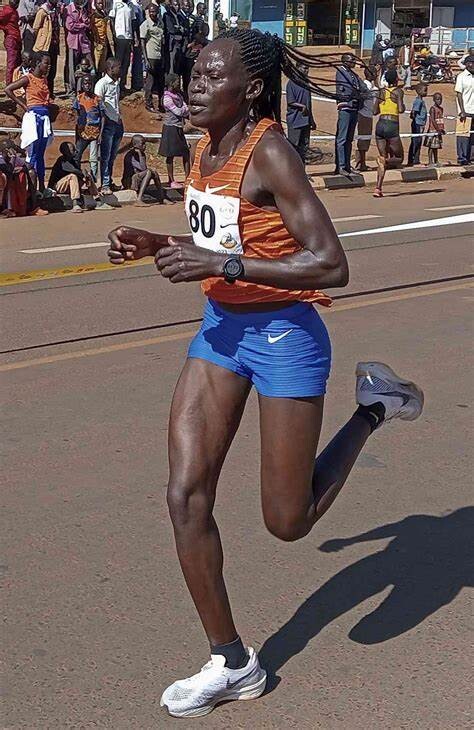
The alleged attacker, Dickson Ndiema Marangach, was also injured by the flames and is currently hospitalized. Neighbors reportedly overheard the couple arguing outside the house shortly before the attack. Both Cheptegei and Marangach were rescued from the fire by neighbors.
The Uganda Athletics Federation led tributes to Cheptegei on X (formerly Twitter), posting: “We are deeply saddened to announce the passing of our athlete, Rebecca Cheptegei, who tragically fell victim to domestic violence early this morning. As a federation, we condemn such acts and call for justice. May her soul rest in peace.”
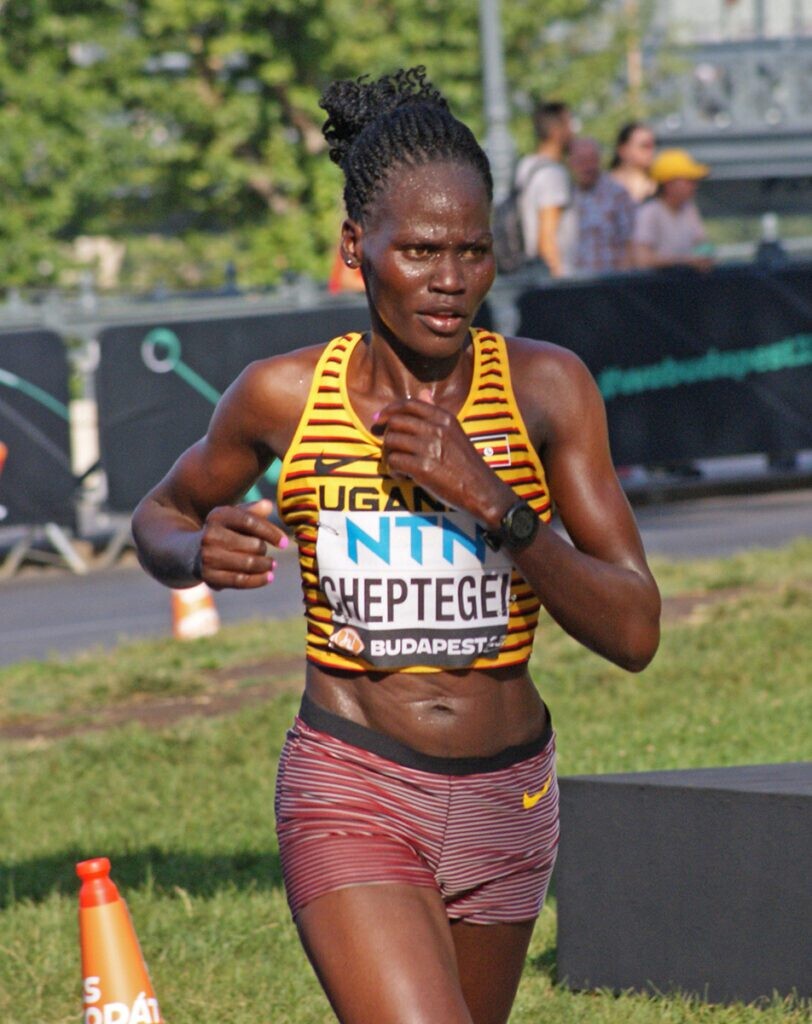
Cheptegei finished 44th in the marathon at the 2024 Paris Olympics in August and previously won gold at the World Mountain and Trail Running Championships in Chiang Mai, Thailand, in 2022. She had a marathon best of 2:22:47.
Tragically, this is not the first instance of domestic violence involving elite female athletes in East Africa. In 2021, Kenya’s two-time 10,000m world championship bronze medalist, Agnes Tirop, was found stabbed to death by her husband at their home in Iten, Kenya. Tirop’s husband, Emmanuel Ibrahim Kipleting, was arrested after fleeing Iten and found hundreds of kilometers away. She was 25 at the time of her death.
by Marley Dickinson
Login to leave a comment
Eisa runs championship record to retain world U20 5000m title in Lima
On a cool, crisp evening in the Peruvian capital on Tuesday (27), Ethiopia’s Medina Eisa turned up the heat on her rivals to successfully defend her 5000m title, the highlight of the first day of action at the World Athletics U20 Championships Lima 24.
Eisa’s winning time of 14:39.71 carved more than 28 seconds off the championship record set by Genzebe Dibaba, which had stood since 2010, and brought her home well clear of her compatriot Mekedes Alemeshete. The two broke away from the field from the outset and alternated pace-setting duties, passing 2000m in 5:58.59 with a 40-meter lead.
By 3000m, reached in 8:57.28, they’d built a 70-meter lead and from there it only extended, with Eisa breaking clear of her compatriot with three and a half laps to run and lapping most of the field to hand women’s 5000m gold to Ethiopia for the eighth time in the last nine editions.
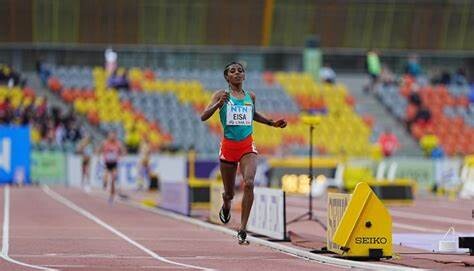
“I'm very happy with this win and to achieve a championship record after the Olympics,” said Eisa, who finished seventh in the 5000m in Paris. “I wanted to be a champion, I have wanted this for months.”
Alemeshete followed her home in 14:57.44, with Uganda’s Charity Cherop getting bronze in a PB of 15:25.02.
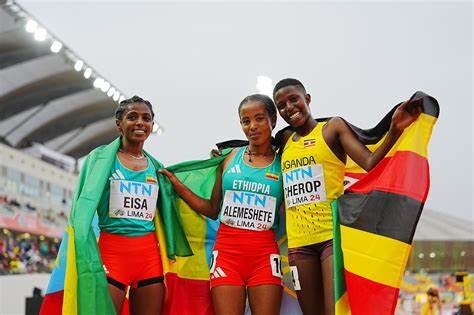
The men’s 5000m proved a very different race, with some early moves proving inconsequential and the final boiling down to a sprint finish, with seven clustered together at the bell. As the contenders hit full speed on the final turn it was Kenya’s Andrew Kiptoo Alamisi who soon took flight like a bird, soaring to victory in 13:41.14 ahead of Ethiopia’s Abdisa Fayisa (13:41.56) and Uganda’s Keneth Kiprop (13:41.73).
Australia reigned supreme in the mixed 4x400m final, their quartet of Jordan Gilbert, Bella Pasquali, Jack Deguara and Sophia Gregorevic controlling the race and hitting the line comfortably in front in an Oceanian record of 3:19.27. Poland claimed silver in 3:20.44 with China coming through strongly for bronze in 3:21.27 courtesy of a big final leg from Liu Yinglan.
In the men’s shot put, it was no surprise to see gold go to the Netherlands for the first time in 24 years, but it wasn’t the thrower many were expecting, with Dutch U20 record-holder Yannick Rolvink – who topped the entry lists by more than a metre – finishing fifth with 19.88m.
It was his teammate, Jarno van Daalen, who shone brightest, the 18-year-old adding 36cm to his lifetime best with his opening round effort of 20.76m. That was a mark no one else could match in the subsequent rounds, though South Africa’s JL van Rensburg came close, launching a PB of 20.74m in the final round for silver. Germany’s Georg Harpf took bronze with 20.28m.
With four events completed in the heptathlon, Croatia’s Jana Koscak tops the standings with 3536 points, the 2022 European U18 champion adding to her 13.80 hurdles performance and 1.81m high jump earlier in the day with a 12.01m shot put and 25.12 200m in the afternoon session.
Second overnight is Switzerland’s Lucia Acklin, who rocketed up the standings during the latter part of the day after throwing 13.42m in the shot put and clocking a PB of 24.42 in the 200m. That leaves her on 3472 points. Australia’s Mia Scerri sits third with 3385, closely followed by Czechia’s Adela Tkacova who is fourth with 3351, aided by her season’s best of 24.14 in the 200m.
"It's been a long day, but I'm happy," said Koscak. "I ran a solid 200m, a good high jump, but the hurdles and shot put could have been a little better. It's been a long process because I've been travelling a lot, with climate changes, times zones. This is the World Championships so I'm not going to complain."
In the women’s 100m semifinals, Jamaica’s Alana Reid was highly impressive when winning in 11.44 (-0.3m/s), easing off the gas far from the line to beat Nigeria’s Justina Tiana Eyakpobeyan (11.56) and Aleksandra Stoilova of Australia (11.58), who also advanced. Kishawna Niles of Barbados and Britain’s Nia Wedderburn-Goodison were the quickest qualifiers, both clocking 11.39 in the first semifinal ahead of South Africa’s Viwe Jingqi (11.49). Germany’s Chelsea Kadiri won the third semifinal in 11.52 ahead of Adaejah Hodge of the British Virgin Islands (11.59).
Thailand’s Puripol Bonsoon, who finished fourth in this event two years ago, was the quickest qualifier for the men’s 100m final, clocking 10.30 (-0.6m/s) in the semifinals to edge South Africa’s Bradley Nkoana by one thousandth of a second. Jamaica’s Gary Card qualified in third with 10.39.
Deandre Daley of Jamaica powered to victory in the first semifinal in 10.34 (-0.9m/s) with Japan’s Naoki Nishioka taking the second automatic spot in 10.43. South Africa’s Bayanda Walaza recovered from an early stumble to win the third semifinal in 10.33 (-0.2m/s) ahead of Britain’s Teddy Wilson (10.35) and China’s He Jinxian (10.36), who also advanced.
China’s Wang Xiaobo led the way in men’s javelin qualification, launching 73.83m with Slovenia’s Tom Tersek next best with 73.37m ahead of Germany’s Oskar Janicke (73.02m). Ukraine’s Illia Saievskyi was the only other thrower to surpass the 72.50m automatic qualification mark.
In women's pole vault qualification, the automatic qualifying mark of 4.25m wasn't necessary and four athletes cleared 4.10m with faultless performances. One vault was all it took for USA's Molly Haywood to make the final as she entered at 4.10m and cleared that first time. She'll be joined by athletes including Estonia's Miia Tillmann, Australia's Tryphena Hewett and Austria's Magdalena Rauter.
The women’s 3000m steeplechase heats saw a dominant performance from race favourite Sembo Almayew who coasted to victory in 9:30.59 ahead of Kenya’s Diana Chepkemoi and Uganda’s Nancy Chepkwurui (9:49.06). Ethiopia’s Firehiwot Gesese eased to victory in the other heat in 10:00.96 ahead of Uganda’s Loice Chekwemoi (10:01.85) and Kenya’s Sharon Chepkemoi (10:07.59).
by Cathal Dennehy for World Athletics
Login to leave a comment
Gotytom Gebreslase hopes to break Nahoya course record
In advance of the highly anticipated race scheduled for this Sunday, March 10, 2024, the Nagoya Women’s Marathon held a pre-race press conference for the invited elite athletes today in Nagoya, Japan.
Gotytom Gebreslase (ETH), 2022 Oregon World Champion and 2023 Budapest World Championships silver medalist said, “My goal for Sunday is to run under two hours 18 minutes, and if the weather and pacemakers are good, I will try to break the course record of 2:17:18.” Her competitor Eunice Chebichii Chumba of Bahrain, 2023 Asian Games Champion said, “My preparation has been going well, and my focus will be to improve my personal best of 2:20:02.”
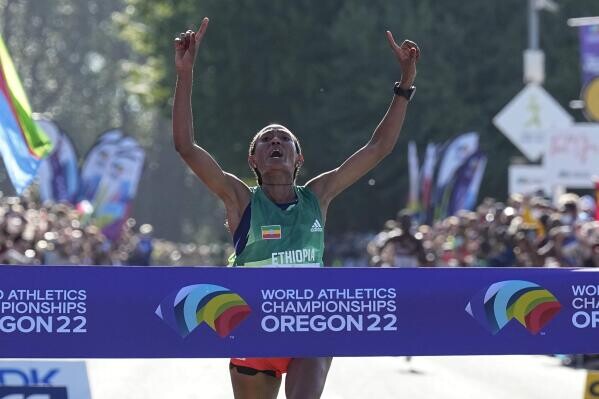
For Japanese athletes, the Nagoya Women’s Marathon 2024 will be the last chance to win a place in the Paris Olympics team by beating the new national record of 2:18:59 just set by Honami Maeda this January.
The 2020 Tokyo Olympians Ayuko Suzuki will aim to break the target of 2:18:59 so she can compete in the Olympics again to show what she really can do, adding that she was ready to turn the support of the local spectators of her hometown Aichi into strength. Sharing the same goal with Ayuko, Rika Kaseda commented that she had prepared for a high-speed race and would challenge herself to keep up with the pace of other fast athletes to grab the last ticket for Paris 2024.
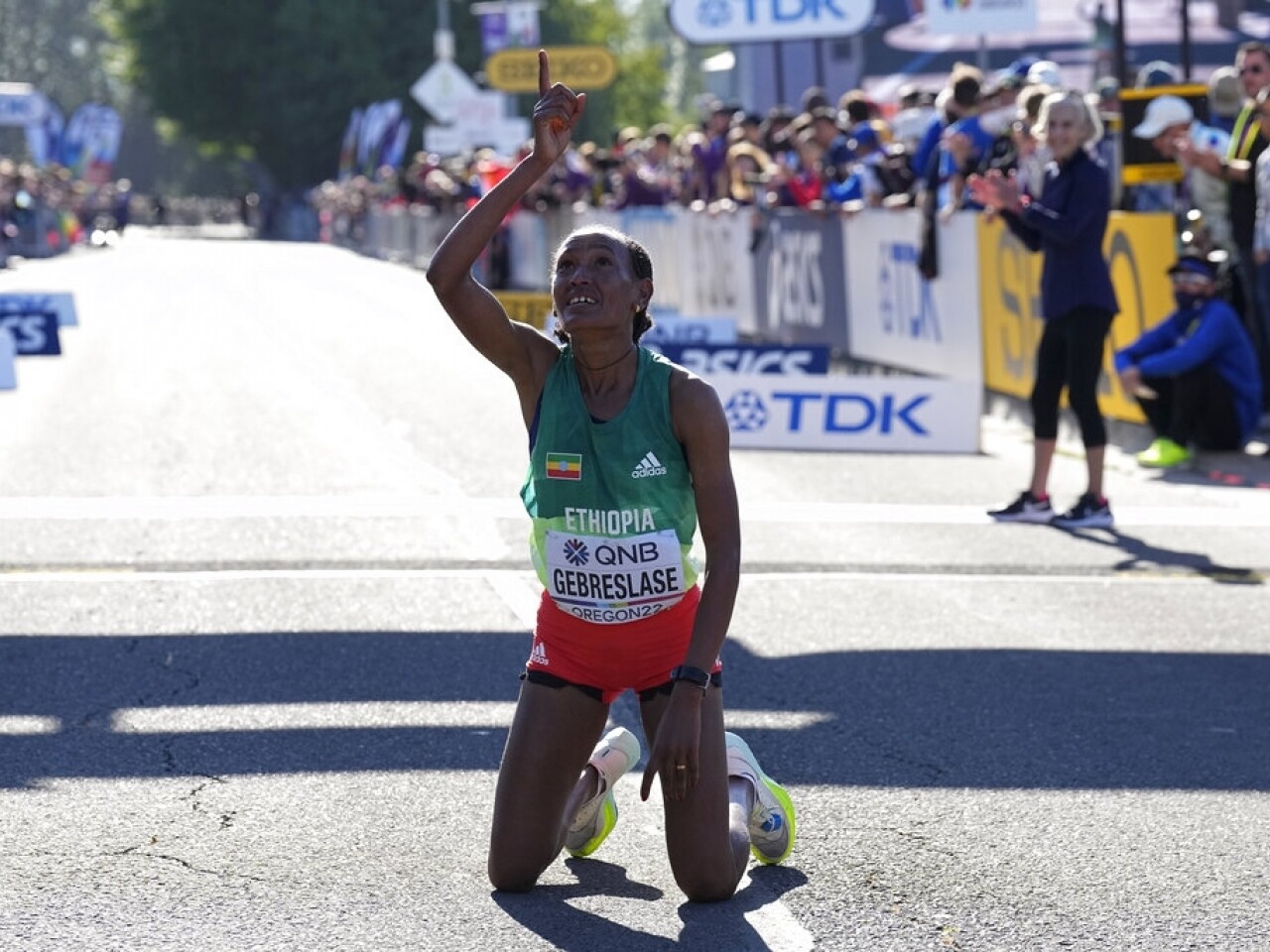
In addition to these top elite athletes, many recreational runners will join the Nagoya Women’s Marathon 2024 from home and abroad, making it an exciting race with 18,000 participants. All finishers will be presented with an event’s exclusively designed Tiffany & Co. pendant and a New Balance T-shirt as the finisher prize.
Sunday’s race will be streamed live free of charge to 37 countries and regions (Argentina, Australia, Bahrain, Brazil, Brunei, Cambodia, Chile, Colombia, Egypt, Ethiopia, France, Germany, Hong Kong, Indonesia, Israel, Italy, Kenya, Macau, Malaysia, Mexico, Monaco, Myanmar, Namibia, Netherlands, New Zealand, Papua New Guinea, Philippines, Puerto Rico, Romania, Singapore, South Africa, South Korea, Spain, Taiwan, Thailand, United Kingdom, and United States of America) on the race’s official website at https://womens-marathon.nagoya/en/broadcast.php. Stay tuned for the race to start at 9:10 a.m. on Sunday, March 10, 2024, Japan time.
by AIMS
Login to leave a comment
Nagoya Women's Marathon
The Nagoya Women's Marathon named Nagoya International Women's Marathon until the 2010 race, is an annual marathon race for female runners over the classic distance of 42 km and 195 metres, held in Nagoya, Japan in early March every year. It holds IAAF Gold Label road race status. It began in 1980 as an annual 20-kilometre road race held in...
more...Sarah Chepchirchir slapped with an eight-year ban by AIU
39-year-old runner Sarah Chepchirchir has been slapped with an eight-year ban for violating the anti-doping rules for the second time following her first ban which happened from 2019 to 2023.
The Athletics Integrity Unit has slapped Sarah Chepchirchir of Kenya with an eight-year ban for violating an anti-doping rule.
Chepchirchir was banned for the Presence/Use of a Prohibited Substance (Testosterone) and her results from November 5, 2023have been disqualified.
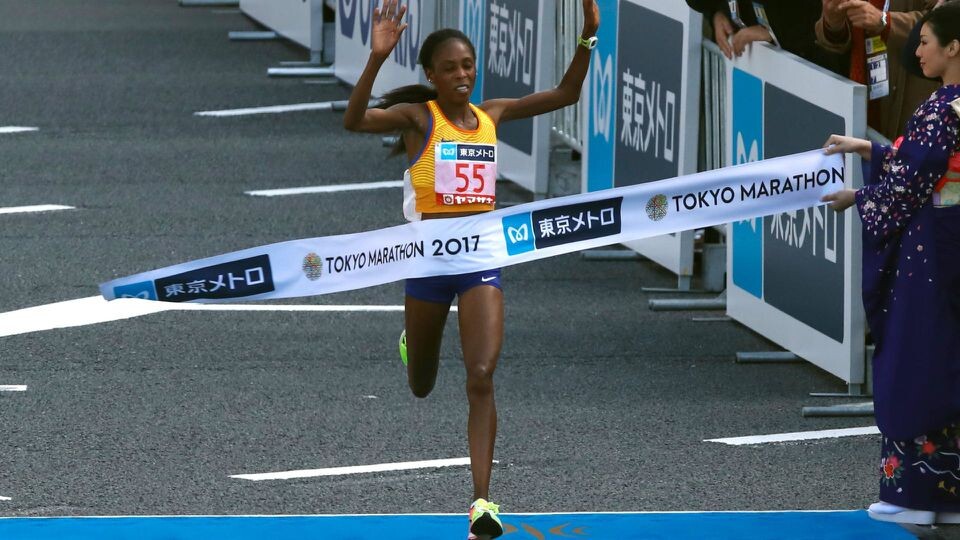
The AIU reported that the 39-year-old runner provided a urine sample on November 5, 2023, after competing at the Bangsaen42 Chonburi Marathon in Chonburi, Thailand.
An analysis of the sample by the World Anti-Doping Agency (“WADA”) accredited laboratory in Bangkok, Thailand (the “Laboratory”), revealed the presence of Metabolites of Testosterone consistent with exogenous origin (the “Adverse Analytical Finding”).
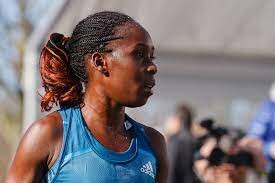
As per the AIU, testosterone is a Prohibited Substance under the WADA 2023 Prohibited List under the category S1.1 Anabolic Androgenic Steroids. It is a Non-Specified Substance prohibited at all times.
Meanwhile, the AIU further noted that the Chepchirchir previously served a period of Ineligibility of four (4) years from February 6, 2019 to February 5, 2023 for an Anti-Doping Rule Violation under Article 2.2 of the 2018 IAAF Rules (equivalent to Rule 2.2 of the Rules) (Use of a Prohibited Substance or a Prohibited Method) based on abnormal values in the hematological module of her Athlete Biological Passport.
“A period of Ineligibility of eight (8) years commencing on December 22, 2023, until December 21, 2031, and disqualification of the Athlete’s results on and since November 5, 2023, with all resulting consequences, including the forfeiture of any titles, awards, medals, points prize, and appearance money.
“The Athlete is deemed to have accepted the above Consequences and to have waived her right to have those Consequences determined by the Disciplinary Tribunal at a hearing,” the AIU said regarding her punishment.
by Abigael Wuafula
Login to leave a comment
Kenyan Athletes Shine Bright at Bangsaen21 Half Marathon in Thailand
The Bangsaen21 Half Marathon, a prestigious World Athletics Platinum Label road race hosted in Chonburi, Thailand, witnessed an exhilarating showcase of Kenyan excellence as Gladys Chepkurui and Mathew Kimeli triumphed in their respective categories under demanding weather conditions.
Chepkurui seized victory in the women’s division, displaying remarkable strength as she completed the race in 1:09:46. Her outstanding performance placed her comfortably 17 seconds ahead of her compatriot, Sheila Chepkirui, securing a standout one-two finish for Kenya. Meanwhile, in a fiercely contested men’s race, Kimeli held off Ethiopia’s Tsegaye Getachew, crossing the finish line in 1:03:39, a mere six seconds ahead of Getachew’s 1:03:45.
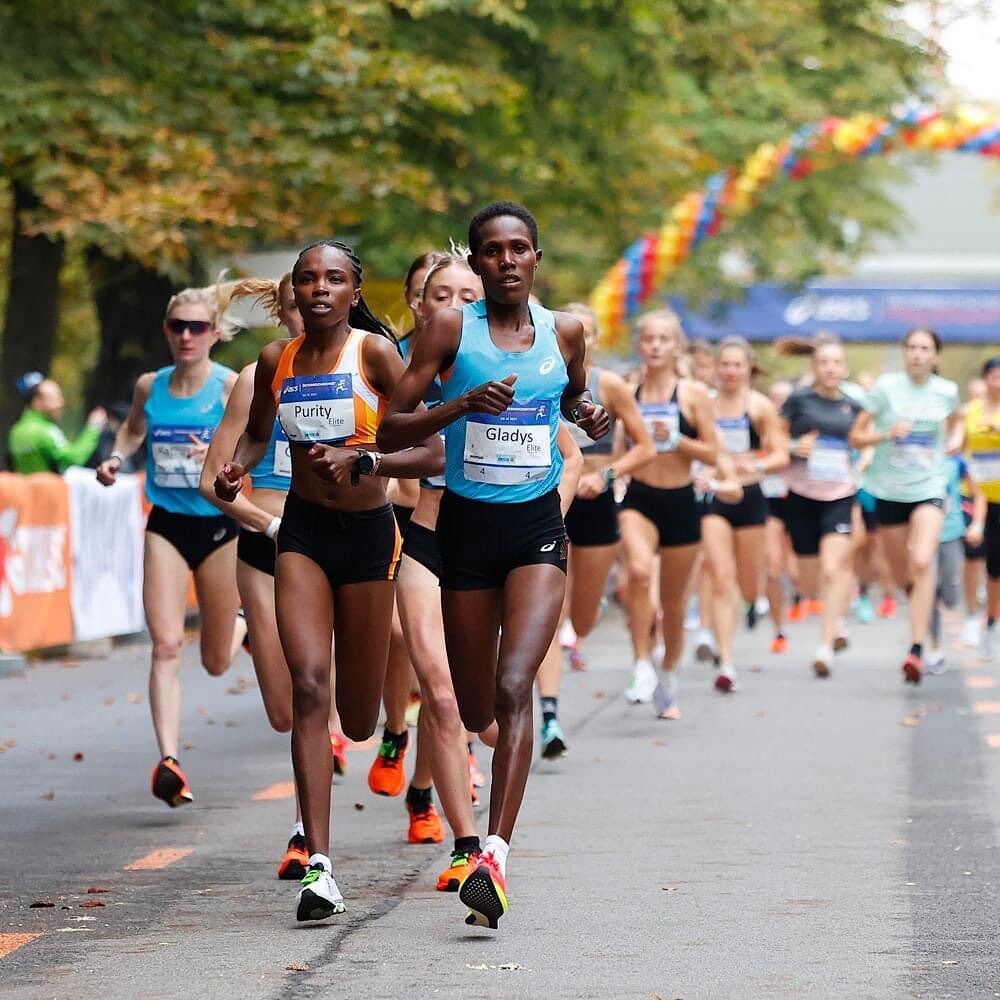
The race kicked off with Chepkirui, the Berlin Marathon runner-up, and 2019 world marathon champion Ruth Chepngetich setting a rapid pace in the early stages. This dynamic duo led the pack, establishing a significant 14-second lead over Chepkurui and Angela Tanui at the 5km mark, reached in 15:39.
Undeterred by the initial gap, Chepkurui showcased unwavering determination, steadily gaining ground on her competitors. Surging past Chepngetich, she then overtook Chepkirui, seizing the lead at the 15km mark with a time of 49:13. Chepkirui couldn’t match Chepkurui’s pace, resulting in a 17-second difference at the finish line, where Chepkurui claimed victory in 1:09:46. Angela Tanui secured third place in 1:11:08, with Chepngetich finishing fourth in 1:11:51.
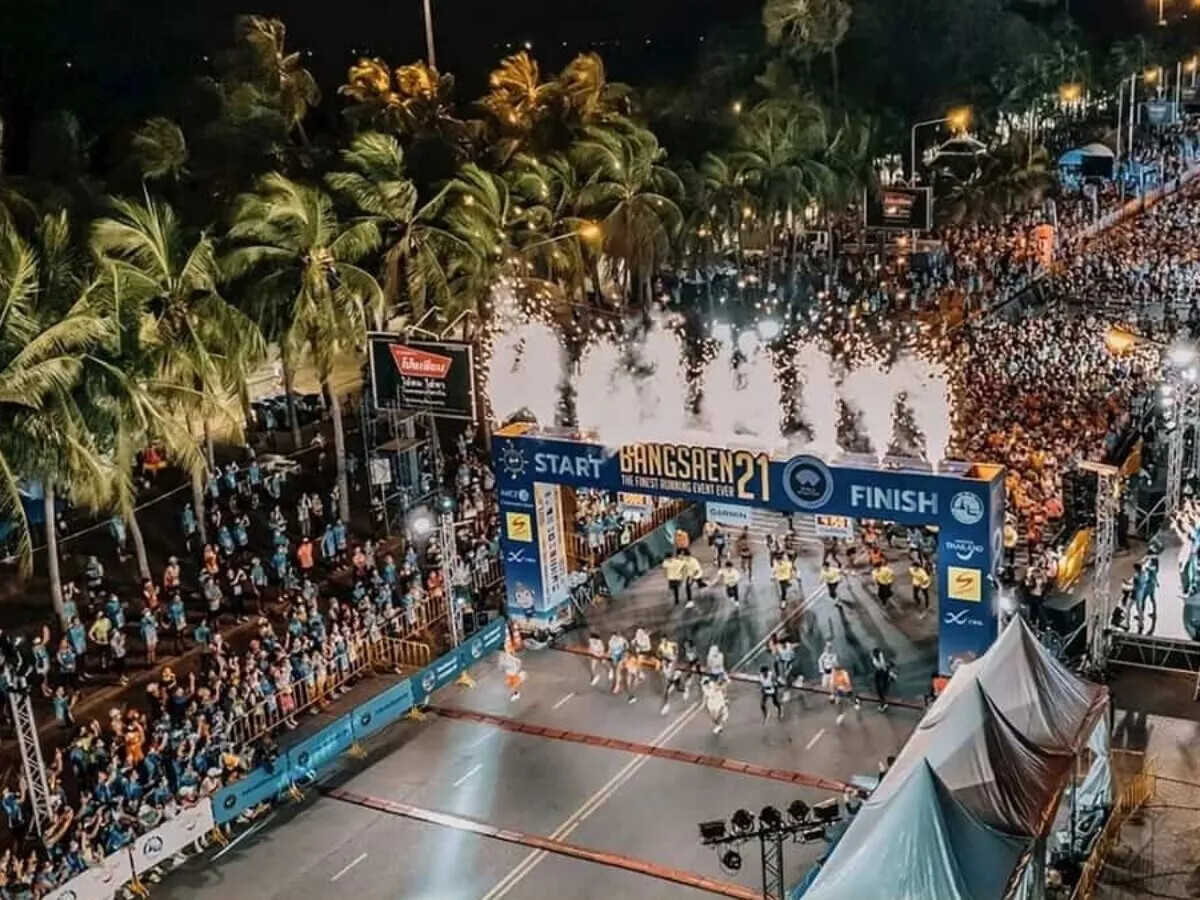
In the men’s event, Kimeli demonstrated incredible resilience in a fiercely competitive field. Initially part of an eight-runner pack that clocked 5km in 15:27 and 10km in 31:01, Kimeli faced a surge from Getachew after the 15km mark. However, Kimeli dug deep and eventually led a trio of runners towards the finish line.
In a thrilling final kilometer, Kimeli surged ahead of Getachew, securing victory in 1:03:39, a narrow six-second lead over the Ethiopian. Amos Kipruto, last year’s London Marathon champion, clinched third place in 1:03:52, while Kenya’s Nobert Kipkoech Kigen finished fourth with a time of 1:04:35.
The Bangsaen21 Half Marathon highlighted the extraordinary talent and determination of Kenyan athletes, showcasing their dominance and resilience on the international racing stage.
by Runners tribe
Login to leave a comment
Bangsaen 21
We woud like to invite all kind of runners from all over the world to join us in the firts an only half marathon "World Athletics Elite Label" Award in Thailand. Bangsaen 21 Half Marathon, ASIA´S best Half Marathon. A single race of Half Marathon distance, experience the most beautiful and challege course along the unique Bangsaen Beach....
more...The Kaua‘i Marathon takes off on Sept. 3
The Kaua‘i Marathon and Half Marathon is back on Sept. 3, and deadline for online registration at www.thekauaimarathon.com is 11:59 p.m. on Aug. 30.
“This 14th Kaua‘i Marathon world-class event provides the perfect three-day adventure for residents and visitors to experience Kaua‘i’s aloha spirit,” said Jeff Sacchini, the Kaua‘i Marathon founder.
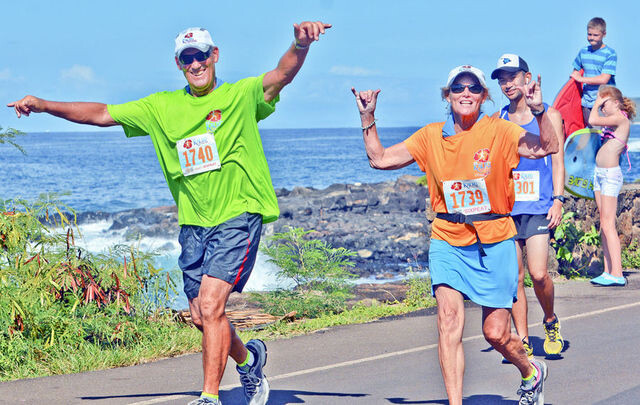
“Between the hundreds of volunteers who assist with race day duties to the Hawaiian blessing, Polynesian entertainment and cultural experiences along the course, The Kaua‘i Marathon and Half Marathon is a destination race to remember.”
The experience starts with the Wilcox Health Sports and Fitness Expo at the Grand Hyatt Kaua‘i Resort &Spa in Po‘ipu, where marathon participants pick up their race packets from 10 a.m. to 6 p.m. ahead of the Sunday run.
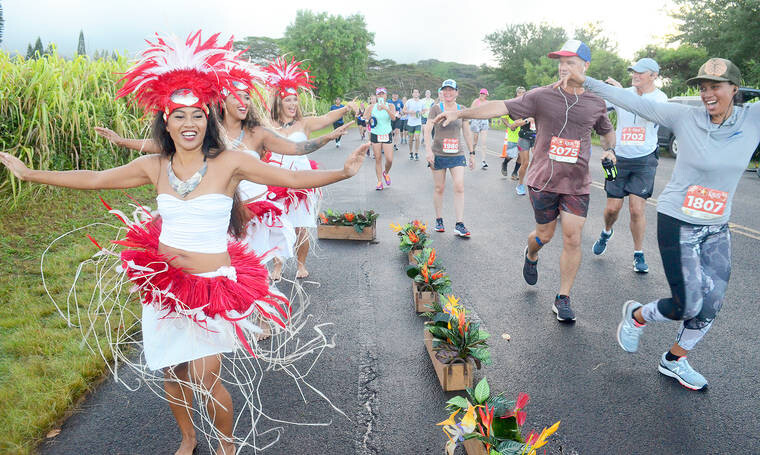
A sponsor reception rounds out Friday. The expo continues on Saturday from 9 a.m. to 4 p.m. with a Keiki Run starting at 9 a.m., and Family Fun Run chasing a very fast 6-foot chicken. The main races start Sunday morning at 6 a.m. at the front of Po‘ipu Shopping Village.
Traffic advisories, including various road closures, can be found in detail on the Kaua‘i Marathon website at www.kauaimarathon.com.
“We have some distinguished participants for this year’s marathon,” said Robin Jumper, the Kaua‘i event coordinator for The Kaua‘i Marathon. “Michael Wardian, a past champion and ultra runner from Delaware, will be doing the full marathon, and Tyler McCandless, a past champion and the spokesperson for the Kaua‘i Marathon Youth Running Program, will be doing the half marathon.”
Additionally, as COVID-19 conditions improve, at least two runners from Japan will be among this year’s Kaua‘i Marathon field.
Shinya Ohashi, who finished first in the 2018 version of the Kaua‘i Marathon with a run that stopped the clocks at 2 hours, 23 minutes, and 33 seconds, is from Ishinomaki City, Miyagi Prefecture, Japan. He was the male winner of the Iwaki Sunshine Marathon 2023, which attracted runners from Italy, Spain, United Kingdom, Thailand, Portugal and Vietnam in February.
Ohashi will be joined by Mirai Honma of Higashine City, Yamagata Prefecture, Japan, who was the female winner at the Iwaki Sunshine Marathon.
Since the inaugural Kaua‘i Marathon and Half Marathon, the island has hosted 10,232 participants from the mainland, 1,342 international runners, 3,590 participants from the neighbor islands and 8,077 from Kaua‘i.
According to the County of Kaua‘i, the direct economic impact over 14 years has equated to nearly $40 million. The Kaua‘i Marathon has donated more than $160,000 to local charities and nonprofit entities.
by Dennis Fujimoto
Login to leave a comment
Kauai Marathon
The Kauai Marathon and Half Marathon is one of the most beautiful destination races in the world today. This is a great way to combine a unique experience and a get-away that only Kauai can offer. You will be treated to beautiful beaches, an inspiring course, and fellowship with participants from around the world. Register today! The mission of the...
more...New study shows athletes how to beat competition heat
The potentially lethal cocktail of high heat and humidity, strenuous exercise and dehydration hit Czech endurance athlete Hana Švestková Stružková so hard during a championship event that her body went into meltdown mid-race and she lost consciousness.
Stružková was racing in the classic up and down 8.2km mountain event at the inaugural World Mountain and Trail Running Championships in Chiang Mai, Thailand last year when, 1.5km from the finish, she succumbed to heat stroke and lost control of her body.
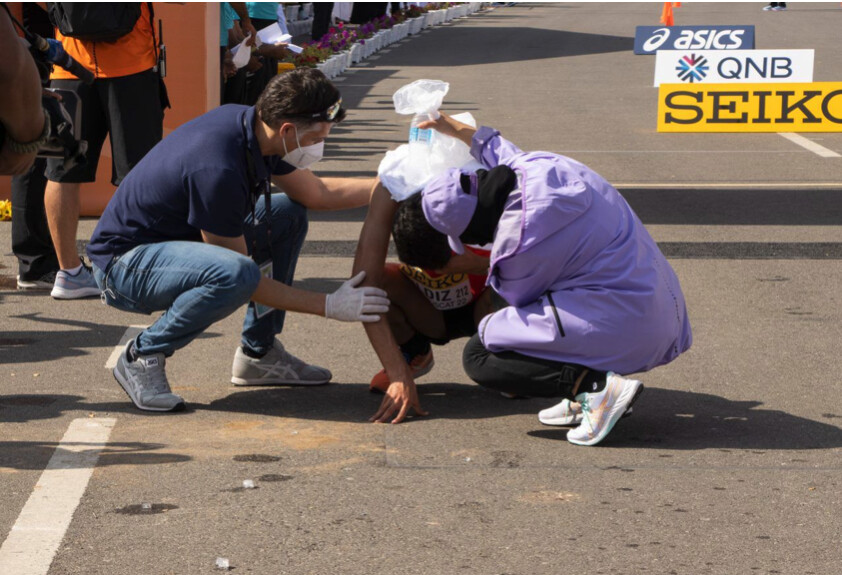
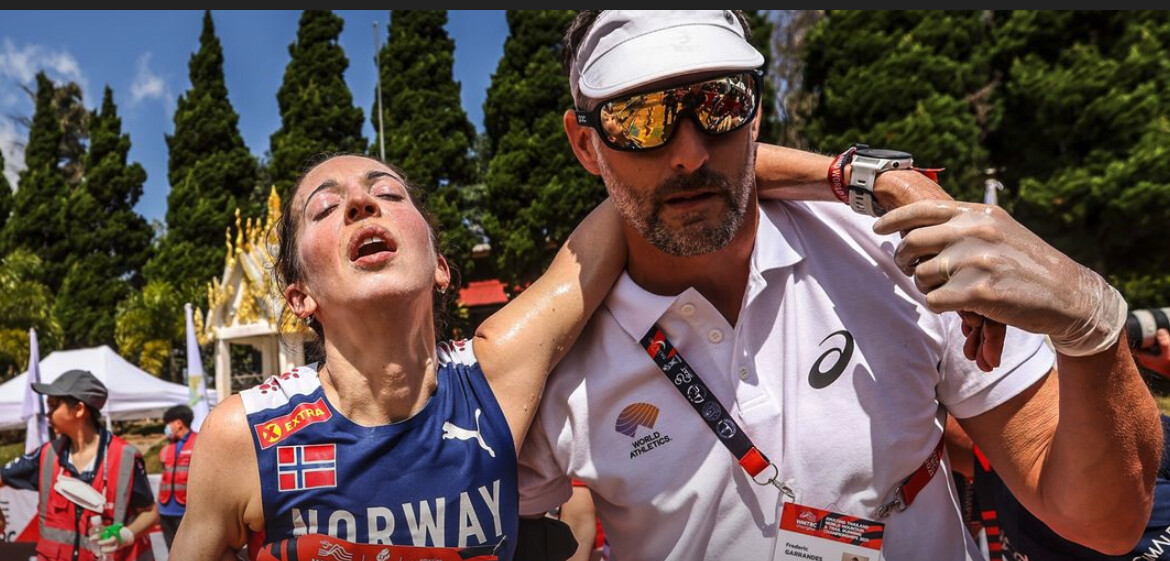
“Every step became harder, I couldn't run straight, my body became weaker and I couldn't control my legs,” Stružková recalled. “I fell down many times. Over the last 200 metres I could only scramble. It felt like a dream. After coming to the finish I was unconscious for one to two minutes and woke up in the medical tent. I couldn’t drink anything for about an hour and a half. I felt I would vomit. I felt very bad.”
Stružková admits she drastically underestimated the severity of the race conditions, she didn’t acclimate properly, and she didn’t drink enough water.
The urgent need to educate endurance athletes about the dangers to their health and performance posed by hot and humid competition conditions and how they can mitigate the risks were among the key findings of a new heat acclimatisation study by World Athletics.
Checking the weather before heading to a foreign climate may be standard practice for travellers, but the study found elite endurance athletes like Stružková were failing to check and prepare for the hot and humid conditions they’d encounter at championship events.
The study also found that while heat preparation information and strategies were available to all athletes and teams, ignorance prevailed and logistical, practical and financial barriers were proving too high.
World Athletics recruited 66 elite athletes – 42 men and 24 women – from 16 countries who competed at the World Athletics Race Walking Team Championships Muscat 22.
The study recorded the athletes’ preparation, knowledge and health, and the effects of competition heat, which can range from dehydration to death.
Race temperatures during the championships in Oman’s port capital of Muscat were 31.3C and higher than historical weather data which predicted average race-start environmental temperatures of 22.5C (morning) and 25.5C (evening).
The three race walk events held over 10km, 20km and 35km resulted in athletes being exposed to these race conditions for between 44 minutes and up to almost four hours, depending on the distance.
The study found a high number of athletes (83%) surveyed were ignorant of heat-related material that could aid their health and performance and 43 per cent did not prepare for the expected hot conditions, blaming the cost and availability of suitable equipment and facilities.
More startling was the lack of knowledge among female competitors in particular, with 42% of women compared with 14% of men surveyed more likely not to know the expected conditions they faced in Muscat for the championships.
Not surprisingly, athletes who implemented heat acclimatisation strategies were more likely to perform better. The study found that athletes who did pre-event heat training were more likely to earn a medal or finish in the top 10. The four surveyed athletes who earn medals did heat preparation and of the 15 surveyed who finished within the top 10, 80% prepared for the heat.
The study, Heat Preparation and Knowledge at the World Athletics Race Walking Team Championships Muscat 2022, was conducted by a 13-member international team led by the World Athletics’ Health and Science Department – whose primary mission is to protect athlete health – in conjunction with the School of Sport, Exercise and Health Sciences at the National Centre for Sport and Exercise Medicine at Loughborough University, UK.
Study lead Frederic Garrandes, World Athletics’ Health & Science Department Scientific Manager, said the reason for athlete, coach and team ignorance and inaction regarding heat acclimatisation was multifaceted. “A certain naivety, underestimation of risk, lack of communication and a lack of professionalism on the part of team managers and athletes,” Garrandes said.
“With global warming, we're increasingly faced with the problem of organising competitions in hot, humid conditions. This poses a health and performance problem for the athletes. The higher the temperature, the greater the number of medical encounters we have in the medical tent.”
The Muscat study builds on work carried out at the World Athletics Championships Doha 2019 by the World Athletics’ Health and Science department to also investigate heat preparation strategies used by endurance athletes.
In Doha, the capital of Qatar, 23% of road race athletes had a medical event, despite events being scheduled to start close to midnight to avoid the heat.
The 2022 Muscat study showed that despite the ready availability of educational resources, including a ‘Beat the Heat’ leaflet developed by World Athletics, a lack of knowledge persists – highlighting the urgent need to increase awareness and action.
Garrandes said publicising the study results far and wide could help bridge the knowledge gap. Making the findings and lessons “accessible in a comprehensible, simplified and multilingual way for lay athletes” was also vital.
There was also a pressing need to educate elite female athletes and athletes from cold/temperate climates in particular about the dangers of competing in high heat.
“Research in this area gives us a better understanding of the incidence of the problem, enables us to treat our athletes more effectively and to build educational programmes to educate our athletes and mitigate the risks,” Garrandes said.
Stružková has this advice for fellow athletes after suffering the debilitating effects of heat stroke while competing in Thailand: “You have to take the opportunity to acclimatise to hot and humid weather before racing in devil conditions.”
by Louise Evans for World Athletics
Login to leave a comment
2023 Western States 100 Men’s Race
There’s nowhere to go but up at the start of the Western States 100, and Jia-Ju Zhao from China charged the opening climb. Despite snow, Zhao hit the top in 42 minutes. Slower to the top, Frenchman Mathieu Blanchard (pre-race interview) and Brit Tom Evans (pre-race interview) turned to greet the brilliant sunrise together.
Zhao won the Ultra-Trail Mt. Fuji 100 Mile in April 2023 and is a two-time winner of the Doi Inthanon by UTMB 100 Mile in Thailand. He pushed his early lead to five minutes at Lyon Ridge, mile 11, while 2022 fourth-placer Tyler Green led the early chase group. Green had finished as high as second here before, in 2021, but was running more aggressively toward the front earlier than ever before.From mile-15 Red Star Ridge to mile-25 Duncan Canyon, the chase group started to make up time on Zhao. Tom Evans, Chinese runner Jia-Sheng Shen, and Dakota Jones (pre-race interview) were among a group that cut four minutes from Zhao’s lead over just nine miles. Evans was third here in 2019 in 14:59, and Jones had just biked 680 miles from his home in Utah to the race start.
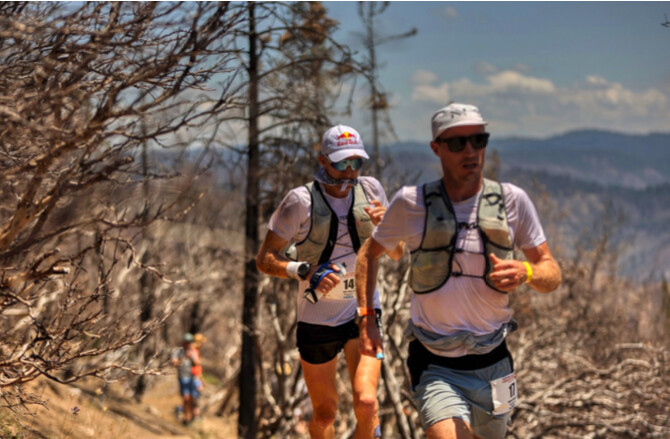
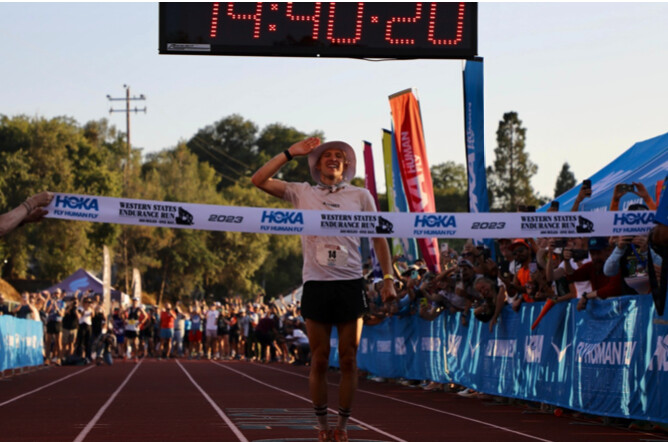
Zhao was quickly swallowed up in the next five miles to Robinson Flat, mile 30, and soon fell out of the top 10. A lead trio of Tom Evans, Dakota Jones, and Jia-Sheng Shen came into aid at 4:45, meeting their crews for the first time. At mile 30 and with Zhao falling backward, Anthony Costales (pre-race interview) was fourth, and then he was with Tyler Green at mile 38 in fourth and fifth. The two would barely separate the rest of the race.Evans and Jones dropped Shen on the climb to Devil’s Thumb, mile 48, and the two leaders came into aid together in 7:03. Four minutes back Costales had caught Shen on the big climb, and Tyler Green, Jeff Colt, New Zealand’s Daniel Jones, Ryan Montgomery, Mathieu Blanchard, and 47-year-old Ludovic Pommeret were inside the top 10. Those six were 14 minutes apart. 2022 third- and second-place finishers Arlen Glick (pre-race interview) and Hayden Hawks (pre-race interview) were back in 11th and 16th, respectively. After earlier moving up, Hawks had just lost several places and would later drop with injury at mile 55. Other top-10 finishers from 2022 Cody Lind, Scott Traer, and Alex Nichols were all noticeably outside the top 10 too.
As the race shifted to its mile-62 Foresthill hub, Evans gained some separation on Jones and entered the aid station first, but as Evans changed shoes and socks, Jones didn’t wait and exited first. Jones was now in the lead by himself for the first time and he was overheard voicing his intention to break Evans. Some 11 minutes back of those two leaders, Green and Costales were again together and in third and fourth. Shen and Jeff Colt were just minutes back of those two, and Colt was remarkably almost an hour faster than a year ago when he finished 11th.Jones and Evans separated leaving Foresthill and anticipation ran high for their next steps. The two had been together for nearly the entirety of the race to this point. Jones wanted to make a move and Evans wanted to keep up with (the) Jones. The duel ended quickly and dramatically though. Tom Evans dropped a 5:54 downhill mile and hit Cal 2, mile 71, in 10:12. That surge pushed Jones eight minutes back at mile 71. It was just nine miles from Foresthill to that split on Cal Street, but the front two had shattered and moved in opposite directions the rest of the race.
Evans ran alone to the river crossing at mile 78, and ultimately to the finish. Tyler Green, Anthony Costales, Jeff Colt, and Jia-Sheng Shen all overtook Dakota Jones on the way to the river too. Forget about Elm Street, Jones was having a bit of a nightmare on Cal Street.
Evans, the 2022 UTMB third placer, continued to put time on the field the rest of the way. He finished in 14:40 and that’s the race’s fourth fastest finish ever. The mark trails only Jim Walmsley and Jared Hazen in 2019, and Walmsley’s 2018 mark too. Evans was a runaway winner, but the rest of the top 10 was much more closely packed.Tyler Green pushed on in second, and held off an Anthony Costales chase over the last 15 miles. Green finished in 15:04. It was his second runner-up finish and a big personal best for the course. He was able to finish with his baby boy on his shoulders. Green’s 15:04 was the race’s 11th-fastest finish ever. Costales was third in 15:09, the race’s 13th-fastest finish ever.
Jia-Sheng Shen and Daniel Jones both finished fast. Shen clocked 15:19 and Jones was fifth in 15:22. Mathieu Blanchard and Ryan Montgomery both overtook Jeff Colt late. Those three — Blanchard, Montgomery, and Colt — finished in 15:37, 15:38, and 15:42, respectively. Local runner Cole Watson bettered his 2022 14th-place finish with a ninth-place 15:54.
In 2019 the top 10 all went under 16 hours. This year’s 10th-place man Janosch Kowalcyzk from Germany just missed matching that feat. He finished in 16:09.
Seven of last year’s top 10 returned, but only Tyler Green was able to again make the top 10. The 2022 top 10 finishers Ludovic Pommeret, Arlen Glick, Scott Traer, Cody Lind, and Alex Nichols finished 12th, 13th, 15th, 16th, and 28th this year, respectively. As earlier mentioned, 2022 runner-up Hayden Hawks dropped.
After running near or in the lead through Foresthill, Dakota Jones finished 17th in 17:00.
Early leader Zhao’s high risk, high reward start ended with a drop at Michigan Bluff, mile 55.
by Justin Mock I Run Far
Login to leave a comment
Western States 100
The Western States ® 100-Mile Endurance Run is the world’s oldest and most prestigious 100-mile trail race. Starting in Squaw Valley, California near the site of the 1960 Winter Olympics and ending 100.2 miles later in Auburn, California, Western States, in the decades since its inception in 1974, has come to represent one of the ultimate endurance tests in the...
more...Kenyan Patrick Kipngeno bags gold for Kenya on Day One of the World Mountain and Trail Running Championships
Team Kenya started their World Mountain and Trail Running Championships on a high with Patrick Kipng’eno bagging gold in the 7.3 km vertical race —featuring 1020m of elevation gain.
Kipng’eno, who became the first Kenyan to win a mountain running world title last year, clocked 40:18 to win gold on Day One of the championship being held in Innsbruck-Stubai Austria. He beat 130 athletes who entered the race.
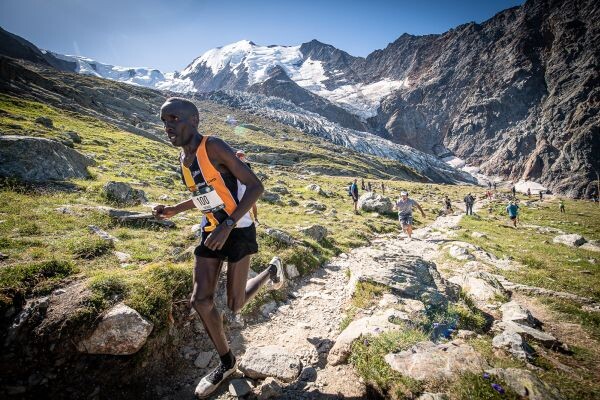
He beat Uganda’s Levi Kiprotich (41:51) to silver while Kenya’s Josephat Kiprotich (42:04) completed the podium finish.
Kenya’s other representatives—last year’s silver medalist Philemon Kiriago (42:54) and Hillary Maiyo —settled for the 7th and 12 positions respectively.
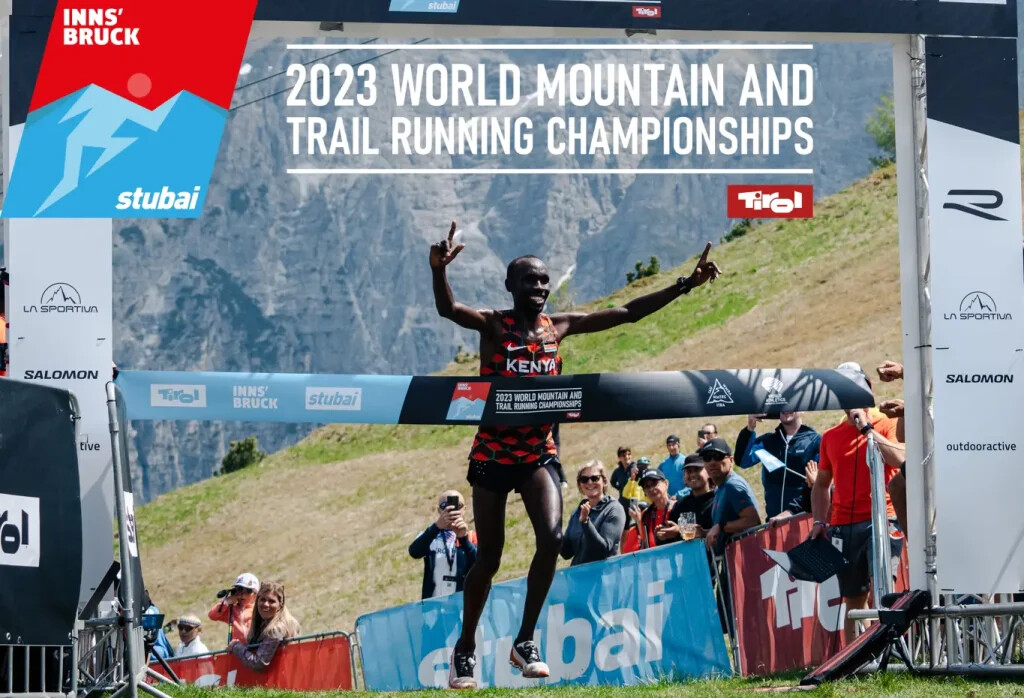
They will be in action again on Saturday when they take part in the Mountain Classic event, featuring looped 15.5km races for senior men and women.
In the women’s category, Kenya’s Philaries Kisang was beaten to gold by Austria’s Andrew Mayr.
The home girl, who won silver in last year’s championships, clocked 48:14 to win gold while Kisang settled for silver in 48:51. USA’s Grayson Murphy claimed bronze in 49:22. Valentine Ruto (49:59) and Joyce Muthoni (52:09) were 5th and 10th respectively.
Kenya is represented by seven athletes after two Geoffrey Gikuni and Ezekiel Kirui missed out due to visa hitches. Kirui was scheduled to compete in the 85 km long trail while Gikuni was to take part in the 45km short trail.
Athletics Kenya mountain Running chairman Peter Angwenyi accompanied the team to Austria.
More than 1,100 of the world’s top runners from 68 countries are participating in the second edition of the World Mountain and Trail Running Championships in the Austrian Alps. The inaugural event was held last November in Chiang Mai, Thailand.
Alessio Punzi, Head of Running and Mass Participation at World Athletics said: “The World Championships are a dream come true started in 2017. In the future, we want to attract more and more athletes and make it more and more difficult for everybody to ignore.”
by Angwengyi Gichana
Login to leave a comment
World Mountain and Trail Running Championships
Welcome all athletes, officials, coaches, and families to THE AMAZING THAILAND WORLD MOUNTAIN & TRAIL RUNNING CHAMPIONSHIPS 2021 (WMTRC2021). The event will feature 80km and 40km trail races, classic up and down and uphill only mountain races. It replaces World Championships previously hosted with World Athletics, WMRA (mountain running) and IAU and ITRA (trail). The Amazing Thailand World Mountain and...
more...Canfranc to host 2025 World Mountain and Trail Running Championships
The third edition of the World Mountain and Trail Running Championships (WMTRC) will take place in Canfranc-Pirineos, Spain, between 25-28 September 2025.
The awarding of the event to Canfranc in the Pyrenees follows a successful bid by the Government of Aragon, the Canfranc Town Council, the Huesca Provincial Council, the Higher Sports Council and the Royal Spanish Athletics Federation (RFEA) to event partners the International Association of Ultrarunners (IAU), the International Trail Running Association (ITRA) and the World Mountain Running Association (WMRA), alongside World Athletics.
As well as the four-day elite race programme, the event will include a summer-long cultural and leisure festival to promote the Pyrenees Mountain Range.
Around 1700 athletes from 70 countries are expected to meet in September 2025 in Canfranc-Pirineos, which takes over from Innsbruck in Austria – host of the next edition of the championships, taking place this year between 6-10 June.
The race programme will feature uphill mountain running, classic up and down mountain running, short trail, long trail and U20 classic up and down mountain events.
“On behalf of the LOC, we are thrilled to be hosting the 2025 World Mountain and Trail Running Championships in our country and look forward to welcoming the best mountain and trail runners from all corners of the globe,” said RFEA President Raul Chapado.
“As a team, we express our deep satisfaction and appreciation to World Athletics and its partners WMRA, IAU and ITRA for choosing our beautiful region of Canfranc and the stunning Aragonese Pyrenees as the venue for this world-class event.
“The championships offer a unique opportunity for fans to witness the best mountain and trail runners from around the world compete in an unparalleled natural environment. We are excited to collaborate with the public administrations, sponsors and volunteers to leave a permanent legacy and create an unforgettable experience for all participants.”
The Aragonese proposal was backed by great experience in the organisation of sporting events such as the Canfranc-Canfranc, an annual event that features two Gold level Valsir Mountain Running World Cup races.
Canfranc-Pirineos offers a superb sporting environment, which will allow each athlete to perform to the best of their ability and create a complete competitive experience for athletes, teams, federations and international associations. That is proven by the list of world champions who have run and won at the Canfranc-Canfranc: from Kenya’s Joyce Muthoni Njeru to USA’s Grayson Murphy and Britain’s Charlotte Morgan, as well as Spain’s Oihana Kortazar, Manuel Merillas, Luis Alberto Hernando and Daniel Osanz.
In 2024, the Canfranc-Canfranc will host the World Masters Championships, before the region welcomes athletes for the World Mountain and Trail Running Championships in 2025.
Events due to take place as part of the associated festival include a series of awareness days, with emphasis on respectful use of the environment, and a natural running congress on the technical history and future convergence between the disciplines of athletics in nature: cross country, mountain running and trail running.
“It is our great pleasure to see the joint initiative to organise the World Mountain and Trail Running Championships continue its great momentum and we are excited that the third WMTRC will take place in Canfranc, Spain, in 2025 in the beautiful Pyrenees – a paradise for mountain and trail running,” said ITRA President Janet Ng, IAU President Nadeem Khan and WMRA President Tomo Sarf in a joint statement.
“It will be the second time that the championships have been held in Europe. The initial event took place in Chiang Mai, Thailand, and was a huge success. We are confident that the second edition in Innsbruck and Stubai will build on that in the coming days and that the third edition in Canfranc will reach even greater heights.
“We would like to thank the bidding committee, the Spanish athletics federation and World Athletics for all the cooperation and support during the application process to host the championships. The bidding committee worked extremely hard to prepare a compelling and impressive bid and we are all very much looking forward to being in Canfranc with the world’s best athletes in 2025.”
Innsbruck-Stubai entries confirmed
A total of 1122 athletes from 67 member federations are entered to compete in the next edition of the World Mountain and Trail Running Championships, taking place in Innsbruck-Stubai in Austria between 6-10 June.
That number includes 506 athletes entered into 574 women’s events and 616 athletes entered into 710 men’s events, with the programme featuring uphill mountain running, classic up and down mountain running, short trail and long trail. U20 men and women will compete in classic up and down mountain running.
USA’s Allie McLaughlin and Adam Peterman, Kenya’s Patrick Kipngeno, Norway’s Stian Angermund, Romania’s Denisa Dragomir and Blandine L'Hirondel of France were among the winners at the inaugural World Mountain and Trail Running Championships, held in Chiang Mai, Thailand, in November.
by World Athletics
Login to leave a comment
Senbere Teferi, the 5k world record holder, is among a group of African runners who form a strong women’s elite field at the Vienna City Marathon
Senbere Teferi, the 5k world record holder, is among a group of African runners who form a strong women’s elite field at the Vienna City Marathon. Austria’s major road running event will be staged for the 40th time and it could well be the women who produce the headlines at the jubilee edition on April 23rd.The current course record of 2:20:59 will be a target if weather conditions are suitable on the day. Organisers of the Vienna City Marathon, which is the only World Athletics Elite Label Road Race in Austria, expect to register around 35,000 entries for their event. This includes races at shorter distances staged parallel to the marathon. Registration for all races is still possible at: www.vienna-marathon.com
Teferi brings plenty of promising speed to the marathon. The 27-year-old Ethiopian clocked 14:29 in a 5k race in Herzogenaurach (Germany) in 2021. This time still stands as a world record in a women-only race. So far Teferi could not transform her speed to the marathon. However she is eager to change this in Vienna this spring. “It is my aim to smash my personal best and win the race,“ said Teferi, who will run her third marathon in the Austrian capital. Back in 2018 she ran her debut in Dubai in 2:24:11 and then she clocked 2:25:22 in Tokyo in 2020. However her half-marathon PB of 65:32 indicates that Teferi, who won silver medals at the World Cross Country Championships and in the 5,000m final of the World Championships in 2015, should be capable of running significantly quicker.
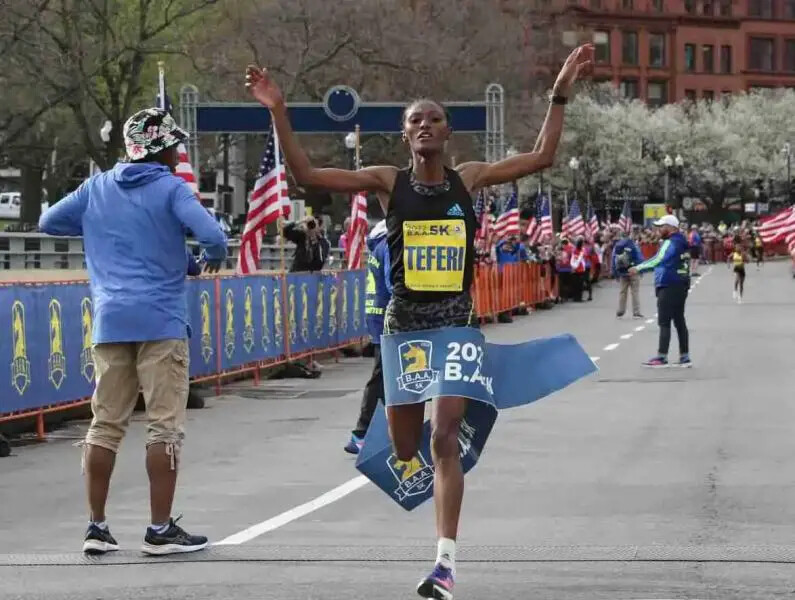
Running a faster time is one thing, winning is another. The Vienna City Marathon will provide quite a challenge for her. There are four Kenyans in the women’s field who have run faster in the marathon than the Ethiopian. Visiline Jepkesho, Magdalyne Masai, Rebecca Tanui and Agnes Keino. They intend to add to Kenya’s Vienna win streak. In the past five editions of the VCM the women’s winner was Kenyan. A year ago Chepkirui broke the course record with a time of 2:20:59.
Jepkesho is the fastest on the current women’s start list with a personal best of 2:21:37. The 33-year-old has plenty of experience in the marathon and will start a comeback in Vienna after giving birth to her two sons. She ran her PB when finishing fourth in Paris in 2017. Visiline Jepkesho has run four sub 2:23 marathons and took major victories in Rotterdam (2018) and Paris (2016).
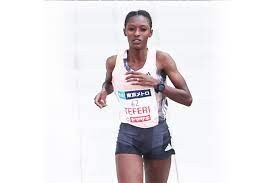
Magdalyne Masai is another athlete who recently came back from maternity leave and who has been successful before the break. In 2019 she took the Toronto Marathon with a personal best of 2:22:16. Little over a week ago the 29-year-old showed fine form, when she clocked a half marathon PB of 67:07 in the Rome Ostia race finishing third.
Rebecca Tanui and Agnes Keino will travel to Vienna full of confidence, since both of them won their autumn marathon race with personal bests. Tanui triumphed in San Sebastián in 2:23:09 while Keino smashed the course record of the Munich Marathon with 2:23:26, leaving behind the former World Marathon Champion Mare Dibaba of Ethiopia. Keino then also won the Buri Ram Marathon in Thailand in January in 2:28:08, smashing another course record.
by Christopher Kelsall
Login to leave a comment
Vienna City Marathon
More than 41,000 runners from over 110 nations take part in the Vienna City Marathon, cheered on by hundreds of thousands of spectators. From the start at UN City to the magnificent finish on the Heldenplatz, the excitement will never miss a beat. In recent years the Vienna City Marathon has succeeded in creating a unique position as a marathon...
more...Vienna City Marathon's strong women's field set for April 23rd
Women’s field includes 5k world record holder Senbere Teferi
Senbere Teferi, the 5k world record holder, is among a group of African runners who form a strong women’s elite field at the Vienna City Marathon. Austria’s major road running event will be staged for the 40th time and it could well be the women who produce the headlines at the jubilee edition on 23rd April.
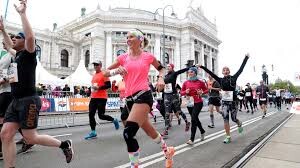
The current course record of 2:20:59 will be a target if weather conditions are suitable on the day. Organisers of the Vienna City Marathon, which is the only World Athletics Elite Label Road Race in Austria, expect to register around 35,000 entries for their event. This includes races at shorter distances staged parallel to the marathon. Registration for all races is still possible at: www.vienna-marathon.com
Senbere Teferi brings plenty of promising speed to the marathon. The 27 year-old Ethiopian clocked 14:29 in a 5k race in Herzogenaurach (Germany) in 2021. This time still stands as a world record in a women only race. So far Senbere Teferi could not transform her exciting speed to the marathon.
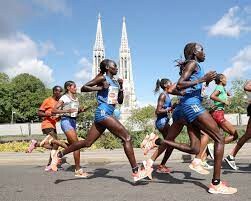
However she is eager to change this in Vienna this spring. “It is my aim to smash my personal best and win the race,“ said Senbere Teferi, who will run her third marathon in the Austrian capital. Back in 2018 she ran her debut in Dubai in 2:24:11 and then she clocked 2:25:22 in Tokyo in 2020. However her half marathon PB of 65:32 indicates that Senbere Teferi, who won silver medals at the World Cross Country Championships and in the 5,000 m final of the World Championships in 2015, should be capable of running significantly quicker.
Running a faster time is one thing, winning is another. The Vienna City Marathon will provide quite a challenge for Senbere Teferi. There are four Kenyans in the women’s field who have run faster in the marathon than the Ethiopian. Visiline Jepkesho, Magdalyne Masai, Rebecca Tanui and Agnes Keino intend to add to Kenya’s Vienna win streak. In the past five editions of the VCM the women’s winner was always a Kenyan. A year ago Vibian Chepkirui broke the course record with a time of 2:20:59.
Visiline Jepkesho is the fastest on the current women’s start list with a personal best of 2:21:37. The 33 year-old has plenty of experience in the marathon and will start a comeback in Vienna after giving birth to her two sons. She ran her PB when finishing fourth in Paris in 2017. Visiline Jepkesho has run four sub 2:23 marathons and took major victories in Rotterdam (2018) and Paris (2016).
Magdalyne Masai is another athlete who recently came back from maternity leave and who has been successful before the break. In 2019 she took the Toronto Marathon with a personal best of 2:22:16. Little over a week ago the 29 year-old showed fine form, when she clocked a half marathon PB of 67:07 in the Rome Ostia race finishing third.
Rebecca Tanui and Agnes Keino will travel to Vienna full of confidence, since both of them won their autumn marathon race with personal bests. Tanui triumphed in San Sebastián in 2:23:09 while Keino smashed the course record of the Munich Marathon with 2:23:26, leaving behind the former World Marathon Champion Mare Dibaba of Ethiopia. Keino then also won the Buri Ram Marathon in Thailand in January in 2:28:08, smashing another course record.
by David Monti
Login to leave a comment
Vienna City Marathon
More than 41,000 runners from over 110 nations take part in the Vienna City Marathon, cheered on by hundreds of thousands of spectators. From the start at UN City to the magnificent finish on the Heldenplatz, the excitement will never miss a beat. In recent years the Vienna City Marathon has succeeded in creating a unique position as a marathon...
more...Here's Why It Feels Like Every Elite Runner Is Changing Sponsors Right Now
Tim Tollefson celebrated the new year shoveling a lot of snow, dreaming about a summer of possibility, and changing his shoes.
After six years with Hoka, Tollefson, 37, the well-known elite American ultrarunner from Mammoth Lakes, California, signed a new multi-year sponsorship deal with Craft. It might seem like a curious move this time of the year, but, in reality, most athlete sponsorship contracts in running are one-year partnerships that end on December 31. That typically gives brands the upper hand in these situations because they can have an easy out whenever an athlete doesn't have a great year of results, or they no longer fit with their marketing goals. It always comes down to the money, though sometimes it's in the athlete's best interests to start fresh, to leverage their recent results and social media platform to find a better deal with a brand that better fits their racing goals.
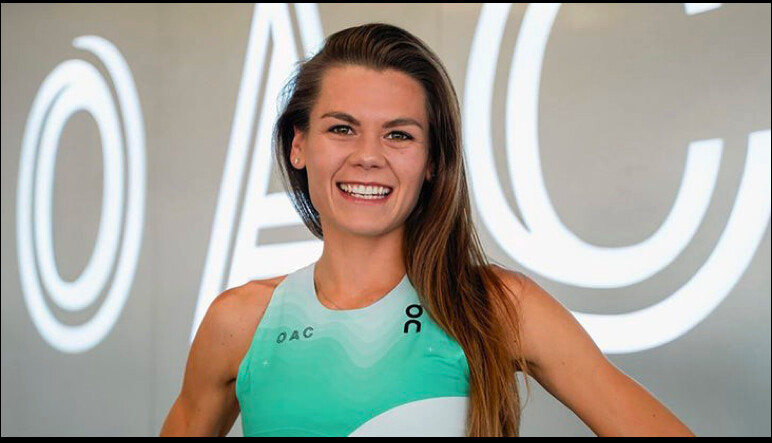

Because there are more brands partnering runners than ever before, and presumably more sponsorship money available, top-tier distance runners who are still at the top of their game-like Tim Tollefson, Allie McLaughlin, Josette Norris, Paige Stoner, David Ribich, Dani Moreno, Erin Clark, Natosha Rogers, Colin Bennie, Dillon Maggard, Camille Herron, and others-have been able to seek out new opportunities to continue their careers with the necessary support.
The terms of the newly signed deals haven't been disclosed, but there is a huge range in pay for professional distance runners-roughly $15,000 on the low end for a partially sponsored trail runner without significant international results, to $300,000 at the high end for a top-tier marathoner with Marathon Majors podium results. Certainly that means some live a life of luxury, while others are forced to work part-time jobs and pinch pennies to get by.
But there are also often signing bonuses, as well as premiums paid for earning appearance fees, major victories, global medals, podium finishes, breaking records, and other incentives, so running faster can be a fast track to a boost in income. However, most athletes are considered independent contractors, and many have to pay for their own healthcare, body work, and travel, depending on the details of their brand partnership.
"You start getting an idea of who's going to be available, for one reason or other, in the last few months of the year, and that's when brands and athletes start talking," said Mike McManus, Hoka's global sports marketing director. "As an athlete, you're as valuable as whatever money anyone wants to give you, but it's a process and all about negotiating. Sometimes you can match the money being offered; sometimes it just doesn't make sense for the partnership."
What Tollefson liked about Craft was similar to what he liked about Hoka six years ago-an upstart brand ready to make an impact in trail racing, its new line of trail shoes, and the trail community overall. Craft sees Tollefson as a runner with name recognition and several significant race wins in the past three years, not to mention a leader in the sport who started the Mammoth Trail Fest last year.
"This [new partnership with Craft] has reignited my deep passion for the sport and has reminded me of the things I want to accomplish," he said. "It's almost like a start-up situation led by passionate people who are excited to make an impact and want to support the people who are along for the journey. Curiosity drives me and I like a challenge. I know I am going to have some lifetime achievements ahead."
More Big Moves in Trail and Ultra
After an extraordinary year of racing on the trails, Allie McLaughlin changed from On to Hoka as her primary sponsor. The charismatic 32-year-old from Colorado Springs won the daunting Mount Marathon race in Alaska, placed among the top five in several Golden Trail Series races, and won both gold and bronze medals in the inaugural World Mountain and Trail Running World Championships in Thailand. She'll be representing the U.S. in this year's World Championships in Austria, in June, while also returning to the OCC 54K race, as part of the Ultra-Trail du Mont-Blanc (UTMB) festival in Chamonix, in August.
"It was really interesting to see how much trail means to them [Hoka], not only with their sponsorship of UTMB, but in general how they're helping push the sport forward," said McLaughlin, who had been with On since 2021. "There are a lot of reasons I like what Hoka is doing, but ultimately, the emphasis they're putting on the team and their athletes is really exciting."
Other trail and ultrarunners who have switched brands include Erin Clark, who finished 7th at last year's CCC, who left Hoka to sign with Nike, even though her partner, Adam Peterman, the 2022 Western States 100 champion and ultrarunning world champion, re-signed with Hoka.
Spanish trail runner Sara Alonso has changed from Salomon to ASICS, while Craft also signed Arlen Glick, a prolific 100-mile specialist from Ohio, and Mimmi Kotka, a Swedish runner with numerous podium finishes in Europe, to its team. Meanwhile, previously unsponsored American trail runners Tabor Hemming (Salomon) and Dan Curts (Brooks) are among those who have signed new deals.
Meanwhile, Dani Moreno, a world-class mountain runner from Mammoth Lakes, California, and Camille Herron, a record-setting ultrarunner from Warr Acres, Oklahoma, are both also leaving Hoka for yet-to-be-announced brands that offered better deals.
Bigger Transitions for Road and Track Runners
For track athletes and marathon runners, a change of shoe brands is often a more involved change, mostly because it often means changing training groups and coaches, too.
For example, Josette Norris, the fifth-place finisher in the 1,500m at the 2022 World Athletics Indoor Championships, not only switched from Reebok to On, but she left Reebok's Virginia-based Boston Track Club, and coach Chris Fox, and moved west to Boulder, Colorado, to join the On Athletics Club under Dathan Ritzenhein.
Similarly, David Ribich, one of the best American mile runners on the track last year, switched from the Seattle-based Brooks Beasts track club to the Nike-backed Union Athletics Club under Pete Julian.
Colin Bennie, the top American finisher in the Boston Marathon in 2021-previously with Reebok but unsponsored last year-signed with the Brooks Beasts but will be training on his own in San Francisco. Dillon Maggard, who was second at the U.S. cross country championships and ninth in 3,000m at the indoor world championships in 2022, is returning to Seattle to train with the Brooks Beasts, after being unsponsored last year. Natosha Rogers, who was a finalist in the 10,000m at last summer's World Athletics Championships in Eugene, Oregon, has changed from Brooks to Puma, but will continue to train on her own in Colorado. Middle-distance runner Cruz Culpepper, after short stints at the University of Washington and the University of Mississippi, gave up his remaining college eligibility to sign with Hoka and its NAZ Elite (NAZ) team.
Last summer, Paige Stoner left the Virginia-based Reebok group and Fox, her longtime coach, to train in Flagstaff, Arizona, partially because she didn't have other marathoners to train with on a regular basis in Charlottesville. She increased her volume last fall training with Sarah Pagano and Emily Durgin and won the U.S. championship at the California International Marathon in December with a course record of 2:26:02, her debut at the distance.
In January, Stoner parlayed that into a new deal with Hoka, as she also joined the Flagstaff-based Northern Arizona Elite and will be training with a group of strong marathoners-including Aliphine Tuliamuk, Alice Wright, Kellyn Taylor, and the recently unretired Stephanie Bruce-under the guidance of coaches Alan Culpepper, Ben Rosario, and Jenna Wreiden.
"I was especially drawn to NAZ because they have proven to be a powerhouse in the marathon, which will likely be my primary focus in the years to come," Stoner said. "I believe the team has all of the tools it takes to compete at the highest level in the sport, and I am eager to begin this new chapter."
Learning the Ropes
For track and road running, the path to success for elite-level, post-collegiate athletes typically includes earning a sponsorship right after the track season in June and joining a sponsored training group and coach. From there, it's all about improving times and placing high in U.S. championship races, with hopes of becoming fast enough to earn a spot in elite track meets in Europe or one of the World Marathon Majors.
But most road and track runners have agents to help smooth out those transitions, whereas most trail runners do not. Plus, trail running is considerably more unstructured, with a greater range of race distances and a lot more unknown variables. That means the challenge of figuring out what opportunities exist on the trails-what races to run, how to train on trails, what gear is needed, how to race considerably longer distances, and how to attract sponsors-often requires them to learn on the fly.
Those are all reasons professional trail runner Andy Wacker recently formed The Trail Team, a non-profit organization that will help guide young runners along the path becoming successful, potentially sponsored trail runners, while also playing a role in boosting the level of competitive trail running in the U.S.
The Trail Team put out a call for candidates to become one of six inaugural team members in 2023. Once selected this spring, those athletes will go through a training camp, receive a stipend, get continued mentorship from Wacker, McLaughlin, Adam Peterman, and Grayson Murphy, and prepare for a variety of U.S. races.
"I've reached out to a lot of young athletes and the main thing I found is they need a mentor," said Wacker, a Salomon-sponsored athlete. "They don't necessarily need a coach-a lot of them have a college coach that they might continue working with-but they need someone who is going to help them with all of their questions and translate everything to trail running.
"It's still really hard to be an individually sponsored athlete, and I think it's hard for a young athlete to get recognition and build their brand, so we're hoping to help with that," he added. "There are more participants and more excitement than ever in trail running, but there are also growing pains. So there are a lot of ways we think we can help so they don't have to figure it out on their own."
Like Wacker, Tollefson is one of those athletes who did have to figure it out on his own. He was a good runner in high school and college, but he never qualified for the state meet and never earned All-American honors. But, with a relentless work ethic, he's become one of the most successful American trail runners of the past decade, having placed second at the CCC 100K in Chamonix, in 2015, and twice placed third in the Ultra-Trail du Mont-Blanc 171K in 2016 and 2017.
Although his personal race plans aren't finalized yet, those deals are allowing him to step away from his career as a physical therapist and become fully immersed in running for the first time in his career.
"All of us athletes are multidimensional; we're more than just a pretty face rocking a bib," Tollefson said. "Everyone has a unique story. I think there are more brands interested in telling those stories, and Craft is definitely one of them. Some people have written me off, but I'm confident my best races are ahead of me. Craft believes in me, and I feel like I need that belief to get the best out of myself."
by Trail Runner Magazine
Login to leave a comment
More Prize Money Is Flowing Into Trail Running. What Does That Mean for the Sport?
Annie Hughes, one of the top trail runners in the U.S. for the past two years, had another amazing season running ultra-distance races in 2022. On September 17, the 24-year-old Hoka-sponsored runner and part-time college student won the Run Rabbit Run 100 in Steamboat Springs, Colorado, her fourth win of 100 miles or longer since April. Earlier this year, she won the Coldwater Rumble 100 in January, Cocodona 250 in April and the High Lonesome 100 in July.
Those were all exceptional efforts in really challenging races, but the big difference she experienced after crossing the Run Rabbit Run finish line, 21 hours and 26 minutes later, was that she won $17,500. (And yes, she was handed one of those cartoonish, oversized checks at the awards ceremony.)
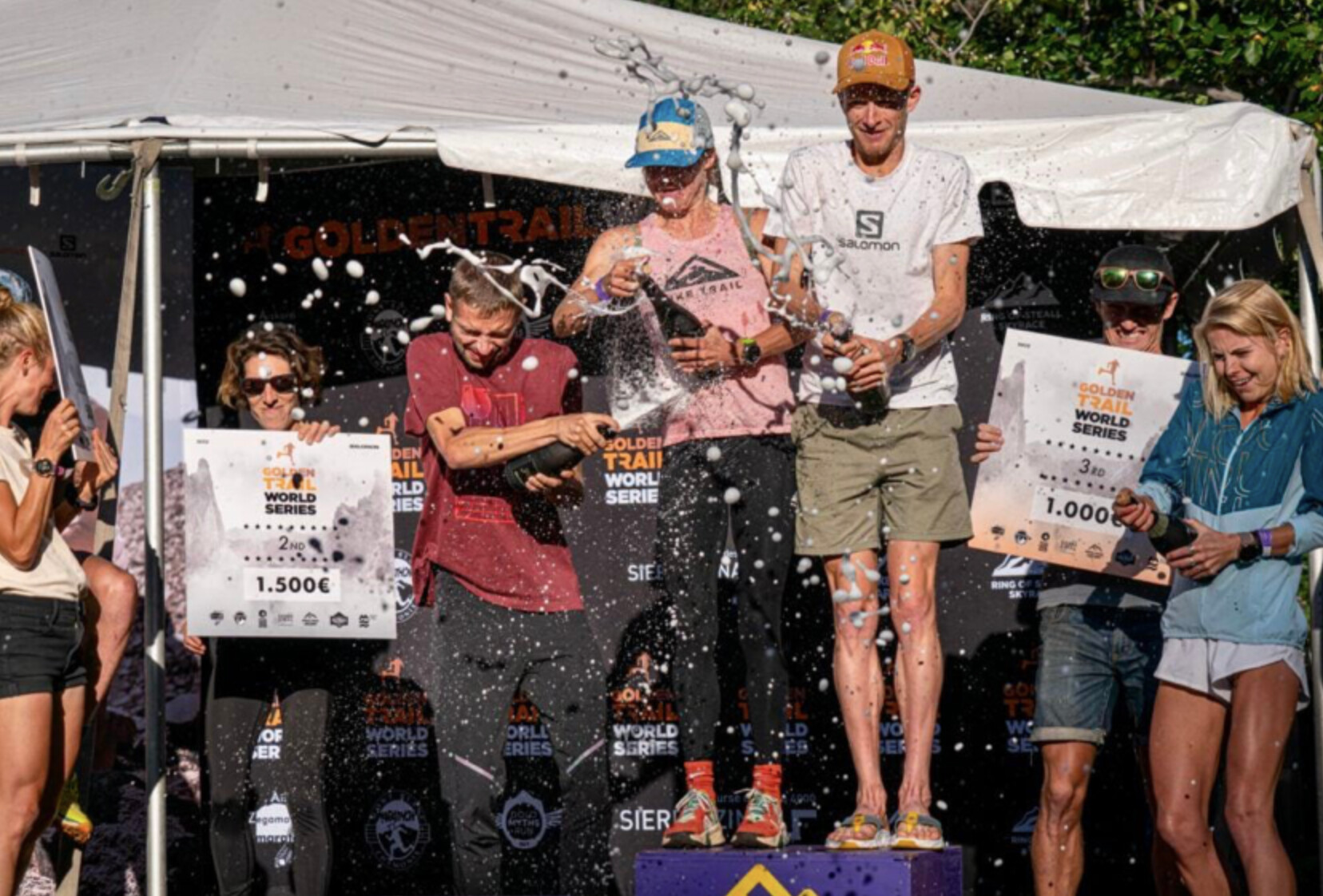
Run Rabbit Run is one of the rare American trail races that offers a relatively large prize purse, and for a decade, it's been the largest in the sport. Hughes earned $15,000 for winning the women's race and split another $5,000 with Arizona trail runner Peter Mortimer (who placed 12th overall) as part of the event's new team competition.
"That wasn't the reason I was drawn to the race, but it was definitely pretty cool to win that much money," Hughes said. "I'm glad I did it, because it wound up being a really great race with an amazing course on a beautiful day."
The origins of trail running were always more about the joy and freedom of ambling through the natural world, and less about the specific time and pace of any run or race, which is why winning big cash prizes is mostly uncommon in the sport, even for top-tier runners like Hughes. Over the past two years, Hughes has won 10 races of 50 miles or longer, yet her Run Rabbit Run victory was the first time she's ever earned money for her efforts.
More sponsorship money and bigger cash prizes are flowing into the sport, helping the top athletes earn a full-time living in the sport and become global stars. But that evolution has also created a desperate need for a unified governing body and more consistent drug-testing as doping becomes a more acute concern.
A Windfall of Prize Money
Historically, America's biggest and most notable trail running races haven't offered any prize money at all-Western States 100, Hardrock 100, Dipsea Trail Race, Leadville 100, Mount Marathon Race, Seven Sisters, Black Mountain Marathon/Mount Mitchell Challenge-partially because races simply couldn't afford to pay it, and also because, at the soul of the sport, that's not what the races were historically about or why most top runners were competing.
But with the continued growth of the sport-trail running has grown by 231 percent over the past 10 years, according to one report-and the dawn of a new level of professionalization over the past decade, there is a lot more money being injected into the sport. That includes more high-profile events and race series, more brands investing in the sport, more sponsored runners and trail running teams, as well as a growing expectation that prize money should be part of the equation as it is in road running, triathlon, and even obstacle course racing.
For many years, The North Face 50 near San Francisco was one of the only ultra trail races in the world to offer a significant prize purse. From its inception in 2006, until it disappeared after 2019, that race famously awarded $30,000 in prize money, which included $10,000 to the top finishers in the men's and women's races, plus $4,000 for second and $1,000 for third. It was a race to look forward to at the end of the calendar year, both for the cash awards and the prize-induced competition that drew top runners from around the world.
During that span, Run Rabbit Run, though a lower-profile race, quietly began dishing out some of the biggest payouts in the sport, in part because race organizers Fred Abramowitz and Paul Sachs believe in rewarding its top athletes for their efforts (as well as giving back to the community via even bigger charitable contributions). The race winnings come primarily from entry fees of the 600-runner event and sponsors, if and when the race has them. That wasn't possible back in the early days of the sport, when entry fees were minuscule and cash sponsors were mostly non-existent, but things have started to change.
Abramowitz and Sachs, who both earn their living as attorneys, are unique in that they want to give back to the elite athletes and the Steamboat Springs community, but they also want to help grow the sport. Abramowitz outlined what he calls "A Blueprint for Sponsors of Ultra Running," a three-page document that explains how and why trail ultrarunning-both as a sport and as individual races-can connect to more casual runners, sports fans, and the general public.
He points to the rampant growth of NASCAR, Professional Bull Riding, and professional poker over the past 20 years from their roots as fringe sports, relatively speaking, to mainstream spectacles with massive fan bases, TV contracts, and social media followings. Trail and ultrarunning aren't there yet, Abramowitz has noted, but they've certainly been growing rapidly.
"Today millions watch those events, though the actual number of participants is minuscule," Abramowitz wrote in his missive. "Ultrarunning can learn from these events: it needs new ideas, new ways of attracting the already committed runners and the casual sports fan to our terrific sport. Fields need to be competitive and races [need to be] dramatic; there are hundreds of 100-mile races, but those that offer competitive fields are a handful at most. Most ultra-races offer spectacular scenery in interesting venues."
Abramowitz said sponsors should support races such as Run Rabbit Run that offer prize money not merely because it's good for sport, but also because prize money can attract competitive fields, and competitive fields attract interest-from spectators, participants, potential sponsors, and the general public. He also points out that having prize money at more domestic races is a way to keep the sport from becoming entirely Euro-centric, which has been an increasing trend in the past several years.
The trend of cash purses seems to be increasing, and on the face of it, that's good for elite athletes capable of podium finishes. But it's a complex topic and one that certainly will simultaneously increase the competitiveness of the sport while, some argue, continue to pull the sport away from its organic, racing-in-nature roots that was mostly viewed as the antithesis of competitive road racing.
On the same day Run Rabbit Run paid out $75,000 in total prize money, the Pikes Peak Ascent awarded $18,000 in prize money for its top 10 finishers-including $3,000 apiece to the men's and women's winners-while the Pikes Peak Marathon, on September 18, had an additional $10,500 in total prize money for the top five runners. The races also offered $2,000 (Ascent) and $4,000 (Marathon), respectively, as course-record bonuses, and a $10,000 premium to any runner surpassing a pie-in-the-sky time well ahead of the course records. None of those records were broken, but the $28,500 in total prize money-partially backed by the Salomon-sponsored Golden Trail Series-was one of several large prize purses offered at U.S. races this year.
Other big American prize purses were also primarily tied to the Golden Trail Series events-the $50,000 spread over four races at the mid-June Broken Arrow Sky Races in Olympic Valley, California, and the September 25 Flagstaff Sky Peaks 26K race in Flagstaff, Arizona, where runners competed for $18,000 in prize money and a chance to compete at the Golden Trails World Series Final, and the $15,000 winner's earnings at the Madeira Ocean & Trails 5-Day Stage Race in October.
Also of note, the November 18-20 Golden Gate Trail Classic paid out $25,000 in total prize money to the top five finishers in both the 100K and half-marathon races, which were part of this year's nine-race $270,000 Spartan Trail World Championship Series.
Meanwhile, the Cirque Series, sponsored by On, paid out $3,600 in total prize money at each of its six sub-ultra mountain running races in the U.S., including $1,000 for the men's and women's winners. The Mt. Baldy Run-to-the-Top on September 5 in Southern California offered $3,000 to runners who broke the event's longstanding course records, and Joe Gray and Kim Dobson obliged by taking down each mark.
Most U.S. Trail and Mountain Running Championships have a minimum of $2,000 in prize money. Typically that comes from regional sponsors eager to support the local race organizations, such as the case with Northeast Delta Dental's contributions behind this year's Loon Mountain Race in Lincoln, New Hampshire, which hosted the U.S. Mountain Running Championships. That event had a $1,500 total prize purse that was paid out to the top three men and women in each race, but it also had an additional $1,500 for an Upper Walking Boss premium that was spread among the top three fastest times in each gender on the super-steep upper part of the course.
Meanwhile, the 2022 World Mountain and Trail Running Championships in Thailand paid out $66,000 to the top five finishers over four races, including $4,000 to the winners of each event.
"(The prize money) is way better than it's ever been, both for the athletes earning it and the number of sponsors who are contributing to it," says Nancy Hobbs, executive director of the American Trail Running Association and the chairperson of the USATF Mountain Ultra Trail Council that oversees national championship races and the U.S. Mountain Running Team.
From a longer view over the past decade or so, Joe Gray agrees there is more money coming into the sport than ever before. As a top-tier pro since 2008 and 21-time U.S. champion, he's regularly won more prize money at high-level races in Europe for more than a decade. But more than the growth of prize money, he has seen more brands interested in putting money behind athletes, races, and the sport in general.
"I think there has always been prize money there, and if you're successful you could make a lot more money really quickly," said Gray, a two-time World Mountain Running Champion. "I do think there is more money coming from the sponsors paying out better contracts and bigger bonuses, which I think will wind up being more beneficial to athletes overall."
Most elite trail runners get annual stipends from their sponsoring brands and bonus money for top performances. Gray is backed by Hoka, but he also has sponsorship deals with Fox River Socks, Kriva, Never Second, Knockdown, Tanri, Momentous, Casio, and GoSleeves. In addition to Hoka, Annie Hughes gets additional support from Ultraspire, Coros, and Tailwind Nutrition. But the life of professional trail runners-independent contractors who don't get healthcare and retirement program benefits-can get expensive with the growing cost of travel, regular bodywork/physio treatments, and private health insurance.
The sport's top-tier elite athletes-Joe Gray, Kilian Jornet, Courtney Dauwalter, Jim Walmsley, Maude Mathys, and Scott Jurek, among others-make a good living from their sponsorships. But there are really only a handful American trail runners making more than about $50,000 a year from shoe brand sponsorships. (Most "sponsored" trail runners are making somewhere between $10,000 to $30,000 per year.) The bottom line is that winning prize money, for those who are fast enough to consistently finish on the podium in big races, certainly helps make ends meet and is necessary to keep the sport's top athletes from having to work other jobs so they can focus entirely on training, recovery, and racing.
"This [2022] is the first year I've gone all-in on trail running," said Hughes, who worked as a waitress in Leadville the previous two years. "I'm able to live off what I make, but I'm not really saving anything. So it was really nice to win that money because then I can put some away in savings."
Higher European Standards
So far, Abramowitz appears to be right about the sport shifting to more of a European focus, and it's, at least in part, tied to the increased prize money that has attracted competitive athletes. While many top-tier European events have paid out modest prize purses for years, some of those races have also helped out visiting runners by way of travel stipends, hotel accommodations, or appearance fees. That's partially because European races are generally larger (500 to 1,000 participants or more) than U.S. races (typically fewer than 500 participants).
Unlike Hughes, who only raced in the U.S. this year, American runner Abby Hall, who runs for the Adidas-Terrex team, raced three times in Europe and earned prize money each time. She placed second in the Transgrancanaria 126K in the Canary Islands in March (which doubled as the Spartan Trail World Championship), finished third in the CCC 100K in Chamonix in August, and won the Transvulcania by UTMB 72K back in the Canary Islands in October.
Like Hughes, Hall receives an annual stipend and race bonuses from her sponsor, but admits it's been nice to have more opportunities to win money-both because it helps her make a living wage and because it's consistent with other professional endurance sports.
"In the past, it hadn't even been a consideration before, for how income would work out as an athlete," Hall said. "But this year it actually added up to be a decent amount. I'm grateful for the opportunities."
In 2022, American runner Hayden Hawks won an off-the-radar 100K a race in Krynica, Poland, and brought home the 100,000 zloty winner's prize ($26,000), one of the bigger individual purses ever awarded in trail running. In 2017, when Hawks won the CCC race, he didn't win anything because UTMB had refused until 2018 to offer prize money at its races, partly because race founders Catherine and Michel Poletti have believed that increased prize money will bring more incentive for some athletes to consider doping or that agents would take too big of a cut.
UTMB finally began offering prize money to podium finishers in 2018 with a total purse of about $34,000 (35,000) and continued that through 2021. But after forging a business relationship with Ironman and launching the new UTMB World Series, it has increased the prize money awarded in Chamonix. In 2022, UTMB said it paid out about $162,000 in total prize money (the approximate equivalent of its stated 156,000 prize purse) to the top 10 men and women finishers of the UTMB, CCC, and OCC races.
That includes $10,400 to the winners of each of those races, with approximately $5,200 going to second-place finishers and $3,125 for third. Fourth- and fifth-place finishers in each of those races earned about $1,500, while 6th through 10th took home $1,000.
While those more notable ultrarunning paydays can be big windfalls for a trail runner, they still pale in comparison to what elite-level road marathoners and triathletes earn at the biggest races that have a much larger audience, including live TV coverage. For example, the 2022 Boston Marathon awarded $876,500 in prize money and $150,000 to the winners, while New York City Marathon paid out $530,000 in total prize money at its November 6 race, including $100,000 to the men's and women's winners. The 2021 Ironman World Championships in St. George, Utah, had a $750,000 prize purse, including $125,000 to the winners, similar to what was awarded at the 2022 Ironman World Championships October 6-8 in Hawaii.
While only a few top trail runners could have opted to pursue a marathon or triathlon career instead of trail running, what's more relevant is the spike of growth trail running. Although it is not yet internationally televised as major marathons and triathlons are, the surge in participation and livestream viewing options is starting to bring in more media attention and sponsorship money than ever before. And more media attention begets more participation and professionalization.
"I think we'll definitely see ultra-trail running continue to grow for years to come," says Mike McManus, director of global sports marketing for Hoka. "I think it's at a point where it's just on the cusp of the real growth that's coming and all that will come with it, similar to where the marathon was in the 1980s and triathlon in the 1990s. It might never be as big as marathoning, but trail running will definitely get more built out as it continues to grow."
"It's nice to make some money for the sport we do. This is my job, and being able to support my family with a decent chunk of money is pretty nice," Hawks says. "I definitely don't go after races just for money, but if there is a gap in my schedule where I can win a little bit of money, I am definitely going to take advantage of that for sure. I want to continue to be in this sport and live this lifestyle as long as I can, so knowing that there are sponsors and races investing more in runners is something I am really grateful for."
The Ongoing Dilemma
While Abramowitz and Sachs have been eager to give out prize money at Run Rabbit Run, not all races are equipped to do so. Many U.S. races are garage-shop operations that barely break even, while some are just too small to make it happen. The Western States 100-Mile Endurance Run (WSER) is operated by a non-profit organization, and offering prize money goes against the mission of the race, says race director Craig Thornley.
The biggest concern that race directors have, including Thornley, is that prize money attracts athletes willing to use performance-enhancing drugs because the sport lacks a comprehensive anti-doping strategy that includes both post-race testing and out-of-competition testing.
"In general, I think the prize money is probably a good thing because professional athletes are able to make a living," Thornley said. "But I think, as a sport, we'll probably have to be more aware of people trying to use drugs or some other ways to get that prize money."
A few years ago, the Western States 100 famously announced its zero-tolerance policy regarding the use of performance-enhancing drugs (PEDs) that prohibits any athlete who has been determined to have violated anti-doping rules or policies-by World Athletics, World Anti-Doping Agency (WADA), U.S. Anti-Doping Agency (USADA), or any national sports federation-is ineligible for entry into the WSER. Although Western States has regularly drug-tested its top finishers, only a few other big trail or ultra-distance races test its finishers with a WADA-sanctioned program.
Thornley believes the incentive to cheat has probably increased as more brands have stepped up to sponsor athletes, but the increase in prize money probably makes it more tangible.
He's not the only one. Ultrarunning coach and podcaster Jason Koop, an outspoken proponent for authentic drug-testing in the sport, agrees, saying that it's time for the sport to collectively start developing mandatory drug-testing protocols, even on a small scale. While he doesn't believe doping is prevalent in trail running, he believes it's definitely already an issue.
"People would be fooling themselves if they thought that every trail running performance was clean. If you think that that's the case, then I have a bridge to sell you," Koop says. "Prize money or no prize money, I think the bigger thing is that the ecosystem is developed enough and there is enough financial reward at stake to where everyone kind of owes it to everybody else to get something done."
In other words, it's time for the sport to take some next steps-either by big governing bodies or small factions of people interested in the long-term health of the sport-to develop more structure and universal anti-doping policies.
by Trail Runner Magazine
Login to leave a comment
Kibet and Cheptegei mark triumphant day for Uganda as World Mountain and Trail Running Championships conclude
Ugandan athletes capped a successful week of racing at the inaugural World Mountain and Trail Running Championships in Chiang Mai, Thailand, as Samuel Kibet, Rebecca Cheptegei and Leonard Chemutai won three of the four titles on offer on Sunday (6), the final day of competition.
Kibet and Cheptegei won the senior men’s and women’s up and down mountain races respectively, both held over 11.2km with 475m ascent. Chemutai, meanwhile, took the junior men’s up and down title and Jessica Bailey led a British 1-2 in the junior women’s race, both competing over a 6.4km course with 224m ascent.
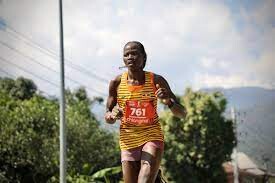
Uganda set out their stall early in the senior men’s race as Kibet formed part of a small lead group alongside compatriots Timothy Toroitich, Leonard Chemonges and Eliud Cherop, with Mexico’s Everado Moreno also trying his best to stick with them. The rest of the field was some 30 metres behind, Friday's uphill gold and silver medallists Patrick Kipngeno and Philemon Kiriago of Kenya leading the chase.
Eight kilometres later, Kibet emerged first from the trees, holding a 19-second advantage over Toroitich and Kipngeno who were locked together in second and third. Kipngeno eventually managed to pull away from Toroitich narrowed the gap to the leader, but it wasn't enough.
Kibet swept across the line to take the title, the sixth for a Ugandan senior man in the past eight World Championships. Kipngeno was 10 seconds behind, becoming the first double medallist at the new expanded championship format. Toroitich held on for bronze ahead of teammates Chemonges and Cherop in fourth and fifth. Spain's Andreu Blanes followed four seconds later, placing sixth.
With four athletes in the top five, Uganda was a clear winner of the team competition. Spain took silver with Italy just a single point behind, both teams placing three athletes inside the top 15.
The Ugandan dominance continued in the final race of the championships as Rispa Cherop, Rebecca Cheptegei and Annet Chelangat pushed the pace from the start with only Saturday's uphill world champion Allie McLaughlin of the USA able to hang on.As was the case with the senior and junior men’s races, it soon became a question of which of the Ugandan athletes would take the title. Cheptegei, still looking remarkably smooth, flew into the race's final kilometre with a 20-second gap over her teammate Chelangat and was jubilant as she tore across the finish line, flag in hand, to become the second Ugandan woman to win a mountain running world title.
Chelangat was no less ecstatic in second and the pair had time pose for the cameras before McLaughlin came in to take bronze, the second medal in a remarkable weekend for the US runner.
Romania's Monica Florea, both knees bleeding, came in fourth, just as she did in Friday's uphill race, confirming herself as one of the most consistent performers in mountain running, as did Britain’s Scout Adkin, who finished a minute further back in fifth.
With Cherop – one of the pre-race favourites – unable to finish, it meant Uganda didn’t have enough finishers to contend for the team title, opening the door for another country. Switzerland, with three finishers in the top 15, stepped up to take the team title, adding to the two sets of team medals they earned in the uphill race on Friday. Britain took team silver, while USA capped a strong championships with bronze.
Just as they did with the senior races on Sunday, Uganda dominated the junior men's event, filling the top four places to sweep the individual medals and earn team gold. Leonard Chemutai was a dominant winner ahead of teammates Caleb Tungwet, Denis Kiplangat and Silas Rotich.
Britain’s Finlay Grant was fifth individually but helped his country to secure team bronze, while France took team silver.
The junior women’s up and down mountain race was the only event on Sunday not won by Ugandan athletes. Jessica Bailey led a British 1-2 from teammate Rebecca Flaherty, also picking up gold in the team standings.
Italy's Axelle Vicari was third individually and a comfortable second in the team contest ahead of France.
Next year the championship heads to Europe and the spectacular trails of the Austrian Alps when the 2023 World Mountain and Trail Running Championships will take place in Innsbruck-Stubai, Tyrol from 6-10 June.
by World Athletics
Login to leave a comment
World Mountain and Trail Running Championships
Welcome all athletes, officials, coaches, and families to THE AMAZING THAILAND WORLD MOUNTAIN & TRAIL RUNNING CHAMPIONSHIPS 2021 (WMTRC2021). The event will feature 80km and 40km trail races, classic up and down and uphill only mountain races. It replaces World Championships previously hosted with World Athletics, WMRA (mountain running) and IAU and ITRA (trail). The Amazing Thailand World Mountain and...
more...2022 World Mountain Running Championships Uphill Results: McLaughlin and Kipngeno Win
It’s finally happening! Years of postponements are done and the first-ever combined World Mountain and Trail Running Championships have started. The festivities are all just outside of Chiang Mai, Thailand, a city of 127,000 people in the mountainous northern part of the country.
Friday’s Uphill race went 8.5 kilometers uphill and with 1,065 meters of gain. Alternately, that’s 5.3 miles and 3,500 feet of elevation gain.
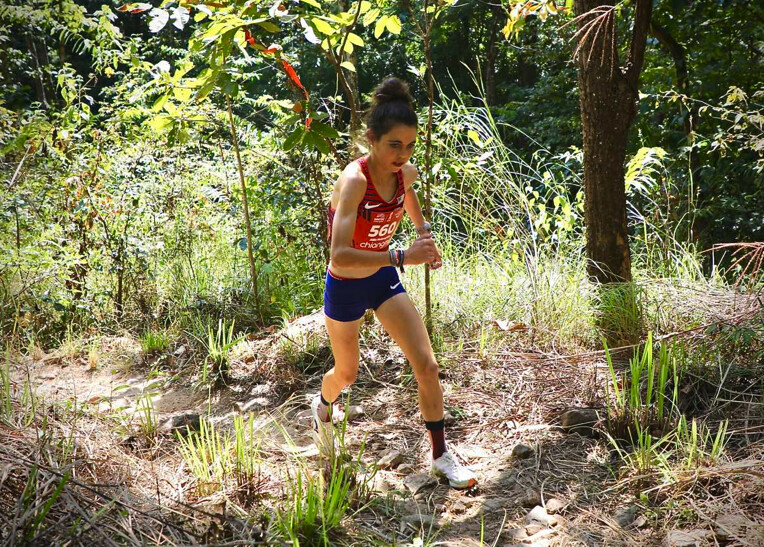
Allie McLaughlin (USA) dethroned Andrea Mayr (Austria) for the women’s crown. The pair raced up in 55:15 and 55:41, and Maude Mathys (Switzerland) was just behind in 56:00 for third.
McLaughlin just came off the Golden Trail World Series Finals in Portugal. Mayr, now 43 years old, is a six-time World Mountain Running Champion, typically excelling in uphill years. All three are expected to double back for the Classic Up and Down race on Sunday.
Monica Madalina Florea (Romania) and Onditz Iturbe (Spain) were fourth and fifth in 57:44 and 57:56.
[In 2015, Maude Mathys received a warning without suspension from the Disciplinary Chamber for Doping Cases of Swiss Olympic for two positive tests for clomifene (previously clomiphene) after it was determined that she was mistakenly taking the drug without first obtaining a World Anti-Doping Agency Therapeutic Use Exemption.]
n the teams competition, Team USA took gold, Great Britain and Northern Ireland took silver, and Switzerland rounded out the podium in third.
by I Run Far
Login to leave a comment
Hong Kong Marathon rescheduled for February next year
The Standard Chartered Hong Kong Marathon has been rescheduled to February next year, the organizer announced on Tuesday, days after canceling the race amid ongoing Covid-19 restrictions in the city.
“The Hong Kong Association of Athletics Affiliates (HKAAA) announced today… that it has received the Government’s full support to actively plan the staging of the 25th Standard Chartered Hong Kong Marathon on Sunday, 12 February 2023,” a press statement by the organizer read.
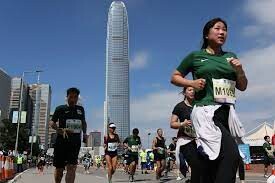
Last Friday, the HKAAA said the sporting event would not go ahead in November as planned, citing “insufficient time for runners and relevant stakeholders to adequately prepare for the race.” Organizers said they had yet to receive approval from the government with only two months remaining.
Commissioner for Sports Yeung Tak-keung questioned the group’s reason on Monday, saying the 2021 race was also approved with only two months to go.
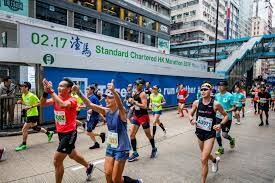
He said the government had been in close contact with the organizer and provided help as best as it could. Yeung at that time said the HKAAA did not consider postponing the race, even there was an available slot in February.
Rescheduling
The HKAAA on Tuesday, however, reversed course, hours after Chief Executive John Lee had expressed disappointment over the axing of the popular sports event.
“Our position is very clear, we are very supportive and we want both sides to work towards the goal of making it happen,” Lee said during his weekly press briefing. “[I]t is both [in] the organiser’s interest, and Hong Kong government’s interest and the community’s interest for these things to happen. So I want that common will to be developed for the good of Hong Kong.”
Further details were yet to be announced by the HKAAA, but it promised to “strictly adhere to and implement all necessary anti-pandemic measures,” and work closely with relevant government departments.
Covid concerns
Several sporting events have been canceled or relocated due to Hong Kong’s strict Covid-19 measures, with all incoming travelers required to undergo three days of hotel quarantine and four days of “medical surveillance.” The city also maintains a four-person public gathering limit and an outdoor mask mandate.
Blaming the stringent quarantine rules, the organizers of the 2023 World Dragon Boat Racing Championships abandoned Hong Kong for Thailand on Sunday. The previous day, the Oxfam Trailwalker event was also called off.
Lee on Tuesday said the government would review the pandemic situation and make necessary adjustments to the quarantine policy, with an announcement to follow “as soon as possible.” Experts have called for measures such as mandatory hotel quarantine to be scrapped so that Hong Kong can begin to return to normalcy.
Hong Kong has reported a total of 1.71 million Covid-19 infections and 9,901 related deaths since the pandemic began.
by Almond Li
Login to leave a comment
HONG KONG MARATHON
The Hong Kong Marathon, sponsored by Standard Chartered Bank, is an annual marathon race held in January or February in Hong Kong. In addition to the full marathon, a 10 km run and a half marathon are also held. Around 70,000 runners take part each year across all events. High levels of humidity and a difficult course make finishing times...
more...Western States Endurance Run Announces This Year's Golden Ticket Races
On August 9th, 2022, the Western States Endurance Run (WSER) updated its schedule and criteria for the 2022-2023 Golden Ticket races. For the second consecutive year, the lineup will include three international races, including UTMB, and the first-ever Golden Ticket event in Asia.
The Western States Endurance Run is the U.S.'s oldest and most competitive 100-mile race and has long depended on a lottery system to modulate the number of runners on the start line. Golden Ticket events give the top two runners automatic entry into the race, allowing them to bypass the competitive lottery. In this system, 28 spots are reserved for Golden Ticket winners in WSER. If the recipient of the Golden Ticket winner already has an entry (either through the lottery or another Golden Ticket event) the ticket rolls down to the next runner without entry. All runners who finish in the top ten at Western States also get automatic entry the next year.
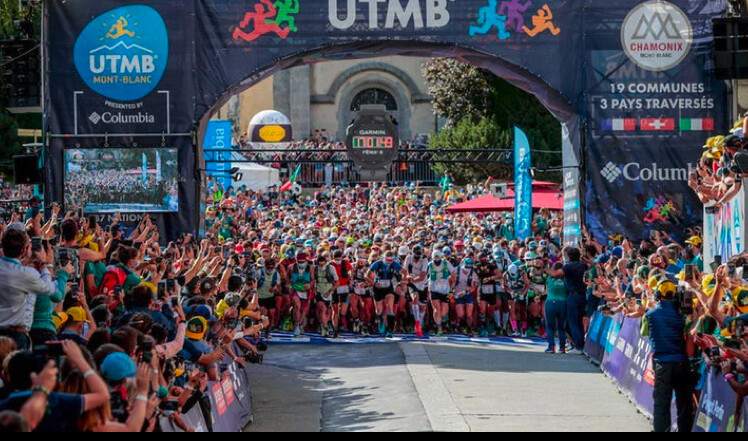
Like last year, the list includes Ultra Trail Mont Blanc (France, Italy and Switzerland) and Tarawera by UTMB (New Zealand). However, the Endurance Trail des Templiers (France) has been replaced with the Doi Inthanon Thailand by UTMB 100M. This is the second year that international races have been Golden Ticket events, and the first year that features an event in Asia, which spreads out and diversifies opportunities for international elites to gain entry to WSER.
There are still only four Golden Ticket races in the U.S., and each year these events get even more competitive. Historically, there have been five to six Golden Ticket events in the U.S. Notably, the Lake Sonoma 50 is no longer on the docket, which was the only sub-100k chance at a Golden Ticket. All the remaining events are now at least 100k, which is WSER's current qualifying distance. There are now three 100-mile qualifiers: UTMB, Doi Inthanon Thailand 100M, and Javelina Jundred (Arizona).
The inclusion of four UTMB-branded events signals the coalescing of trail running's most competitive events under a single UTMB banner. Additionally, if runners want to run at the UTMB main event in Chamonix, France, they need to first run a UTMB-branded race to collect sufficient running stones to qualify.
by Trail Runner Magazine
Login to leave a comment
Ruth Chepngetich and Lonah Chemtai Salpeter ready to clash at Nagoya Women’s Marathon
World marathon champion Ruth Chepngetich and Tokyo Marathon winner Lonah Chemtai Salpeter will renew their rivalry at the Nagoya Women’s Marathon – a World Athletics Elite Platinum Label road race – on Sunday (13).
Athletes in Nagoya will be racing for the largest first prize in the world of marathon running: US$250,000. Being the world’s largest women’s marathon, one of the world’s top-level races, and the only women’s race with a World Athletics Platinum Label, the Nagoya Women’s Marathon continues to be a global leader in women’s running.
To date, Chepngetich has won five of the seven marathons she has completed, and still made it on to the podium in her other two. The consistent Kenyan had her best year in 2019, starting with her 2:17:08 PB in Dubai in January, then following it eight months later by winning the world title in Doha.
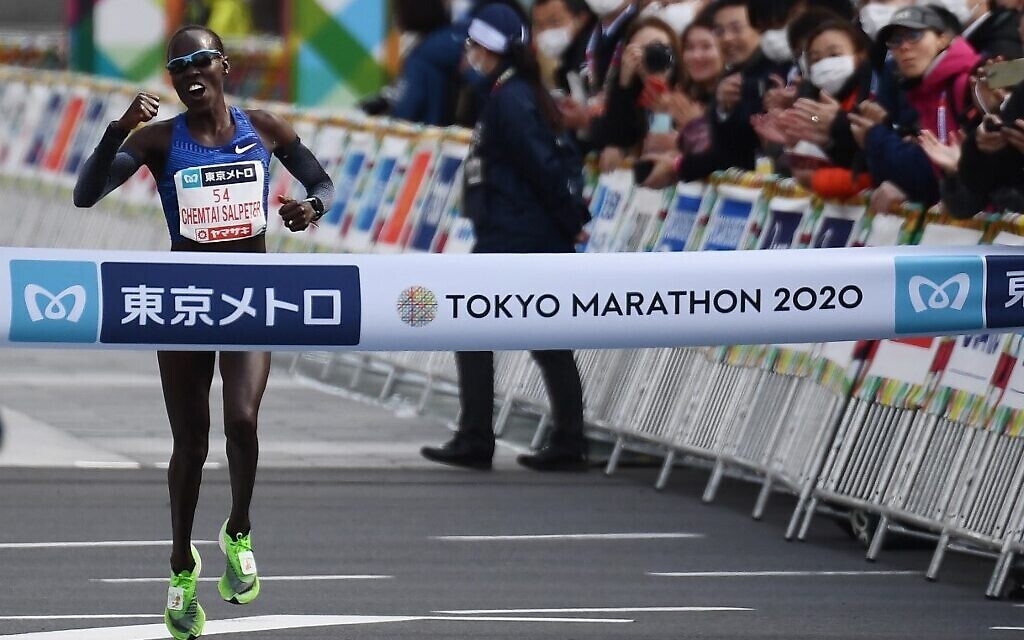
Like many athletes, she had a low-key year in 2020 but still finished third at the London Marathon in 2:22:05. Last year she failed to finish the Olympic marathon but rebounded two months later by taking victory in Chicago in 2:22:31.
While the 27-year-old appears to be more focused on victories than records, she is more than capable of producing fast times, too. In April last year she set a world half marathon record of 1:04:02 in Istanbul.
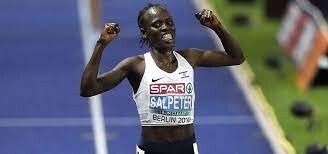
"I chose to run the Nagoya Women’s Marathon because Japan is a nice place and the environment is good," said Chepngetich. "And, as women, we have to encourage ourselves and do better. I'm looking forward to a nice race and I'd like to set a PB."
Chepngetich’s only competitive outing so far this year was at the Kenyan Cross Country Championships in Eldoret in January where she finished sixth – roughly in line with her performances at that event in previous years. She feels far more at ease racing on the roads, though.
So too does Salpeter. The Israeli distance runner won the 2020 Tokyo Marathon in a lifetime best of 2:17:45, having previously set national records when winning in Prague and Florence. Her return to Japan for the Olympics in 2021 didn’t quite go to plan as she finished down in 66th, but she bounced back in October to place fifth in London in 2:18:54.
"I’m happy to be here," said Salpeter. "It's my first time and I hope to do my best on Sunday. My training has been good. I was in Kenya for eight weeks, so I’m ready for Sunday. I’m trusting my training."
This could be the first time Chepngetich and Salpeter have a true clash over the marathon distance. In their two previous encounters over the distance, Salpeter failed to finish at the 2019 World Championships while Chepngetich did likewise at the Tokyo Olympics. Their only other duel to date was at the 2018 World Half Marathon Championships in Valencia, where Salpeter finished just one place ahead of Chepngetich.
Four years on from that, and over double the distance, this weekend’s race could be a different story.
They are among four sub-2:24 athletes entered for the event, as Japan’s Yuka Ando and Reia Iwade lead a strong Japanese contingent.
Ando ran her PB of 2:21:36 when finishing second in Nagoya in 2017 and started this year with a half marathon personal best of 1:08:13 in Yamaguchi, while Iwade ran her best marathon time of 2:23:52 in Nagoya in 2019.
Australia’s Sinead Diver will be making her third Nagoya appearance. She finished 10th in 2017 with a then PB of 2:31:37, then recorded a DNF in 2020. Now with a best of 2:24:11 and a 10th-place finish at last year’s Olympics, the 45-year-old could content for a top-five finish.
Japan’s Rie Kawauchi and marathon debutantes Kaena Takeyama and Yuka Suzuki are also athletes to look out for. Depending on their placing and position, the top Japanese finishers could earn selection for the World Athletics Championships Oregon22 or Japan’s Olympic Trials race for the 2024 Games.
Kenya’s Stellah Barsosio, Japan’s Mao Uesugi and Britain’s Charlotte Purdue will be among the pace-making team.
Last year’s edition of the Nagoya Women’s Marathon was held as a domestic race, and was won by Japan’s Mizuki Matsuda in 2:21:51.
Ten years on since the inaugural edition of the race in 2012, the Nagoya Women's Marathon continues to be the leading women-only marathon in the world. It attracted 21,915 runners in 2018 - a world record for a women-only marathon. After receiving the Japan Olympic Committee Women and Sport Award in 2017, the race was awarded the International Olympic Committee Women and Sport Achievement Diploma in 2019 for playing a significant role in the increase of women runner population in Japan.
The race, which starts at 9:10am local time on Sunday, will be streamed live to 33 countries and regions (Argentina, Australia, Brazil, Brunei, Cambodia, Chile, Colombia, Egypt, Ethiopia, France, Germany, Hong Kong, Indonesia, Italy, Kenya, Macau, Malaysia, Mexico, Monaco, Myanmar, Namibia, Netherlands, New Zealand, Papua New Guinea, Philippines, Singapore, South Africa, South Korea, Spain, Taiwan, Thailand, United Kingdom, and United States of America).
Elite field
Ruth Chepngetich (KEN) 2:17:45
Lonah Chemtai Salpeter (ISR) 2:17:45
Yuka Ando (JPN) 2:21:36
Reia Iwade (JPN) 2:23:52
Sinead Diver (AUS) 2:24:11
Rie Kawauchi (JPN) 2:25:35
Hanae Tanaka (JPN) 2:26:19
Mirai Waku (JPN) 2:26:30
Ayano Ikemitsu (JPN) 2:26:07
Ai Hosoda (JPN) 2:26:34
Chiharu Ikeda (JPN) 2:27:39
Eloise Wellings (AUS) 2:29:19.
by World Athletics
Login to leave a comment
Nagoya Women's Marathon
The Nagoya Women's Marathon named Nagoya International Women's Marathon until the 2010 race, is an annual marathon race for female runners over the classic distance of 42 km and 195 metres, held in Nagoya, Japan in early March every year. It holds IAAF Gold Label road race status. It began in 1980 as an annual 20-kilometre road race held in...
more...World Athletics has released its 2022 Label Road Race calendar
World Athletics has today released its 2022 Label Road Race calendar, a schedule comprising almost 200 races in more than 40 countries across each of the sport's six areas.
The calendar kicks off with the 10K Valencia in the Spanish city on 9 January and concludes almost 12 months later on 31 December with the traditional New Year’s Eve races in Madrid, Spain, and Bolzano, Italy.
While the schedule remains subject to change given the ongoing uncertainty created by the global coronavirus pandemic, more races are expected to join the Label programme once it is confirmed that they will take place.
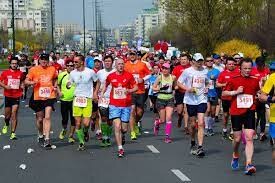
The three-tier programme, introduced in 2020, comprises three Labels: a World Athletics Label, a World Athletics Elite Label and a World Athletics Elite Platinum Label.
“Despite the continued uncertainty around global travel and on mass gatherings in some parts of the world, the number of events that have chosen to be part of the World Athletics Label Road Races programme in 2022 exceeds 200 – another all-time high – but some of the events need additional confirmation given the global pandemic,” said World Athletics Road Running Manager Alessio Punzi. “This speaks volumes of the vitality of the running industry and of the optimism of operators worldwide.
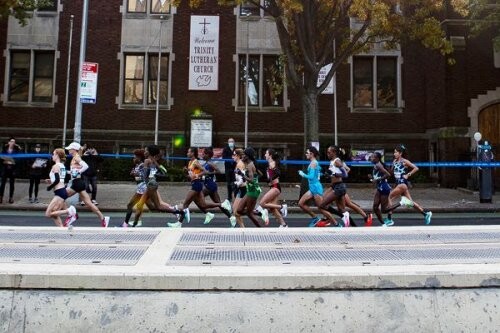
“Over the last two years alone, millions of people around the world have taken up running as a way to manage their physical and mental health – many of them will pin a race bib to their vest for the first time in 2022. We are grateful to all the race directors and their teams for their determination and tenacity. Staging marathons has never been easy, but in this day and age its complexities are mind-boggling. Now, more than ever, every race's starting line is a testament to its organisers' resilience and sheer passion for the sport and the community they serve.”
The World Athletics Label is available to all officially sanctioned road races that have taken place for at least two consecutive years prior to 2022 with an international measurement certificate in place. For first-time Labels in 2022, a World Athletics technical consultant will be appointed to ensure compliance with rules and regulations.
World Athletics Elite Label races must have a prize money structure in place that awards at least the top eight finishers, with minimum winner's prizes of US$ 15,000 (marathons) and $7500 (other distances), per gender.
The World Athletics Elite Platinum Label is only available to races that had been granted Platinum status in 2021, irrespective of whether the race took place or not.
Through choosing to have a World Athletics Label, race organizers also show a tangible commitment to clean sport by funding a dedicated road racing out-of-competition testing programme, managed by the Athletics Integrity Unit.
New Normal the key theme at 2022 Global Running Conference
The role of running events in a changed world will be the main focus at the World Athletics Global Running Conference in Bangkok on 24-25 February 2022.
All Label road race organizers are encouraged to attend, either in person or virtually, to hear insights from fellow race organizers. A series of technical workshops, including one on road race course measurement, will also be staged in cooperation with the Athletics Association of Thailand and the Asian Athletics Association, to train international and national race officials, further contributing to the development of the sport.22 Lab
by World Athletics
Login to leave a comment
Are you faster than Colin Farrell?-How does your marathon time compare to the Hollywood actor’s?
How does your marathon time compare to Hollywood legend Colin Farrell's?
Farrell took part in the Brisbane Marathon last weekend, placing 222nd out of 683 total participants, with a not at all shabby time of 03:53:14. The race was reportedly the Irish actor’s first marathon.
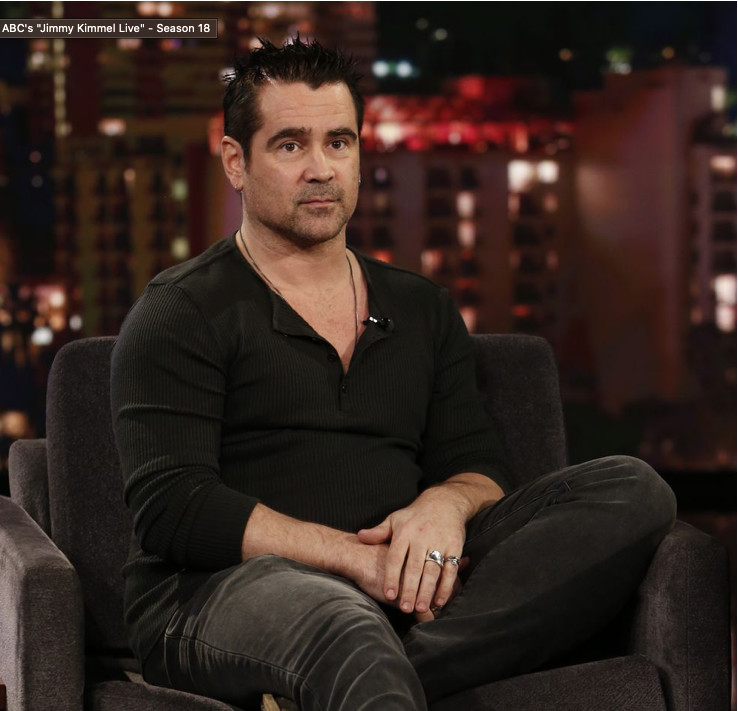
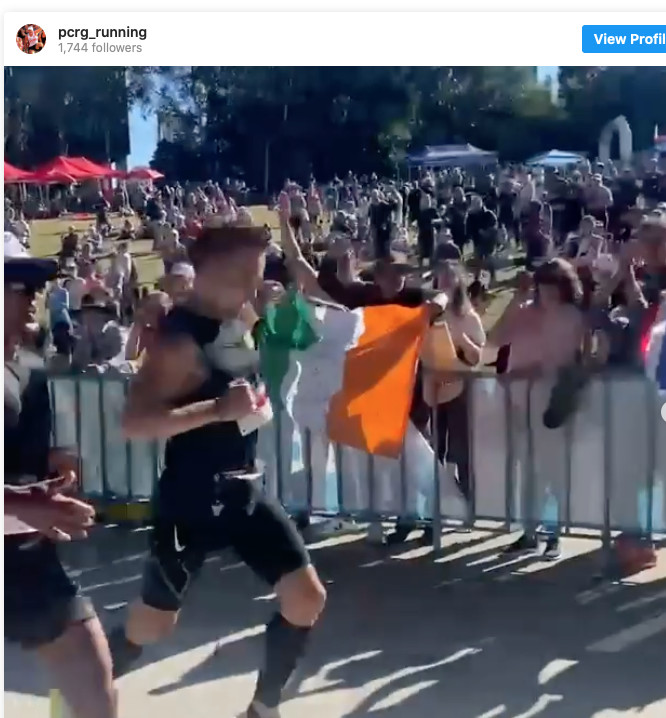
Pat Carroll, one of the event’s MCs, told Australia’s NCA NewsWire that Farrell was relatively new to running: 'His security guard told me he'd only been running for three months in preparation so it's not a bad effort,' he said.
According to Carroll, Farrell’s security requested that his participation in the race be kept quiet, although they did approve a bit of fanfare as he approached the finish line. 'I was talking to his 24/7 security guard while he's been in Australia, and I asked if we could go a bit crazy when he came down the finish line and he said: "Okay" so that's why we gave him a bit of a reception as he came down the home straight,' Carroll said.
In a video posted to his Instagram page, Carroll is heard saying: 'Ladies and gentlemen, Colin Farrell is entering the home straight. Let’s give it up for Colin Farrell, famous Hollywood actor.'
He added that another MC asked Farrell for a chat following the race, but he declined. Carroll said: 'His exact words were: "Nah, I'm knackered", which is understandable when you've just run a marathon.'
Farrell did pose with fans for pictures after the race, however. Instagram user @lettuceloveyou posted a picture with Farrell, saying, 'What a bloody buzz that experience was. It’s safe to say I might do another'.
Farrell is currently in Australia filming Thirteen Lives, a Ron Howard-directed drama about the 2018 Tham Luang cave rescue in Thailand. Actor Viggo Mortensen, who is also starring in Thirteen Lives, came along to cheer Farrell across the finish line with an Irish flag in hand, Carroll told NCA NewsWire.
by Runner’s World
Login to leave a comment
How elephants changed one ultrarunner’s life
Rene Unser’s first race was a five-day stage race in Thailand in 2005. By the second day, she was already exhausted and had begun to think that this style of racing was not for her. Her husband encouraged her to continue, and on Stage 3, they had an incredible run-in with a couple of elephants while out on the course. She realized in that moment that had she given up the day before, she never would have had her “elephant moment,” and that memory continues to serve as a reminder that suffering is temporary, but giving up lasts forever.
Fast-forward to 2012, when Unser was on Stage 6 of the Transalpine Run in Italy. She “woke up at 4 a.m. with knees that felt like they had been hit with a baseball bat and were the size of softballs.” Thinking she wouldn’t be able to start the stage, she went down to breakfast in her guesthouse in her pyjamas. It took a five-minute pep talk from her husband Trent to convince her “to get my butt upstairs and at least start the stage. He reminded me of my ‘elephant moment’ and I promptly went back up to my room and frantically started counting gels, filling my hydration bladder.”
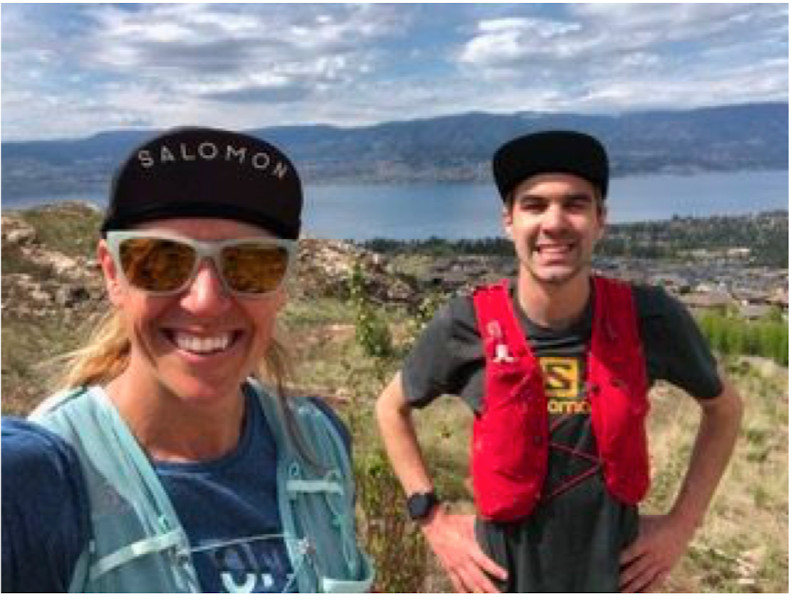
After a frenzied drive to the start line, a forgotten bib mishap and subsequent late start, the Kelowna, B.C., native was out on the course, knees wrapped in about 18 layers of KT Tape and 10 minutes behind the rest of the runners. Sweeps had already started clearing the course, so locals had to point her in the right direction. Despite the rough start, Unser managed to work her way up through the runners, passing the third-place female team (it was both a team and solo event) with only 5K left to go.
Unser is an athlete with a lot of drive and passion, but her athletic career started much the same as anyone else’s — she was an active kid who played lots of sports during her school years, and while she showed some talent in running, she preferred to remain a generalist rather than focus on one sport. She didn’t start to run more regularly until her mid-20s, and her first trail run was in 2003 when she went on her first date with the man who would later become her husband. She was immediately hooked, and with her job as a fitness instructor at the time, she wanted to figure out how to get others into trail running.
Since then, Unser has turned her passion into a career. In 2003, she got her coaching certification and 10 years later founded P.A.C.E., a coaching business that offers trail running clinics and running camps and organizes a trail running series. Since 2011, Unser has competed in the Transalpine race eight times, and in 2020 she raced to a second-place finish in the master’s women’s category. In her most recent race, the Scorched Sole Ultra in B.C., she placed third overall.
Between her race directing, community work and coaching, Unser caught the attention of Salomon and Hammer Nutrition, and both companies now sponsor her and provide her with different opportunities, such as being the media liaison for the Transalpine race. With so much going on, she has less time to enter races herself, and she now limits herself to just a couple of more challenging stage races per year.
When asked about how she’s dealt with the challenges of COVID-19, she points to her company name, which stands for “positive attitude changes everything.”
“It’s cheesy, but I believe in it,” Unser says. “COVID created an opportunity for me to be there for my community in a new way. I wasn’t sure what would happen for my race series, camps or clinic format, but my community continued to stand behind me. I am so grateful, and I learned more about myself and the kind of coach I wanted to be.”
Unser has become a pillar in her local trail-running community, has inspired and encouraged countless others to get out and enjoy the trails, and has enjoyed a long and successful trail-running career herself — all because she met a few elephants on a trail in Thailand.
by Running Magazine
Login to leave a comment
UTMB announces stacked fields for 2021 races
The 2021 edition of the Ultra-Trail du Mont-Blanc (UTMB) is still months away, but the fields for the August race are officially set. After UTMB organizers cancelled their event in 2020 due to COVID-19, any race would have been exciting to watch this year, but fans will be treated to a pair of stacked lineups in the men’s and women’s fields. With six former UTMB champions and many other world-class runners set to race in Chamonix, France, later this year, the storied 170K ultramarathon looks like it will be can’t-miss action.
The women’s race
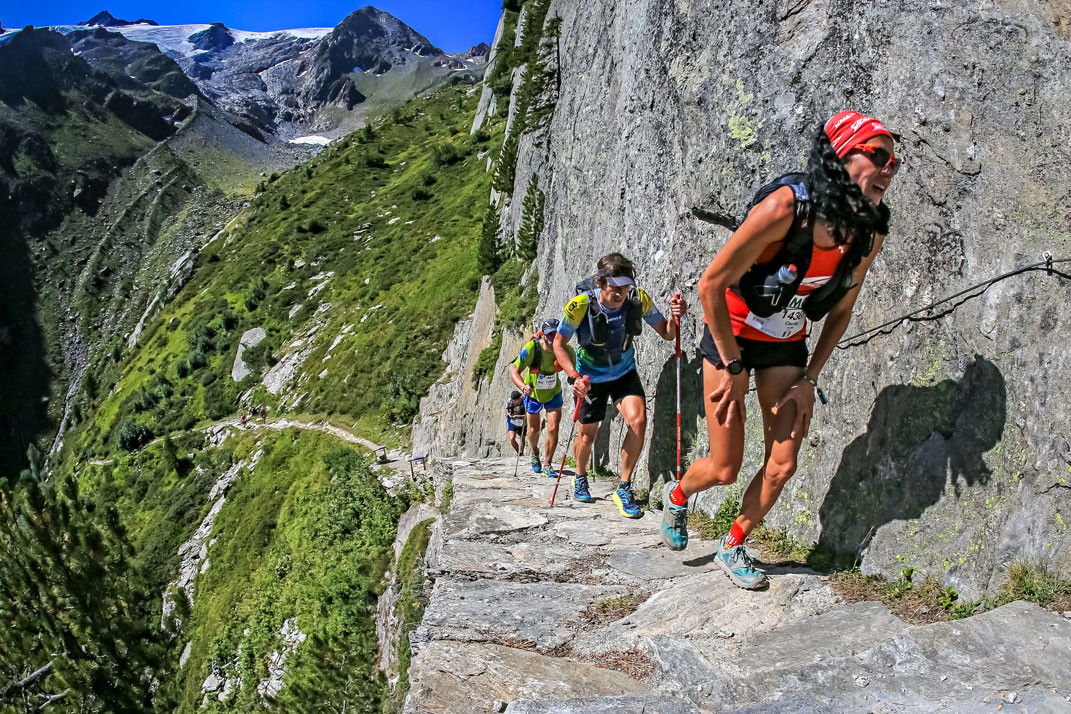
Former UTMB champs Courtney Dauwalter of the U.S. and Francesca Canepa of Italy headline the women’s race. Dauwalter is the reigning UTMB champion after her win in 2019, which was her first time running the race. She is widely recognized as one of the best ultrarunners on the planet, and she will be extremely tough to beat in Chamonix.
RELATED: UTMB adds to international race lineup with Thailand ultramarathon
Canepa won the women’s UTMB crown in 2018, and she also placed second in 2012. Other former top UTMB finishers on the start list for 2021 include Japan’s Kaori Niwa (fourth in 2017 and the winner of the 2019 Oman by UTMB 170K ultramarathon), Uxue Fraile Azpeitia of Spain (three-time UTMB podium finisher) and Beth Pascall of the U.K. (fourth- and fifth-place finishes in 2018 and 2019).
Multiple world record holder Camille Herron is also set to race in Chamonix. She has won ultramarathons around the world, including the Comrades Marathon in South Africa in 2017 and the Tarawera 100-miler in New Zealand in 2019, and she certainly has what it takes to win or place high in the overall UTMB standings.
Ailsa Macdonald is the lone Canadian in the elite UTMB women’s field. With big results like her wins at the Golden Ultra in B.C. in 2018 and the Tarawera 100 in 2020, Macdonald is another podium threat. She also has experience in Chamonix, having placed sixth in the UTMB’s CCC 101K ultra in 2019.
The men’s race
On the men’s side, there are four former UTMB winners: Pau Capell of Spain (winner in 2019) and French athletes François D’Haene (won in 2012, 2014 and 2017), Ludovic Pommeret (won in 2016) and Xavier Thévenard (won in 2013, 2015 and 2018). The past eight UTMB crowns belong to these four men, and they’re all capable of extending that streak to nine straight this year.
Jim Walmsley and Tim Tollefson are the top two American hopes on the men’s side. Tollefson made the UTMB podium in 2016 and 2017 with a pair of third-place finishes, while Walmsley has only raced in Chamonix once, running to fifth place. As Walmsley showed recently in a 100K world record attempt (he ran 6:09:26, missing the record by 12 seconds), he is in incredible shape this year, and while August is still months away, he has to be considered a favourite.
Also on the start list is the U.K.’s Damian Hall, who finished in fifth at the 2018 edition of UTMB. Hall is coming off a fantastic year of running that featured several prominent FKTs, and although he hasn’t raced in a while, he shouldn’t be counted out come August.
Finally, Canada will be represented by Mathieu Blanchard. Born in France, Blanchard now lives and trains in Montreal. He has raced in Chamonix before, running to a 13th-place finish in 2018, and in 2020 he ran onto the podium at the 102K Tarawera Ultra race.
UTMB is set to run from August 23 to 29, 2021.
by Running Magazine
Login to leave a comment
Elise Cranny (30:47) & Marc Scott (27:10) Win The TEN in California, Lead 10 Athletes Under Olympic Standard
The Bowerman Track Club had a good day as BTC athletes won both races and had four athletes in each race pick up the Olympic standard.
Women’s Race: Cranny Outkicks Schweizer to go to #3 all-time US
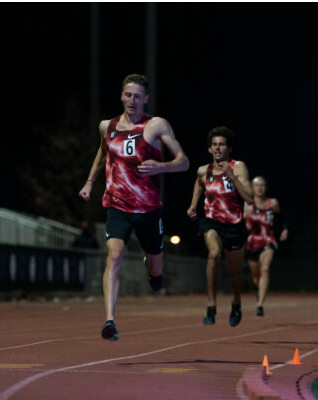
The Bowerman Track Club’s Elise Crannyused a 65.11 final lap to kick by teammateKarissa Schweizer to win The TEN tonight in 30:47.42 to Cranny’s 30:47.99 as the two women became the sixth and seventh US runners in history to dip under the 31:00 barrier for 10,000 meters. They are now the third- and fourth-fastest women in US history.
Britain’s Eilish McColgan also broke 31:00 in third in 30:58.94, just off the 30:57.07 personal best that her mom and coach Liz ran to win in Hengelo back in 1991, the year she won the 10,000 world title in Tokyo. 2015 world championship bronze medallist Emily Infeld (31:08.57) as well as Marielle Hall (31:21.78) also left tonight’s race with the 10,000 Olympic standard of 31:25.00. Hall already had it thanks to her 31:05 at Worlds in 2019; for Infeld, 30, her time was a 12-second personal best.
The race was very evenly run at almost exactly 75-second-per-lap pace for 7200 meters (22:28) with pacers Vanessa Fraser and then Courtney Frerichs leading through 6400. Four sub-75 laps after 7200 meters winnowed the lead pack down from four to two with three laps to go. Schweizer did all of the leading for the final 6+ laps until Cranny kicked by for the win in the final 50 meters. Cranny ran her last 1600 in 4:38.76 with lap splits of 72.59, 71.70, 68.75, 65.74
Men’s Race: Scott leads five men under Olympic standard
The Bowerman Track Club’s Marc Scott’s hot start to 2021 continued tonight as he ran 27:10.41 to win the men’s 10,000 and move to #2 all-time on the British 10,000 list. Scott wasn’t the only man leaving the race happy as the point of the race was to get the Olympic standard of 27:28.00 and all five men that finished the race were well under the standard.
In his 10,000 debut, Grant Fisher ran 27:11.29 for 2nd, meaning he’s now the 5th-fastest American in history. 12:58 man Woody Kincaid was third in 27:12.78 as Bowerman Track Club athletes swept the top 3 places.
Ben True, currently unsponsored, ran a big pb of 27:14.95 for 4th (previous pb of 27:41.17). And in the shock performance of the night, Harvard grad Kieran Tuntivate of Thailand ran 27:17.14 for 5th, meaning a guy who came into the night with a 13:57.60 5000 pb ran the equivalent of two 13:38’s back-to-back and is now #4 all-time in Asian history.
The race was rabbited perfectly through 8000 meters by Evan Jager and Sean McGorty. The field went through 5000 in 13:45 and McGorty hit 8000 in 21:57.85 (27:22 pace). After McGorty stopped at 8k, Scott did most of the leading although Fisher had the lead with 2 laps to go. Scott immediately picked up the pace and his final 5 laps were 64.18, 65.49, 64.62, 61.18 and 57.13, meaning he covered his last 1600 in 4:08.40 and last 2k in 5:12.58
by Let’s Run
Login to leave a comment
16-Year-Old Rheinhardt Harrison Runs 4:01.34 At Music City Distance Carnival
Rheinhardt Harrison's kick is no secret.
Over the past few seasons in Florida and beyond, the Nease (FL) High School student-athlete has built a strong tradition on finishing hard across a variety of distances.
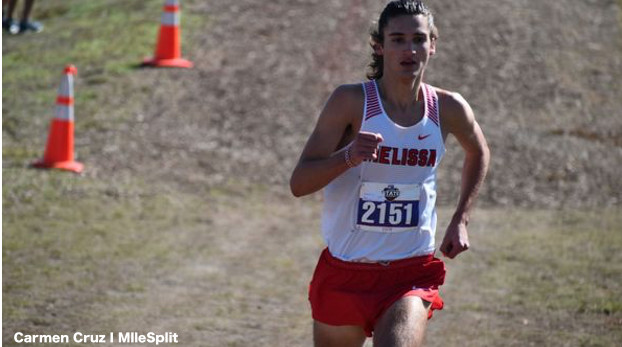
But on Saturday night in Nashville, Tennessee, the 16-year-old athlete took that strength to a new level, accomplishing an incredible milestone as he scored a new sophomore class record in the full mile with an official time of 4:01.34 at the Music City Distance Carnival at Lipscomb Academy.
Harrison's full performance, which saw a 57.35 second last lap, surpassed Edward Cheserek's former mark of 4:03.29, which was last accomplished in 2011. The mark also landed a new 16-year-old age group record, passing Nathan Green's mark of 4:06.20, which the current Borah High School senior accomplished in 2019.
As this track meet was held on the back end of the 2020 track and field season, Harrison's mark still goes down as a sophomore class record, even though he's within days of beginning his junior high school season.
The performance was in part derived from the field around Harrison, as five men broke four minutes in the mile, including winner Kieren Tuntivate, a Harvard graduate who set a new Thailand national record with a time of 3:57.87.
Harrison was in eighth after the first lap before making his way down to sixth overall, netting a new Florida state record. The time is a current US No. 2 effort.
Of note, particularly, is Harrison's progression from his last race in June, when the Floridian ran 4:09.79 for the full mile at the Desert Dream Last Hurrah Invitational.
But perhaps training has begun to fully kick into gear under Tom Schwartz, the coach of the Tinman Elite professional group in Boulder, Colorado. Schwartz has long coached talented young distance runners, though in recent weeks he's formed a junior group, the Tinman Junior Elite, of which Harrison is a part of.
The Nease athlete was one of a handful of athletes under that junior training group competing on Saturday.
She came agonizingly close.
But few would argue the Moses Brown (RI) School freshman, who is just 15 years old, didn't continue to impress, lowering her personal record under 2:03 as she finished fifth overall in a professional field in a time of 2:02.97.
Biding her time over the first lap, the Rhode Islander ran 60-flat before following in a rather remarkable 62-second quarter, hitting her last 200m in 31 seconds.
While Gorriaran didn't surpass the rather outrageous freshman and 15-year-old age group records, she once again lowered her US No. 1 and re-set her own Rhode Island state record in the process.
Kipyego posts a sub-1:50: Finding himself in Heat 2 of the men's 800m, Darius Kipyego was on a mission.
But while the St. Raphael Academy (RI) junior didn't break 1:48, he did claim another sub-1:50 performance, netting a time of 1:49.98, which secured his second performance under that barrier this season.
Kipyego is now one of just two athletes -- John Lester being the other -- to have run under 1:50 twice over the 2020 season. Kipyego, however, accomplished that feat in two legitimate races, while Lester secured his second performance in a time trial.
Judson Greer goes sub-14:30 in The 5K: Melissa's Judson Greer was aiming for a special performance in the 5K on Saturday.
And the Texan certainly accomplished that feat, posting a US No. 3 time of 14:28.70 in a men's professional field.
Only Nico Young -- who ran 13:50.55 in June, which was the No. 4 fastest performance in high school history -- and Matthew Farrell (14:25.23) ran faster in 2020. Greer's performance will go down as No. 44 all-time for the distance and the No. 1 junior performance of the year.
Greer, like Harrison, is coached by Tom Schwartz of Tinman Elite. Jack Scherer, a high school junior from Oshkosh North in Wisconsin, went 14:45.88.
by Mile Split
Login to leave a comment
Huge blow for Kenyan athletes as European Union travel ban continues
After a dark season that has seen them lose massive earnings from the international circuit due to cancellation of global sporting events owing to the coronavirus pandemic, Kenyan athletes face another blow.
Kenya is among the nations yet to be cleared to travel into Schengen states when the European Union (EU) opens its borders on July 1.
The Kenya athletes will be hit hard should the country continue to remain on the Covid-19 compliace “blacklist” when the 2020 Diamond League circuit resumes in August.
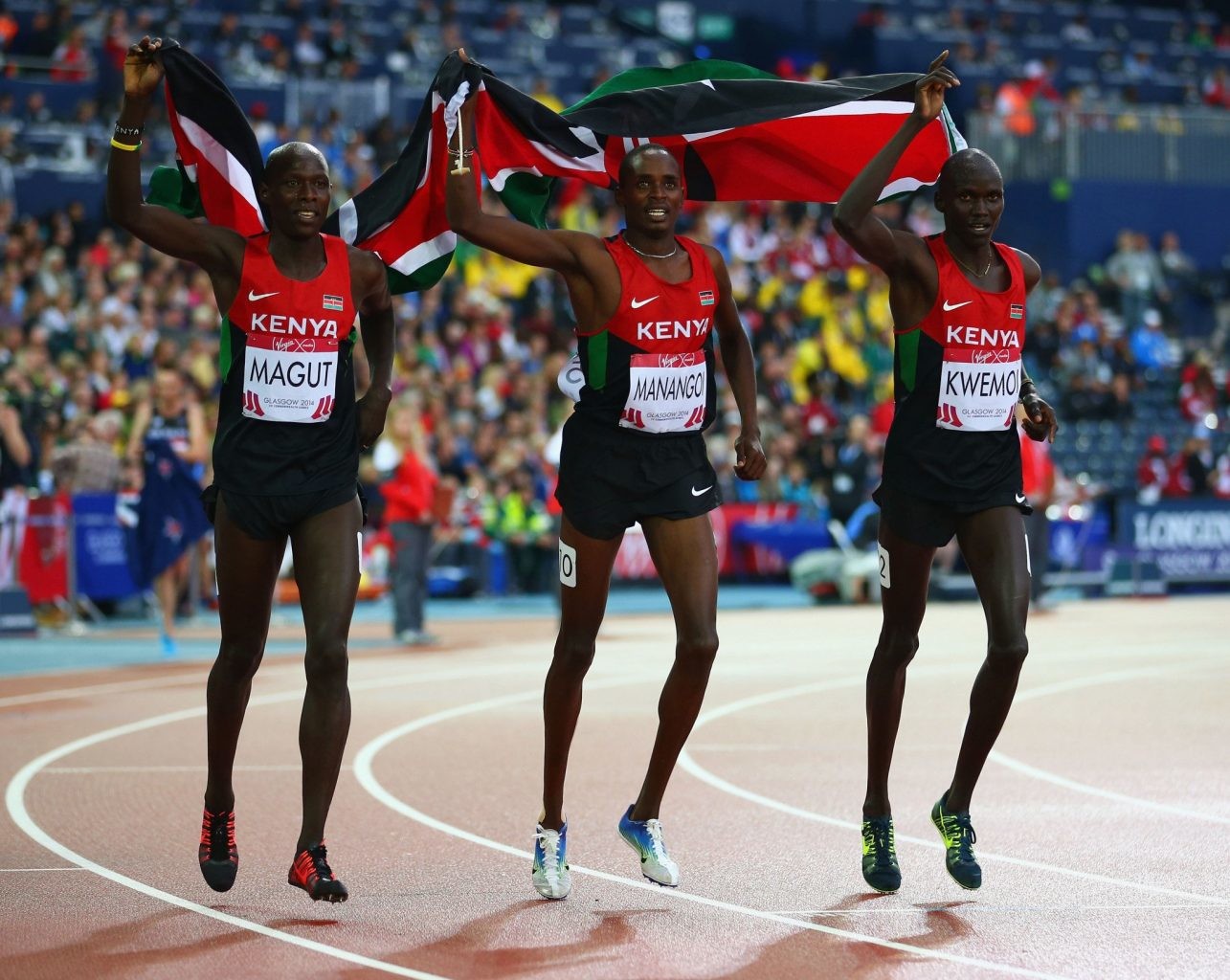
Kenya is not among 54 world countries that will benefit from the reopening of the EU borders from July 1.
Things haven’t been made any easier as Kenya’s Covid-19 cases continue to rise in the country with 6,190 cases having been reported with 144 deaths and 2,013 recoveries by Monday.
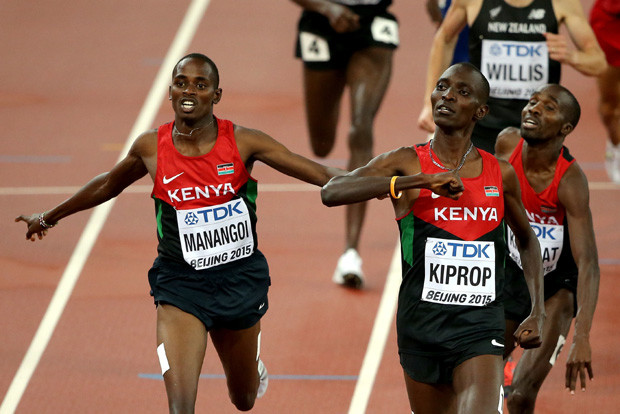
However, athletes from Kenyan neighbors Ethiopia, Uganda and Rwanda are among the African countries who will be allowed to enter the Schengen states from July 1.
Should the ban be sustained, then Kenya’s world 1,500 meters champion Timothy Cheruiyot will not be able to defend his title alongside former champion Elijah Manang’ oi, among others, during the Monaco leg of the Diamond League on August 14.
Monaco will signal the resumption of Diamond League action.
More Kenyan athletes are likely to miss the Stockholm meet on August 23 in Sweden and if EU doesn’t clear Kenya then the athletes will also miss Brussels leg on September 4 in Belgium since the Lausanne meet on September 2 will be an exhibition event.
Nationals of the following countries are listed in this draft list of nations allowed into the EU from July 1:
Albania, Algeria, Andorra, Angola, Australia, Bahamas, Bhutan, Bosnia and Herzegovina, Canada, China, Costa Rica, Cuba, Democratic People’s Republic of Korea, Dominica, Egypt, Ethiopia, Georgia, Guyana, India, Indonesia, Jamaica, Japan, Kazakhstan, Kosovo, Lebanon, Mauritius, Monaco, Mongolia, Montenegro, Morocco, Mozambique, Myanmar, Namibia, New Zealand, Nicaragua, Palau, Paraguay, Rwanda, Saint Lucia, Serbia, South Korea, Tajikistan, Thailand, Tunisia, Turkey, Turkmenistan, Uganda, Ukraine, Uruguay, Uzbekistan, Vatican City, Venezuela, Vietnam, Zambia.
by Ayumba Ayodi
Login to leave a comment
Over 18,000 Global Runners from 95 nations will Take Part in 6K, 10K or Remix Challenge Rock 'n' Roll VR5
The global community of walkers and runners came together for the fifth edition in the Rock ‘n’ Roll® Virtual Running™ (VR™) Series, Rock ‘n’ Roll VR5, with over 18,000 people from 95 nations and 47 states registered to step up to the virtual start line. Rock ‘n’ Roll VR5 gave participants the opportunity to challenge themselves with two different race distances that included 10K and 6K options. In addition, the Remix Challenge was offered for those who took on both distances, with finishers earning access to three medals through the Rock ‘n’ Roll VR Finisher Bundles.Participants were able to compete anywhere, indoors or outdoors, as long as the distance of their choosing was completed in one session between Friday, May 22 at 2 p.m. ET and event close Sunday, May 24 at 7:59 p.m. ET.
Participants in Rock ‘n’ Roll VR5 came from around the world and ranged in age from 18 to 82. The United States led the way with over 9,000 walkers and runners followed by the United Kingdom (over 800), Canada (over 700), Mexico (over 500) and Portugal (over 250).

Other nations represented included Bangladesh, Cuba, Ireland, Jamaica, Lithuania, Poland, South Korea and Thailand, among others. Of the 47 U.S. states represented, the greatest number came from California, followed by Texas, Virginia, New Jersey and Florida.
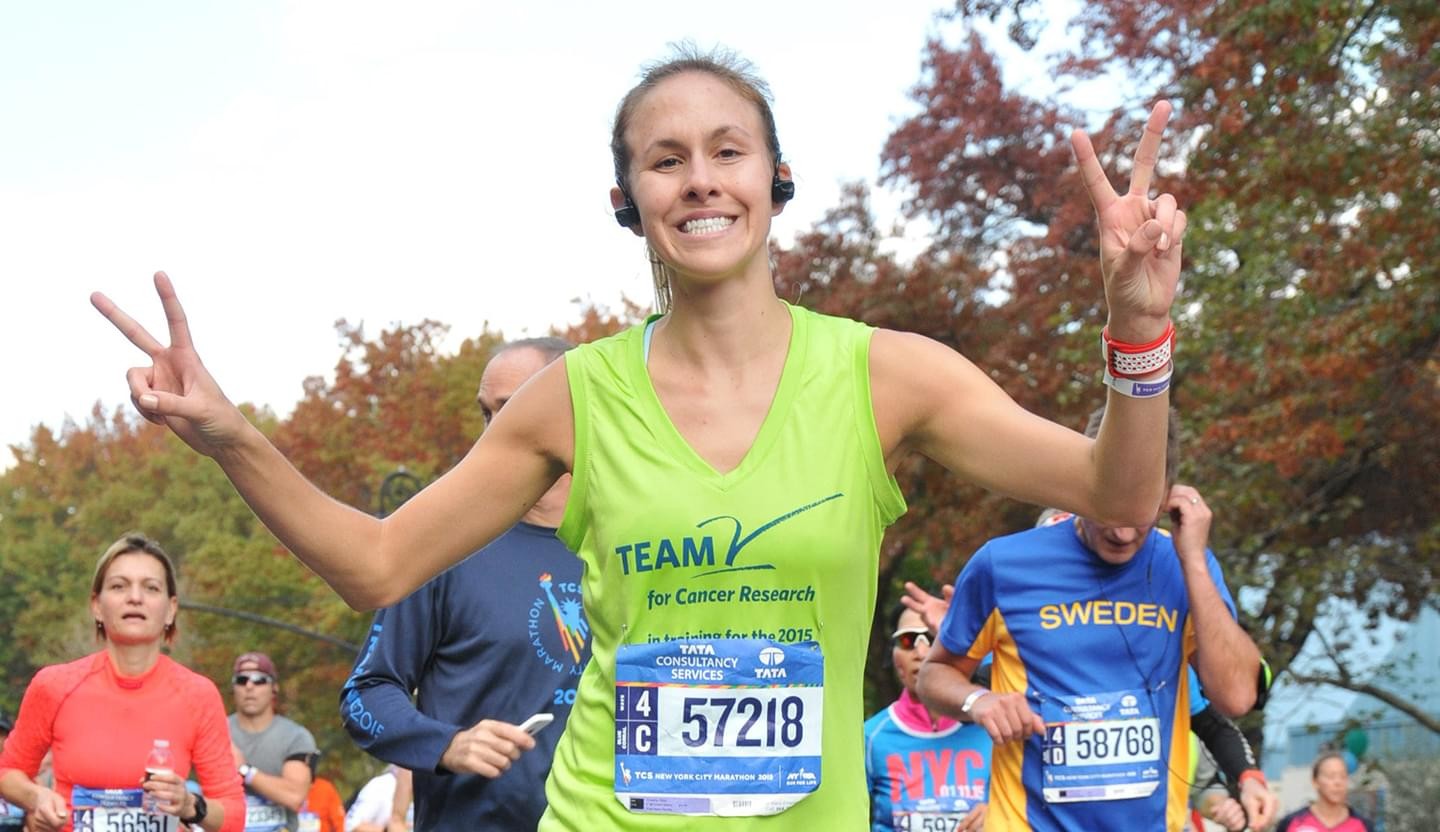
Nations joining a Rock 'n' Roll VR event for the first time were Afghanistan, Bermuda, Kyrgyzstan, Pakistan, and Syria, among others. To date, over 37,000 people from across the globe have joined the Rock ‘n’ Roll® Virtual Running Club platform, giving them access to the series of weekly races, challenges, and rewards. Just under 8,000 participants took on a Rock ‘n’ Roll Virtual Running Club™ Challenge leading up to Rock ‘n’ Roll VR5.
Several separate running and workout-based challenges were offered with the opportunity for special prizes such as a pair of Rock ‘n’ Roll Launch 7 by Brooks Running Company sneakers, a Rock ‘n’ Roll 26.2 or 13.1 Medal Display Hanger, and a Rock ‘n’ Roll by Brooks Running Company Run Club Stealth long-sleeve shirt + Rock ‘n’ Roll Cascadia 7” pair of shorts.
The challenges included the Brooks: Find Some Run Happy III Challenge, St. Jude: 100% Worth It Challenge, and George's Squatathon Challenge.
Login to leave a comment
Philadelphia Marathon and Half
Have the time of your life in 2022 completing 13.11 miles! Runners will start along the Benjamin Franklin Parkway in the cultural Museum District and wind through Philadelphia’s most scenic and historic neighborhoods. From the history-steeped streets of Old City, through one of the liveliest stretches of Center City, across the Schuylkill River...
more...Course and Mexican all-comers’ records under threat at Guadalajara Half Marathon
Kenya’s Geoffrey Koech, Shadrack Korir, Lucy Cheruiyot and Perine Nengampi lead the Kenyan contingent aiming to rewrite the course and Mexican All-comers’ records at the 34th Electrolit Guadalajara Half Marathon, a World Athletics Gold Label road race, on Sunday.
Almost a month after running personal bests under 60 minutes in Houston, Korir (59:27) and Koech (59:36) will now target the course record of 1:01:48, set by their countryman Mathew Kisorio last year. The fastest half marathon run on Mexican soil is 1:01:27 by Simon Biwott in 1999.
Two more Kenyans, Benson Kipruto, a 2:05:13 marathoner, and Cosmas Kipchoge, who boasts a personal best of 1:00:06, are also top contenders for the podium.
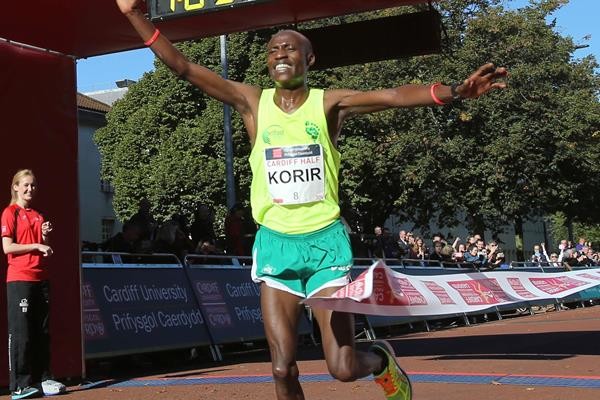
Ethiopia’s Haymanot Alewe will try to spoil a Kenyan medal sweep. A 1:00:26 runner over the distance, the 22-year-old showed his fine early season form with a 28:17 10km in Thailand on 26 January.
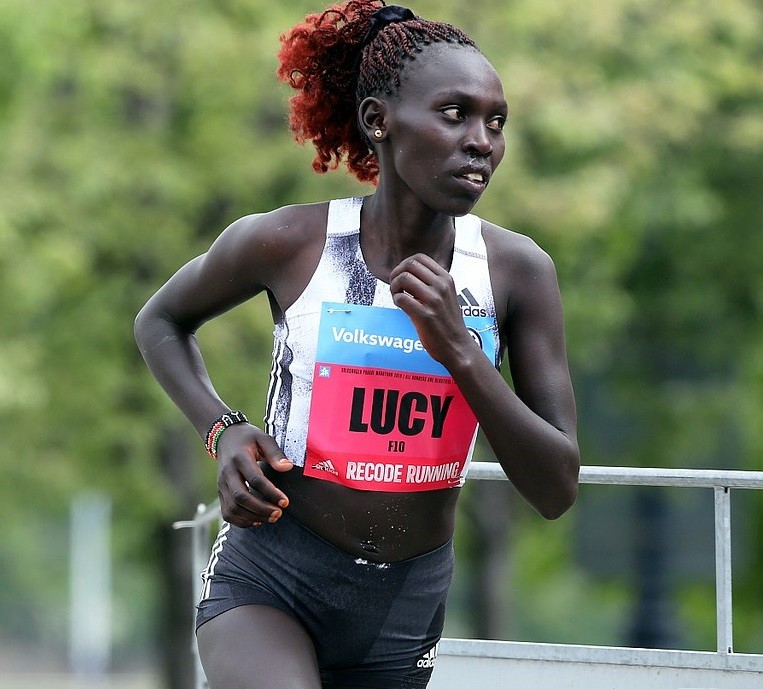
Two-time Olympic finalist and two-time winner Juan Luis Barrios (2015-2016) carries the Mexican hopes in the elite race. He finished fifth in 2019.
In the women’s race, Lucy Cheruiyot is well positioned to threaten the Mexican all-comers’ and course record of 1:08:53, set by Ethiopia’s Afera Godfay Berha last year. The 23-year-old has run faster six times in her career, twice in 2017 when she set her personal best of 1:07:23 and more recently last October when winning the Cardiff Half Marathon in 1:08:20.
Her fellow Kenyan Perine Nengampi, a 1:08:04 half marathoner, will join her in trying to regain the top spot on the podium for the country, but Abeba Gebremeskel, who shows a marathon lifetime best of 2:22:29, will try to keep the trophy in Ethiopian hands.
Three other sub-70 minute Kenyans, Margaret Agai (1:09:43), Visiline Jepkesho (1:08:12) and Winfridah Moseti (1:08:44) should also feature prominently on Sunday.
Mexico’s Madai Perez, the fastest Spanish speaking woman over the marathon distance (2:22:59), returns to Guadalajara after missing the 2019 edition. The 40-year old has stepped on the podium seven times, including wins in 2003 and 2006.
The 34th edition of the race, powered by Granvita, celebrates Guadalajara’s 478th anniversary of its foundation. A Marathon Parade with 21 sculptures representing the race’s 21 kilometres, will also grace the 34th edition. This urban art exhibit will be displayed throughout a month, before moving to other Mexican cities.
by World Athletics
Login to leave a comment
21k GDL Electrolit
A success of the 31st Guadalajara Electrolit Half Marathon, bringing together 12,000 athletes, a figure that represents 33 percent more attendance than the previous year made the start one of the larges outings in the history of this event. Under the slogan "Running is Friendship", this sporting event had the Glorieta Minerva as the starting and finishing point, and toured...
more...A woman paralyzed escaping an attacker is running New York Marathon to inspire others
Login to leave a comment
Six Ideas to help you Get Ready for Your First Ultra Marathon
Login to leave a comment
Records smashed at The North Face 100 Thailand 2018
Login to leave a comment
30,000 runners are expected to enter the Bangkok Marathon
Login to leave a comment
Rock Star Toon finishes his Epic 55-day running Adventure
Login to leave a comment
Toon Raising money for hospitals
Login to leave a comment


